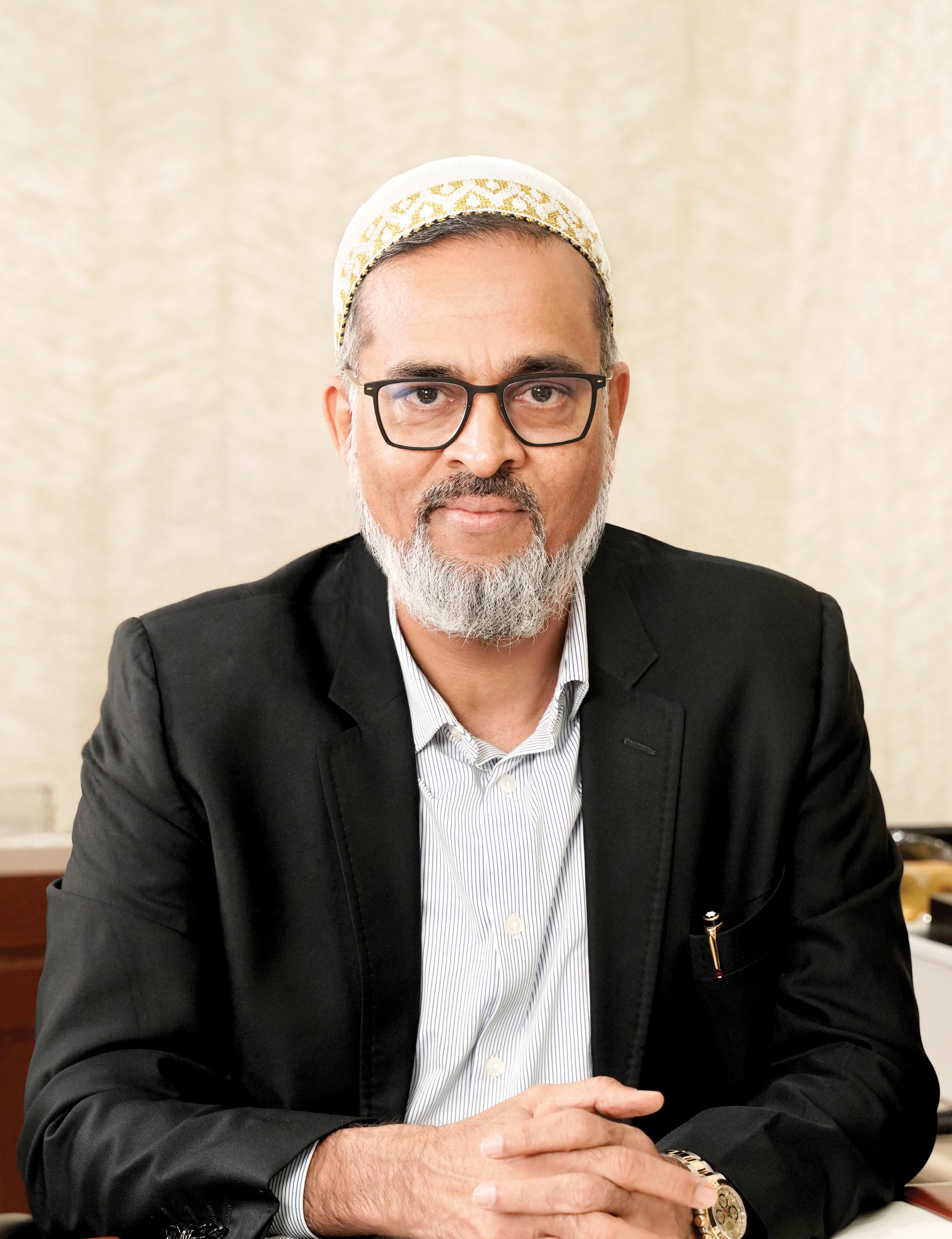
P.14 FROM PROPERTY TO PROFIT: Kevin O’Leary on winning in today’s market P.62 BRUNCH AND BRAND EXPANSION: How tashas has become a Dubai favourite
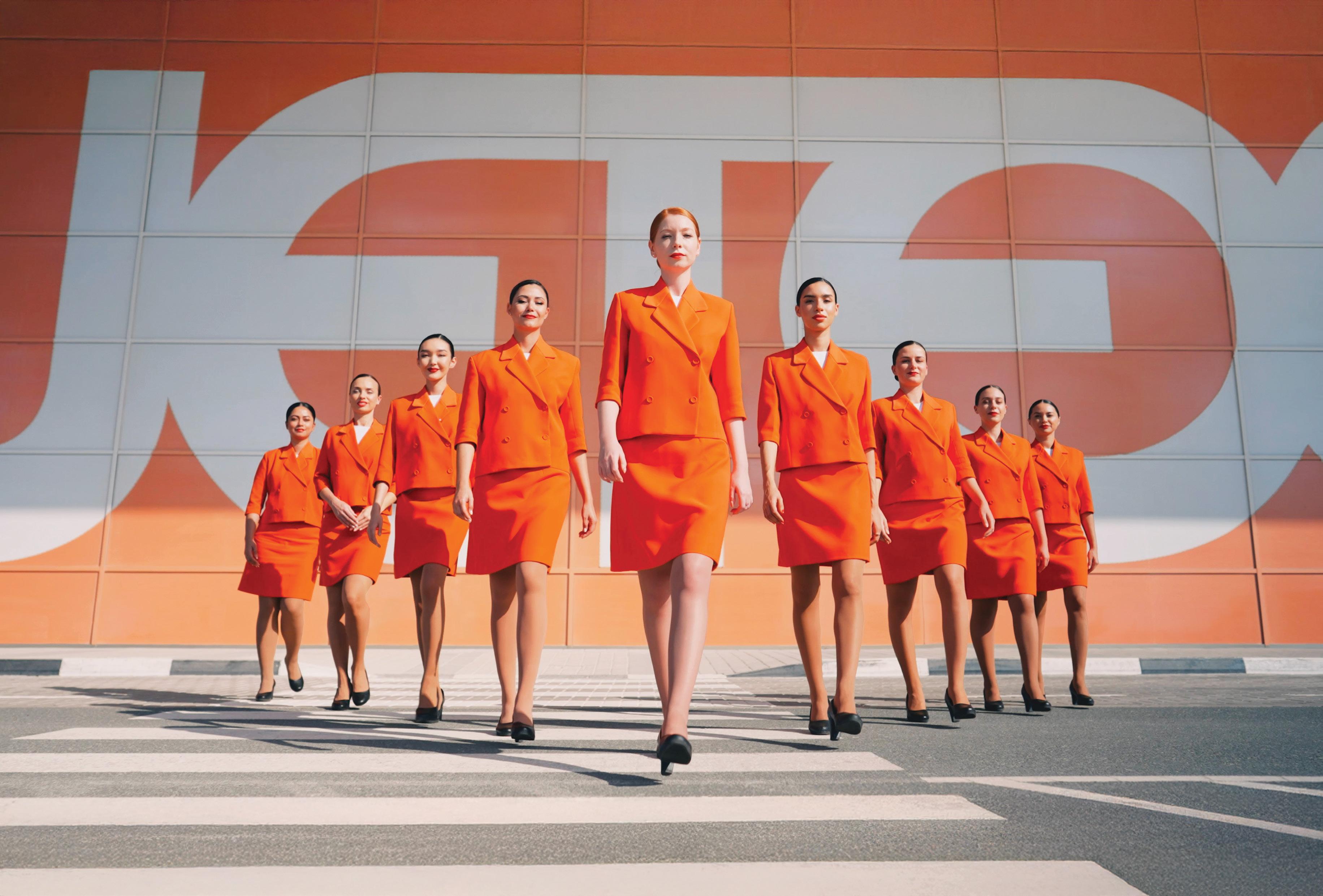


P.14 FROM PROPERTY TO PROFIT: Kevin O’Leary on winning in today’s market P.62 BRUNCH AND BRAND EXPANSION: How tashas has become a Dubai favourite

CONTENTS / JULY 2025
An insight into the news and trends


/

Reporter Nida Sohail Nida.Sohail@motivate.ae
Senior art director Freddie N Colinares freddie@motivate.ae
Senior art director Olga Petroff olga.petroff@motivate.ae
and
Sterling Perfumes is guided by a simple principle: every product must create value, connect emotionally, and reflect cultural intention, says chairman and CEO Dr Ali Asgar Fakhruddin
From energy to tech, these CEOs are driving transformation in the MENA region with clear strategies, regional insights, and a global focus

General manager – production S Sunil Kumar Binu Purandaran Assistant Production Manager Venita Pinto Mario Saaiby mario.saaiby@motivate.ae Sales manager Hitesh Kumar Hitesh.Kumar@motivate.ae
Follow us on social media: Linkedin: Gulf Business Facebook: GulfBusines X: @GulfBusiness Instagram: @GulfBusiness
Cover: Freddie N Colinares
HEAD OFFICE: Media One Tower, Dubai Media City, PO Box 2331, Dubai, UAE, Tel: +971 4 427 3000, Fax: +971 4 428 2260, motivate@motivate.ae DUBAI MEDIA CITY: SD 2-94, 2nd Floor, Building 2, Dubai, UAE, Tel: +971 4 390 3550, Fax: +971 4 390 4845 ABU DHABI: PO Box 43072, UAE, Tel: +971 2 657 3490, Fax: +971 2 677 0124, motivate-adh@motivate.ae SAUDI ARABIA: Regus Offices No. 455 - 456, 4th Floor, Hamad Tower, King Fahad Road, Al Olaya, Riyadh, KSA, Tel: +966 11 834 3595 / +966 11 834 3596, motivate@motivate.ae LONDON: Acre House, 11/15 William Road, London NW1 3ER, UK, motivateuk@motivate.ae
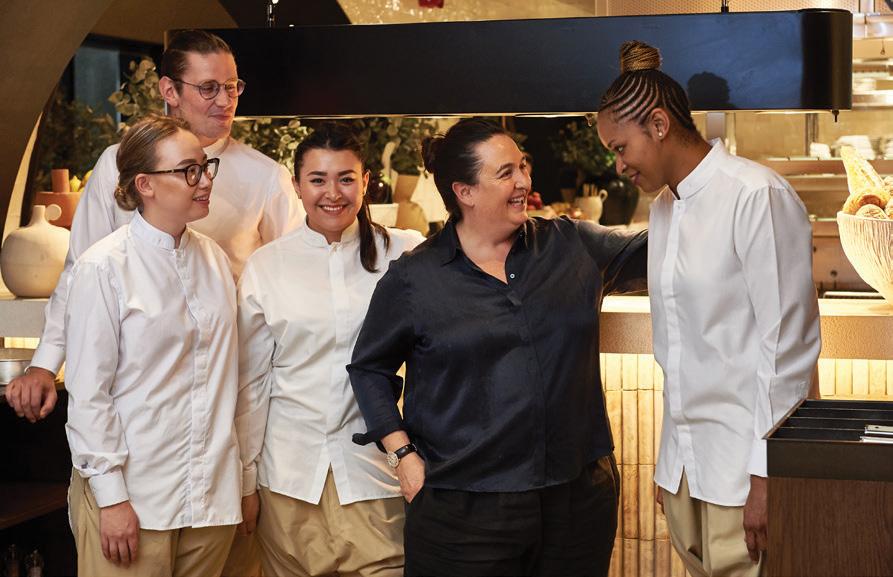
Jo’burg to Jumeirah and beyond: How the founder of tashas turned a single café into a 40-venue international hospitality group, with much more growth to come p.62

Fierce and fabulous: In an era of downsizing and electrification, Lamborghini defies convention with the Revuelto , a 1,015hp V12 hybrid that blends a powerful performance and design excellence p.65
“Dubai is home to 37 international university branches and we plan to attract more as we position ourselves as one of the world’s top 10 cities for students. By attracting the world’s best academic institutions and enhancing research and development, we are supporting the objectives of the Education Strategy 2033 and the Dubai Economic Agenda D33.”
Sheikh Hamdan bin Mohammed bin Rashid Al Maktoum, Crown Prince of Dubai, UAE Deputy Prime Minister and Minister of Defence, and Chairman of The Executive Council of Dubai


Email: info@britishchamberdubai.com
Website: britishchamberdubai.com
LinkedIn: /british-chamber-dubai
Instagram: @bccdubai
X: @BCCDonline
The British Chamber of Commerce Dubai is a membership organisation that supports companies and individuals from the UK with existing business interests in the region and those new to the UAE.
Our membership consists of British-owned, Dubai and RAK-based companies, UK registered organisations, UK passport holders and brands that support British business.
Through a considered and strategic calendar of events, the BCCD ensures high-quality networking opportunities, market knowledge sharing, valuable engagement opportunities and exclusive experiences for our members.
The BCCD provides an ecosystem that goes beyond Dubai, to the wider GCC and through the British Chambers of Commerce’s Global Business Network reaching and providing international exposure and opportunities for our members and stakeholders.
For more information, please contact the BCCD Business Team: info@britishchamberdubai.com
Founding Sponsors Annual Partners



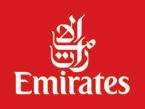


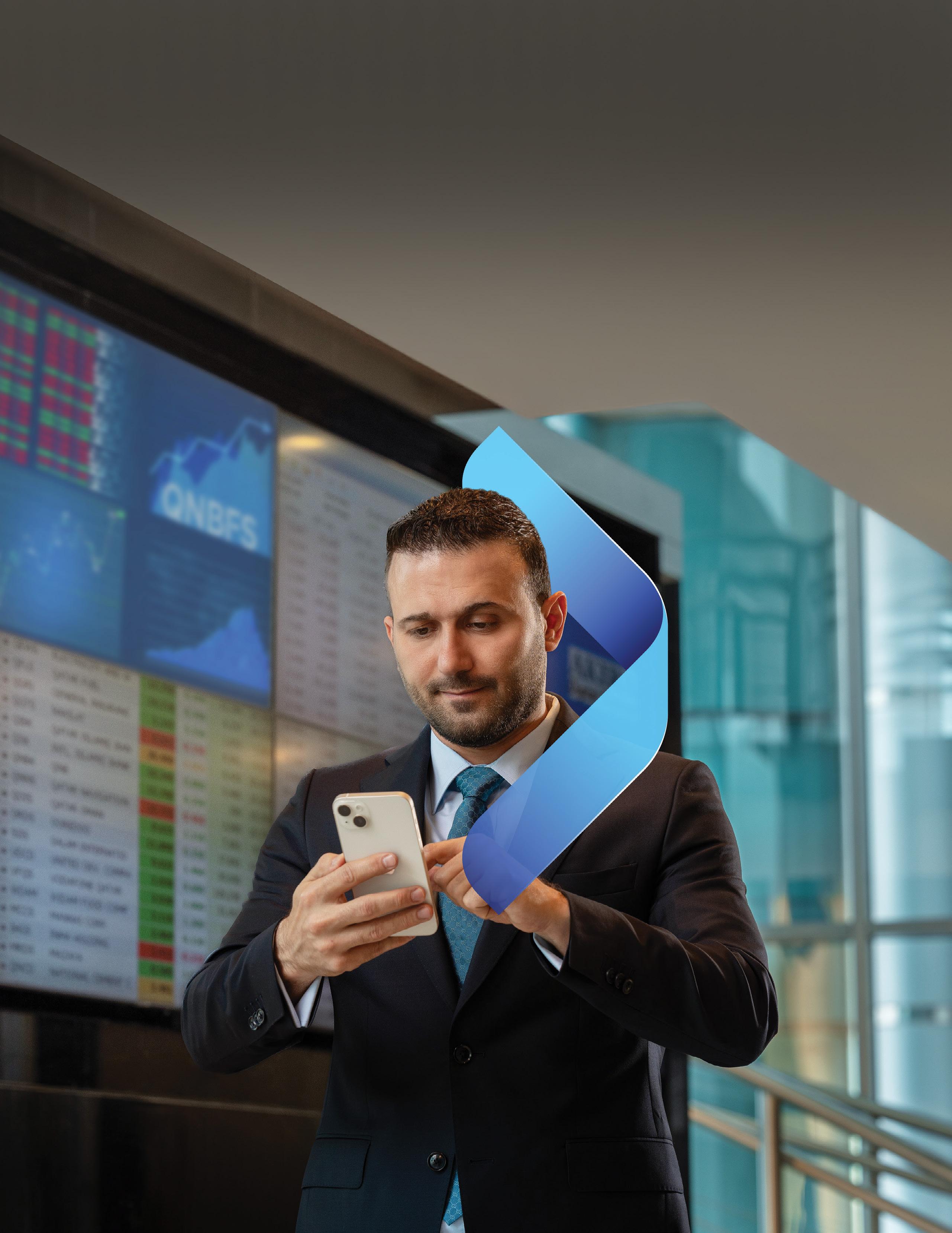







Profitability is rising, but sustaining momentum hinges on credit control and smart lending
The UAE’s banking sector witnessed a strong start to 2025, defined by solid profitability, enhanced credit discipline, and rising investor confidence. Net income across the country’s ten largest listed banks climbed 8.4 per cent quarter-on-quarter (QoQ) to Dhs22.2bn — results that are particularly impressive when set against a backdrop of a declining interest rate environment and geopolitical uncertainty. However, this Q1 performance reflects a fundamental shift. UAE banks are no longer rebounding from past challenges; rather, they are repositioning themselves as strategically agile, operationally lean, and disciplined players that are well equipped to navigate the growing challenges of the year ahead.
Key profitability metrics such as return on equity (RoE) and return on assets (RoA) improved to 18.6 per cent and 2.1 per cent, respectively. But the real story lies beneath the top line: a 59.3 per cent quarter-over-quarter (QoQ) drop in impairment charges and 18 per cent QoQ rise in fee and commission income helped offset the 2.1 per cent decline in net interest income, while operating expenses declined sharply by 7.8 per cent. In short, banks delivered more with less — a hallmark of structural maturity which speaks to the strength of the sector’s foundations. Perhaps most telling, the reported non-performing loan (NPL) ratio declined to 3.2 per cent — its lowest level in recent cycles. That metric may be the clearest signal yet, that banking sector health is genuinely improving. However, looking ahead,
Sam Gidoomal is the MD and head of Middle East Financial Services, Alvarez & Marsal
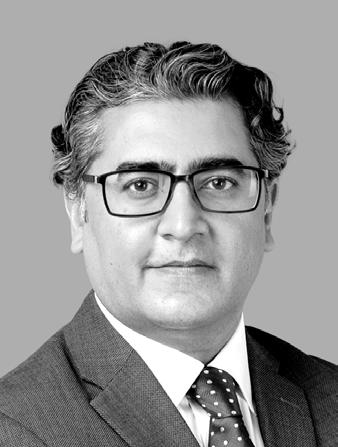
the challenge will not be achieving low NPLs — it will be sustaining them given the prevailing headwinds.
The sector’s fundamentals strengthened further in Q1 2025, supported by strong deposit growth and improved liquidity. Loan growth accelerated to 3.6 per cent QoQ, driven primarily by a 5.1 per cent increase in corporate and wholesale lending. Meanwhile, deposits rose by 5.8 per cent, led by a 7.6 per cent surge in CASA balances - a further indication of depositor confidence and stable funding. As a result, the sector’s loan-to-deposit ratio declined to 74.7 per cent, reinforcing liquidity buffers and overall funding resilience.
With interest rates falling and the resultant decline in NI, banks increasingly turned to other sources of income, such as fees and commissions. In Q1 2025, net fee and commission income rose by 18 per cent, helping to offset a 15-basis-point drop in net interest margins, which declined to 2.5 per cent. This growth highlights a clear shift toward more balanced and reliable revenue streams which represents an important advantage as pressure on traditional interest income continues to build.
One of the most positive signs from Q1 was the continued improvement in asset quality. The non-performing loan (NPL) ratio fell to 3.2 per cent, and the cost of risk dropped to 0.3 per cent. At the same time, coverage ratios increased to 110.5 per cent, and Stage 1 loans (those considered low risk) rose by 3.9 per cent. This is a good indicator of stronger credit health and perhaps a more cautious lending stance across the board. These gains reflect a shift toward lower-risk borrowers, better loan recovery, and
smarter provisioning. However, with real estate and SME exposures still making up a large part of many loan books, banks must remain vigilant, and credit discipline needs to be maintained, not assumed. The recently updated CBUAE Credit Risk Management Standards will provide additional data points with respect to ongoing asset quality.
At the same time, digital transformation continues to accelerate. UAE banks are integrating technology more deeply into their operations, not just to enhance customer experience, but to improve efficiency, strengthen compliance, and manage risk more effectively. ADCB’s launch of its digital fintech platform, Meedaf, reflects a bold step toward AI-led banking and cross-border expansion. Similarly, Emirates NBD’s rollout of crypto-related services underscores the sector’s readiness to explore emerging asset classes and adapt to new financial realities. Tools like blockchain for payment verification and AI-driven lending are no longer emerging trends, they are fast becoming essential elements of modern banking infrastructure.
Following recent rate cuts and ongoing monetary easing, banks are already facing pressure on their profit margins. Strong fee income and cost control will certainly help, but the real test will be whether banks can maintain discipline in how and where they lend. This will include focusing on high-quality borrowers, keeping a close eye on riskier sectors, and continuing to strengthen internal risk practices. It also means avoiding the urge to grow too quickly at the expense of sound fundamentals.
The first quarter demonstrated that UAE banks are agile and capable of delivering results in a fast-evolving environment. For the remaining quarters, it’s imperative that they exercise caution, ensure strong governance and continue to build financial resilience. Doing so will help balance risk management whilst facilitating continued steady growth.
As Gulf economies transform rapidly, the spotlight is turning to corporate governance. We explore why board independence in the GCC must evolve from a compliance checkbox to a genuine fiduciary force
The financial capitals of the GCC are witnessing a quiet but intense scrutiny of corporate governance. The role of the independent director, once known as the ethical custodian of minority shareholders, is increasingly under question: are they truly independent, or merely an appointed ornament of governance theatre?
The GCC’s accelerated economic transformation — driven by Saudi Arabia’s Vision 2030 and the UAE’s diversification agenda — has triggered a need for fool-proof oversight. Independent directors are expected to bring fiduciary integrity, challenge executive decisions, and ensure long-term stakeholder
value. Yet beneath the ceremonial declarations lies an uncomfortable truth: true independence is too often symbolic.
In many conglomerates and state-linked enterprises, independence is compromised by structural realities. Directors are frequently nominated by government entities or controlling families. Legal frameworks, such as the Saudi Capital Market Authority’s (CMA) Corporate Governance Regulations and the UAE’s Securities and Commodities Authority (SCA) rules, mandate independence, but rarely define how it should be demonstrated.
The Hawkamah Institute for Corporate Governance says 90 per cent of listed companies in Saudi Arabia and the UAE comply with independence requirements on paper. Yet, fewer than 40 per cent have mechanisms to test real independence, such as conflict-of-interest disclosures, director rotation, or dissent protocols.
The Dana Gas sukuk case highlighted governance weaknesses. Legal as it was, questions arose
over whether directors had challenged aggressive restructuring tactics that risked market trust. Similarly, in 2020, Gulf Navigation Holding faced board resignations and financial revisions, exposing passive oversight and weak internal controls. Independent directors failed to act as fiduciary guardians.
Globally, the meaning of independence is shifting. The UK’s Corporate Governance Code requires annual independence reviews and disclosures for directors serving over nine years. France caps board tenure at 12 years. Taiwan mandates directors pass regulatory exams. These are signs that independence must be earned not inherited.
The US Delaware Chancery Court, a global bellwether of corporate law, has reinforced this stance. In Oracle Corp Derivative Litigation (2003), it ruled that directors with social or business ties to executives couldn’t be presumed independent — even if technically compliant.
These lessons apply to the GCC, where relational networks, cross-directorships, and elite affiliations often override objective scrutiny. In some instances, board members serve across multiple entities within a holding group or sovereign structure, undermining their ability to dissent without fear of repercussion.
Sovereign ownership offers capital stability, but also a governance paradox: when a majority stakeholder is also the regulator, the independent director’s buffer role becomes vital. In 2022, Saudi’s Public Investment Fund rapidly expanded into entertainment, tech, and tourism. Global observers raised concerns about whether boards could prudently challenge such ambition.
Consider the collapse of Abraaj Capital — once the region’s largest private equity firm. Despite a board of marquee names, governance failed. Charismatic

90 PER CENT OF LISTED COMPANIES IN SAUDI ARABIA AND THE UAE COMPLY WITH INDEPENDENCE REQUIREMENTS ON PAPER
Dr M Muneer is a startup investor and the co-founder of the non-profit Medici Institute for Innovation
founders neutralised oversight with personal networks and storytelling — a sobering lesson for the region.
Regulators are tightening norms. The Saudi CMA has introduced tougher rules for related-party transactions and transparency in appointments. The UAE’s SCA now requires detailed board evaluation criteria. Bahrain’s Central Bank calls for regular external board assessments. These are promising signals but enforcement remains patchy.
Kuwait’s Capital Markets Authority found only 28 per cent of listed firms conducted independent board evaluations — and even fewer disclosed the findings or actions taken. Term limits are rare, and few require cooling-off periods for former executives before they join as independent directors.
Independence must not be mistaken for detachment. Effective governance needs constructive friction — the ability to challenge, debate, and refine decisions. Yet many Gulf boards equate harmony with health, mistaking compliance for oversight.
Proxy advisory firms remain nascent in the region, but international investors are applying pressure. In 2023, Norges Bank abstained from supporting several board nominees at a major GCC energy firm, citing poor independence and diversity.
The message is clear: passive boards may escape local headlines, but not global scrutiny.
To restore credibility, GCC firms must embed independence as a behaviour — not a badge. This requires: Rotation and term limits: Cap board terms at nine to 12 years to avoid entrenchment.
Conflict disclosure: Require full transparency and recusal for financial or political links.
Board evaluations: Conduct 360-degree reviews with input from peers, shareholders, and external facilitators.
Dissent recognition: Document minority opinions and reflect them in investor communications.
Nomination transparency: Disclose affiliations and evaluation criteria for all board appointments.
Regulators could go further by launching a Director Competency Framework, including continuing education, ethics certification, and annual declarations affirming not just formal, but functional independence.
Independent directors must rise above ceremonial roles. They must be like wise owls: observant, alert, and ready to sound the alarm. Independence isn’t about sitting apart, it’s about standing firm. Often alone. Always accountable. Until then, shareholder value will remain at risk, eroding behind a façade of prosperity.

roads to
Three paths and essential traits shaping cybersecurity leadership for a secure future
As the Middle East continues to diversify and grow its economies, it will increasingly look to cybersecurity leaders to protect the digital infrastructure now sitting at the heart of economic activity. The shortage of these skills for emerging organisations is of concern, so I would like to share some of my experiences as a corporate and field CISO (chief information security Officer) to show how there are multiple paths to security leadership, and many traits that the ideal candidate should possess. However, anyone who strives to become a CISO must prepare themselves
for the expectations, stresses, and responsibilities of the role. As a colleague of mine once joked: “CISOs sleep like babies; we are up every few hours.”
A cybersecurity professional, trained over several years who has been promoted in the traditional way by demonstrating their technical and business knowledge. As a former security analyst or engineer, the “climber” must have strong credibility among technical and non-technical colleagues, but they may need to build on their existing technical and business knowledge amongst executive leadership. This requires them to develop their communications skills, potentially to the level of a boardroom presence, in order to achieve their objectives.
An existing, experienced C-level executive, like the CTO or CIO, who takes on the CISO role to fulfil business goals and maintain regulatory compliance. While the Transfer may be well-attuned to leadership, riskmanagement, and strategy requirements, they may lack the necessary detailed, hands-on security experience. To that end, CISOs sometimes need to understand a problem technically in order to make the best decision for the organisation and executive transfers with a technical background tend to succeed better than career executives.
An educated executive who has obtained a CSO, CISO, or similar master’s degree and has become CISO based on experience and accreditations. The Strategist has a well-rounded knowledge profile in terms of frameworks and business drivers, but may lack the real-world experience needed to gain credibility. CISOs with a formal cyber-security education tend to succeed the best when their background comes from being a cyber-security practitioner first.
THE IDEAL TRAITS OF A CISO
Each path is determined by your skills and experience,
your strengths and your weaknesses. But whichever path you take, the requirements of the CISO role remain the same. You must be a strong leader who can communicate well, bring much-needed visibility to a range of critical issues, and manage complexity. Let us look at these traits in more detail.
Oral and written communication is how CISOs highlight risks, explain incidents, suggest strategies, and urge action. To improve the organisation’s security posture, the CISO must convince other stakeholders (the board, vendors, colleagues, and others) to act. This persuasion can be through whitepapers, email memos, seminars, or presentations covering everything from awareness training to budget requests.
Accurate, frank, and comprehensive communication with all parties, particularly legal, is critical for a CISO. Knowing every relevant detail about a breach enables better incident response and more effective mitigation of damage. Therefore, an effective CISO will be transparent about each incident as it unfolds. It is recommended to never filter disclosure to authorised stakeholders.
The modern CISO is much more of a risk manager than a technical specialist but understanding vulnerabilities and their potential impacts is a prerequisite of understanding the operational implications and costs of solutions. Knowing how DNS and VPN differ does not mean the CISO will be called upon to configure IPSec. But being in possession of broad technical knowledge allows the CISO to ask the right questions and build their credibility as a problem solver. An enterprise CISO is unlikely to be handson in the event of a breach, for example, but must remain informed so they can be an effective information bridge between security team members and other business stakeholders.

Morey J Haber is the chief security advisor at BeyondTrust
The enterprise CISO must know of all the compliance standards that apply to the business. And they must know the difference between best practice guidance and enforceable regulations. Some enforceable requirements are a matter of national, regional, or international law, and others are a matter of contract. Laws change, as may contracts (which can also expire). CISOs must keep themselves informed on all the enforceable requirements that are currently relevant to the organisation. Zero trust is an example of best practice guidance that is not part of any current law.
Across today’s multifaceted enterprise technology functions, the CISO must be recognized as the security principal. They must be given authority over security in IT, cloud environments, application development, and physical premises. Silos have long been a threat to the effectiveness of cybersecurity. The CISO (or ideally, the CSO) must be given leave to unite information stores and budgets and spearhead a unified strategy for all physical and cybersecurity.
The CISO’s success in a high-stakes enterprise cybersecurity environment will be determined as much by their temperament as by their technical and business acumen. The ideal CISO is patient, cool-headed, and reliable. During an incident or breach, tempers can flare, relationships can crumble and the potential for collaboration can diminish. Harm can come to an organisation’s security posture, to budget management, to crisis and risk management, and to the entire business.
Strangely, good CISOs really do sleep soundly. Whether they have climbed the tech ladder or migrated from another executive role, they will have found sustainable ways of overcoming both the human and strategic sides of cybersecurity leadership. The best security leaders work on building the traits that matter, and get noticed by exhibiting them — strong leadership, clear communication, and technical awareness. In time they become ready for the boardroom. Ready to advise non-technical colleagues and guide technical ones towards a more secure environment and a more promising future.

THE ENTREPRENEUR OPENS UP ABOUT WHY HE’S BETTING BIG ON THE UAE, WHAT MAKES ONE DEVELOPMENT’S REAL ESTATE MODEL STAND OUT, AND THE HARD TRUTHS HE SHARES WITH INVESTORS AND FOUNDERS
BY NEESHA SALIAN
Shark Tank’s Kevin O’Leary is going all-in on the UAE. The outspoken investor has partnered with One Development as a brand ambassador, drawn by the company’s ambitious vision to fuse AI and real estate. “I’m not just endorsing it — I’ll be living in it,” says O’Leary, who plans to move into the Laguna Residences as part of his growing stake in the region’s future.
Gulf Business caught up with him at One Development’s new office on Saadiyat Island during his recent visit to Abu Dhabi to mark the announcement of the partnership.In our conversation, O’Leary opened up about why he’s betting big on the UAE, what makes One Development’s real estate model stand out, and the hard truths he
shares with every entrepreneur — from Shark Tank pitches to boardroom battles.
QYou clearly love this region. What keeps bringing you back?
I have residency here. The real estate is phenomenal, the tech is cuttingedge, and the food — especially the Lebanese cuisine — is amazing. It’s an exciting time to be here, and there’s always something new to discover.
Let’s discuss your partnership with One Development as a brand ambassador. What drew you to this collaboration? Real estate has always been the largest sector in my portfolio — about a third, which breaks my own investing rule. I’ve
invested in commercial, residential, and even data centres, but I had never seen the vision that Ali [Al Gebely, founder and chairman of ONE Development] has. Ali’s idea of fully integrating AI and technology into real estate isn’t just a gimmick. Most smart homes still require five or six apps to function properly — security, cameras, appliances, and so on. One Development offers a single integrated platform to control your entire environment from your phone. That’s genius. I’m very selective with brand ambassadorships, and I only represent products or services I actually use. In this case, I’m going to live there. The technology is the top selling feature, and I’m excited to be part of it.
How do you see yourself contributing to One Development’s broader expansion, especially with your business-building expertise?
What I like about One Development is the diversification. For instance, the DO Hotel is a very different project from Laguna Residences. You want both sectoral and geographical diversification in real estate. The company’s Cairo project really clinched it for me. I have a personal connection — my stepfather is Egyptian and Swiss. I’ve been to Alexandria and Cairo many times and love the place. What Ali is envisioning there is incredible. With investor interest in the
GEOGRAPHIC DIVERSIFICATION IS CRITICAL.
IF YOU HAD ONLY NORTH AMERICAN ASSETS RIGHT NOW, YOU’RE FACING MAXIMUM VOLATILITY. I’M GLAD I’VE ALLOCATED AROUND 15 PER CENT TO THIS REGION — RETURNS HAVE BEEN SIGNIFICANT IN JUST THE PAST YEAR.”
region and the kind of returns you can get here, it’s a compelling opportunity.
Speaking of the region, why the UAE? What makes it attractive for investors like yourself?
Policy is everything. You need to be able to get permits, have competitive tax rates, stability, and access to growth. The UAE offers all of that. It’s also become the capital of capital for this region. You can base yourself here and invest across other countries easily. Abu Dhabi and Dubai are safe, accessible, and strategically located. I always tell people — if you want to understand this place, spend a couple of weeks here. You’ll see why it’s exciting for investors.
With today’s global economic uncertainty, what advice would you give investors? What sectors look promising to you right now?
Geographic diversification is critical. If you had only North American assets right now, you’re facing maximum volatility. I’m glad I’ve allocated around 15 per cent to this region — returns have been significant in just the past year.
Real estate particularly in the UAE is much more stable. A lot of my peers from cities like Boston, New York, Toronto, and Zurich are also here. Everyone’s figured it out.
The UAE is pushing SMEs and entrepreneurship. What advice do you have for startups looking for funding?
Ninety per cent of my successful venture returns have come from companies led by women. Women are great at mitigating risk and executing.
For any entrepreneur, three things matter: First, pitch your idea in 90 seconds or less. Second, prove that you can execute it — ideas are cheap, execution is rare. Third, know your numbers — market size, growth, break-even point, competitors. That’s how you attract capital.
You’ve mentioned AI is big in the UAE. How does AI fit into your investment strategy?
Huge focus. Most of my AI investments are in vertical applications across our businesses. AI powers content creation — essential for customer acquisition. Now, we can produce compelling, multilingual content with high-quality visuals at a fraction of the cost. AI is a game changer in productivity — even in creative sectors.
What’s a key life or business lesson that you always share?
When I graduated from business school, a guest speaker told us one-third among us would fail, one-third would live a mediocre life in consulting, and only 10 per cent of the entrepreneurial third would succeed. I thought he was harsh — but he was right. That insight came from experience. Also, listen to your intuition when investing. If something doesn’t feel right, don’t ignore it.
Who are some people who have influenced or inspired you?

Elon Musk is the only guy I’ve seen who’s probably 100 per cent “signal”. He’s something else.
I’ve noticed you wear two watches. What’s the story there?
I’m a serious watch collector. One is set to Abu Dhabi time, the other to New York time. These two watches — a Rolex Rainbow with a rare red band and a Vélos — are part of my prized collection. When I come to the UAE, I like to wear colourful pieces.
You mentioned longevity. So how does Mr Wonderful prioritise health with such a busy schedule?
I invest a lot in myself. The best longevity clinics are here in the UAE. Every time I visit, I do EBOO therapy (extracorporeal blood oxygenation and ozonation) —cleansing and ozonating my blood— then inject 50 billion exosomes to reduce inflammation. It keeps me feeling like I’m 30, even though I’m 70.
The UAE has prioritised healthcare innovation for decades, which is why the best tools and doctors are here.
PITCH YOUR IDEA IN 90 SECONDS OR LESS
Steve Jobs. I worked with him when we developed educational software for Apple. He taught me the importance of the “signal versus the noise”.
Focus on what needs to get done today — the “signal”. Everything else is noise. I live by that 80/20 ratio.
When you have a rough day, what helps you reset?
Exercise. I bike 12 miles to clear my head. And I’ve learned not to let ups and downs affect me too much. Every day brings setbacks and wins. If something bad happens, I just wait a few hours — something good usually follows.

THE VP AND MD EMEA AT AMAZON WEB SERVICES (AWS) DELVES INTO ITS REGIONAL FOOTPRINT, EUROPEAN SOVEREIGN CLOUD AND HIGHLIGHTS KEY PARTNERSHIPS LIKE THE COLLABORATION WITH SAUDI ARABIA’S AI CHAMPION, HUMAIN
BY NEESHA SALIAN
To start off, tell us about your vision for the regions you oversee.
I think this region that I have the privilege of leading across EMEA is probably the most vibrant and diverse I’ve ever been part of — even on a global scale. Despite the complicated situations we face, whether it’s around the energy transition or geopolitical pressures, what I really love about this region is its sheer ability to keep moving forward. I spend a lot of my time in the Middle East. It’s an incredible place with supportive governments, bold commitments, and clear vision. We always say transformation isn’t possible without top-down commitment, and this region exemplifies that. It’s also about matching that commitment with investments — in technology, infrastructure, sustainability, and people. I see that happening
across the Middle East, Sub-Saharan Africa, and even in the mature markets of the UK, Germany, and France.
So, since I joined, I wouldn’t say the strategy has changed, but it’s more about enabling our customers to leverage technology at pace and at scale — to focus not on technology for its own sake, but on technology delivering tangible business outcomes.
Building on that thought, how has your footprint grown, and do you see it expanding further in the next few years?
From an Amazon and AWS perspective, we’re continually growing and building AI and data centre infrastructure globally. That’s because we see it as a fundamental privilege to help customers build with us.
Some of the world’s most critical national infrastructures — defence, banking, public services — run on AWS. So, it’s vital we listen closely to market signals and invest accordingly.
In the Middle East, we’ve made some bold moves. Since 2017, we launched our first region in Bahrain. Then in 2022, we opened our UAE region with infrastructure in both Abu Dhabi and Dubai — an investment of over $5bn, which created 6,000 jobs and nearly double that in economic impact.
We’ve recently announced our upcoming region in Saudi Arabia, set to go live in 2026. And just last week, we made additional announcements focused on AI and cloud capabilities. So yes, we’re monitoring the market closely and making longterm commitments. Beyond infrastructure, we’re deeply invested in training and upskilling as well. We’ve already trained 150,000 people across the Middle East.
How is AWS is helping customers in the Middle East become global players?
What’s exciting is that our global infrastructure aligns so well with the Middle East’s ambitions to be a global player. Our customers here don’t just want local capabilities — they want to scale globally with consistency. We enable that by offering the same AWS core fidelity of service worldwide: the same security, scalability, and microservices, no matter where you are.
The UAE’s e&, for instance, recently acquired a Czech-based company (PPF Telecom) and wants to use AWS to support operations there. We’re making significant investments across my region: GBP8bn in the UK, nearly GBP16bn in Spain, and another GBP8bn for the European sovereign cloud. These are long-term plays, and they’re not just about technology — they’re about job creation and economic value.
What sectors are leading in cloud and Gen AI adoption in the region?
Frankly, there’s no sector today that can ignore Gen AI. It’s transforming customer experience across the board. In retail, it’s
IN 2022, WE OPENED OUR UAE REGION WITH INFRASTRUCTURE IN BOTH ABU DHABI AND DUBAI — AN INVESTMENT OF OVER $5BN, WHICH CREATED 6,000 JOBS AND NEARLY DOUBLE THAT IN ECONOMIC IMPACT.”
used daily — including by Amazon, which integrates AI in services like Amazon Go using “Just Walk Out” technology. In media, it’s transforming content creation and research. In financial services, we’ve seen tremendous uptake — First Abu Dhabi Bank is a great example. They’re using both our outposts and cloud tech to speed up time-to-market for products and improve productivity by up to 60 per cent. Sports is another exciting area. We’re involved in projects with F1, where we handle 1.1 million telemetry data points per second. This allows us to deliver fan insights in real time. We’ve also collaborated with the Bundesliga on “My Dream Pitch”, which uses AI to let fans create their own virtual stadiums.
Tell us about your new partnership with HUMAIN in Saudi Arabia.
I’m really excited about this one. HUMAIN is the national AI champion of Saudi Arabia, and our partnership will enable an AI zone within a HUMAIN-built data centre, paired with our AWS region launching in 2026. We’re working together to deliver Amazon Bedrock services, Amazon Q, Amazon Connect, and a full suite of microservices. What’s unique is that customers can access multiple models (like Claude, Mistral, DeepSeek) safely and securely in a virtual private cloud — without needing to manage different signups or worrying about data security. We’ve also just introduced Tranium and Inferentia chips, which offer lower-cost and sustainable options — especially relevant as the Middle East transitions from an oil-based to a knowledge-based economy.
Tell us more about your alliance with e& and the UAE Sovereign Launchpad. Our infrastructure has always been sovereign by design, unlike others that treat it as an add-on. AWS Nitro, for instance, embeds security at every layer. Now, with our partnership with e& and the endorsement from the UAE Cybersecurity Council, we’ve enhanced our offerings to address workloads that demand higher levels of sovereignty. What’s important here is data never moves unless the customer moves it. Bringing e&’s
cybersecurity capabilities together with AWS’s cloud and security services allows us to support highly regulated industries better than ever before. Having Dr Mohamed AlKuwaiti’s (the head of Cyber Security for the UAE Government) endorsement reflects the trust we’ve built here.
In terms of cloud adoption in the region, what are the challenges companies face?
With the massive investments coming into the region, including our own — and the potential impact of cloud and AI being around $733bn for the Middle East alone, the question is: how do we unlock that full potential? These are three core challenges: Regulatory environment: We’re fortunate to operate in a region with governments that are supportive of innovation. But it’s crucial to maintain a regulatory environment that allows experimentation while still protecting security and citizen rights. Some businesses find that compliance adds considerable cost.
Tell us about AWS’ European Sovereign Cloud.
We launched it in partnership with the German government. Our first deployment will be in Brandenburg this year. What makes it unique is that it delivers the full range of AWS services while being governed entirely by European (specifically German) law. It will be run and operated by EU citizens and will have its own management board. It’s operationally sovereign without compromising on innovation.

Let’s talk sustainability. What are AWS’ initiatives, especially with rising concerns around AI and energy consumption?
Skills shortage: This is something we’re incredibly passionate about. According to our research, 43 per cent of businesses in the region report a lack of access to digital skills. You can’t achieve transformation without a digitally skilled workforce. So we’re investing heavily; we are training 150,000 people in MENA and Turkey so far, and 31 million globally. We also run programmes tailored for women, like our 12-week course with Coda Tech to train Emirati women.
Startup funding: For startups to scale globally from here, access to venture and public funding is critical.
I’m optimistic, given the number of investment funds available in the region, but it’s something we all need to nurture together.
My advice? Start now. Start small. Scale fast. But not leaning into this technology now is no longer an option.
Sustainability is at the heart of everything we do. Amazon is the world’s largest corporate purchaser of power purchase agreements (PPAs), and we’re commissioning solar and wind projects — 28 in the region. We partner closely with energy providers and governments to make these happen. Beyond renewable energy, we focus on efficiency. Our data centres are up to 4.5 times more energy efficient than average European data centres (Accenture data). Our chips — Graviton, Trainium, Inferentia — are designed for sustainability as well. Amazon also founded the Climate Pledge, committing us and other signatories to reach net-zero carbon by 2040.
On a personal note, what are the key values that guide you as a leader?
The first one is ownership. I believe leaders must own the customer problems, the solutions, the employee experience — everything. The second is inclusion. Not just diversity, but true inclusion — creating environments where diverse voices are heard. At Amazon, we have a principle that “leaders are right a lot,” which actually means they seek out perspectives that challenge their assumptions. For example, we write documents that even the most junior member, can comment on. The third is vision and boldness. You need to have a North Star and the courage to take risks. But just as importantly, you need to create space for the team to come along the journey with you.








































THE DIGITAL COOPERATION ORGANIZATION’S DIRECTOR GENERAL, HAJAR EL HADDAOUI, SPEAKS TO GULF BUSINESS ABOUT ENERGY SHOCKS, THE POWER OF DIGITAL COOPERATION, AND WHY RESILIENCE IS NOW CENTRAL TO NATIONAL SECURITY
BY GARETH VAN ZYL
The Digital Cooperation Organization (DCO) is the world’s first standalone international intergovernmental body dedicated to accelerating the growth of an inclusive and sustainable digital economy.
Founded in November 2020, it brings together 16 countries — including Saudi Arabia, Pakistan, Nigeria, and Cyprus — collectively representing nearly $3.5tn in GDP and a market of 800 million people, over 70 per cent of whom are under the age of 35.
Headquartered in Riyadh, the DCO works to empower youth, women and entrepreneurs through digital innovation, policy harmonisation, and crossborder collaboration.
In this interview, El Haddaoui discusses how recent power outages in Europe are reshaping national priorities, why digital resilience is now inseparable from security, and how tools such as the Digital Economy Navigator and crossborder initiatives like power pooling are helping countries future-proof their digital economies.
QWhat makes the DCO unique among multilateral organisations?
The DCO is the only multilateral body solely focused on enabling an inclusive digital economy. We represent a fast-growing population, over 800 million people, 70 per cent of whom are under 35. We’re building frameworks for their digital futures.
The April power blackouts in Spain and Portugal in April caused widespread disruption. How did that event reinforce the DCO’s focus on resilience?
It affected nearly 60 million people and exposed the fragility of digital infrastructure. For us, it reaffirmed that resilience isn’t optional: it’s the foundation. We advocate for solutions like power pooling, where countries use real-time data to integrate energy and digital systems to prevent cascading failures.
What does power pooling look like in practice?
It’s about interconnected infrastructure.
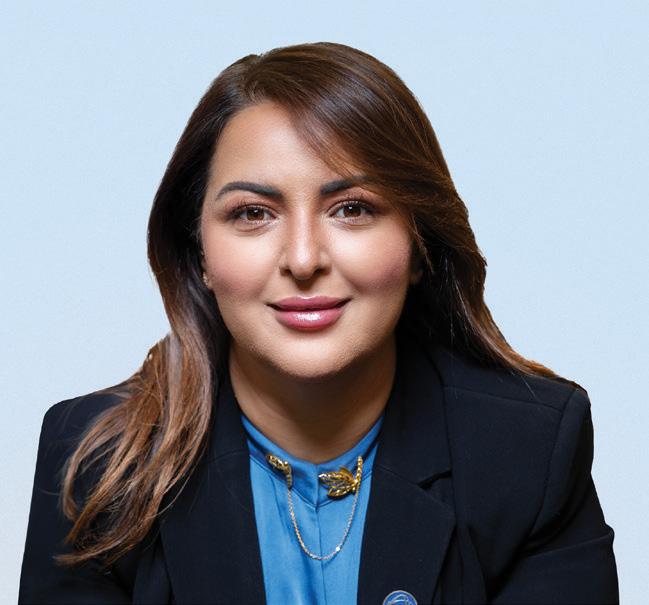
In 2015, Qatar helped Kuwait restore electricity during a major outage by leveraging the GCC’s shared grid. These frameworks, when enhanced with digital coordination, can optimise supply chains, buffer demand shocks and build geopolitical trust.
What tools does the DCO offer to help member states?
We launched the Digital Economy Navigator at the UN General Assembly last year. It benchmarks countries across infrastructure, regulation, and skills. For example, if a nation prioritises AI but only 20 per cent of its population is online, we help them reassess and realign their priorities. We also support nations with FDI frameworks and policy harmonisation.
How do you define digital resilience, especially in the context of national security? It’s the bedrock of national stability. We work with governments, tech firms and cybersecurity partners to secure cross-border infrastructure, protect data flows, and strengthen public trust. Resilience now underpins economic and societal well-being.
Who’s leading in this space regionally?
The Gulf is setting a strong example: Saudi Arabia, Oman, Qatar, and Kuwait are all advancing smart governance, AI policy and cloud strategies. They’re not just building nationally, they’re shaping global digital norms.
Your final thoughts on AI’s impact?
By 2026, AI will add $70bn to global GDP. But 39 per cent of current jobs may disappear. We need to prepare byupskilling workforces, securing systems, and shaping policy. AI is a tool, but readiness is everything.

JUNE 2025


MARK YOUR DIARIES WITH OUR MUST ATTEND AWARDS AND BRIEFINGS

GULF BUSINESS BREAKFAST (DUBAI, UAE)
INVESTMENT TRENDS: What’s driving growth in 2025


2025
GULF BUSINESS BREAKFAST (RIYADH, KSA)
FINTECH FRONTIERS: Focus on AI, DeFi and digital payments
SEPTEMBER 2025
GULF BUSINESS AWARDS (DUBAI, UAE)
RECOGNISING THE BEST IN KEY SECTORS ACROSS THE GCC Retail, Real Estate, Banking, Energy, Technology and Healthcare


UPCOMING EVENTS GULF BUSINESS AWARDS

2025
GULF BUSINESS BREAKFAST (DUBAI, UAE)
BUILDING TOMORROW: Innovations and sustainability in UAE real estate

gulfbusiness.com/events FOR EVENT SPONSORSHIP AND MORE DETAILS, CONTACT manish.chopra@motivate.ae | mario.saaiby@motivate.ae | hitesh.kumar@motivate.ae


PRESENTED BY





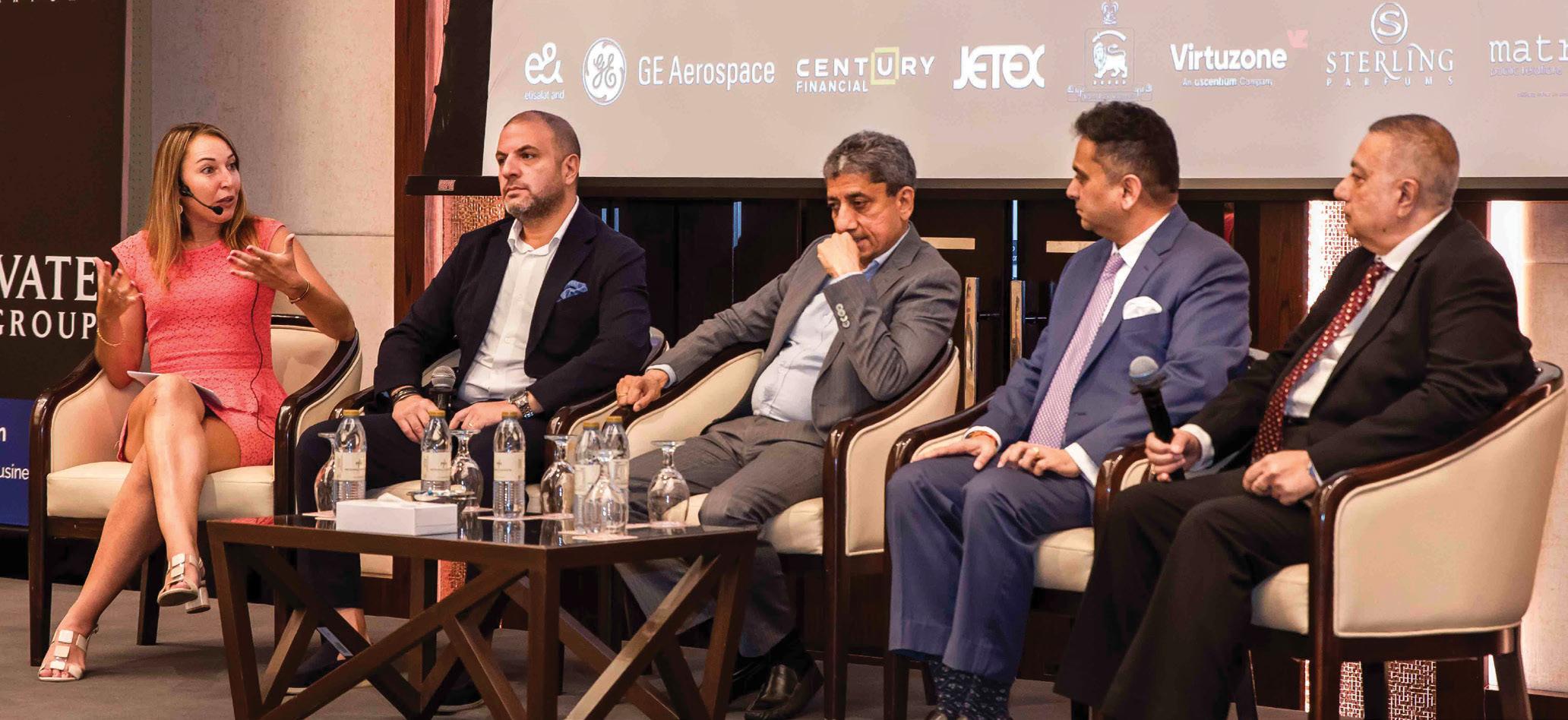
AS GLOBAL AND REGIONAL DYNAMICS CONTINUE TO SHIFT, THE RECENT EVENT REAFFIRMED THE UAE’S POSITION AS A STRATEGIC HUB FOR INVESTMENT INNOVATION AND LONG-TERM GROWTH PLANNING
BY NIDA SOHAIL
On June 25, 2025, the Gulf Business convened top financial and investment leaders to explore major trends shaping the UAE’s economic trajectory. Key themes included the surge in residence-by-investment programs, the evolving IPO landscape, and the global impact of the largest generational wealth transfer in history. Panelists included Damian Hitchen (Saxo Bank MENA), Muhammed Hassan (PwC), Yasmine Omari (Bank of Singapore), George Hojeige (Virtugroup), and Yogesh Khairajani (Century Financial).
THREE CORE DISCUSSIONS FRAMING THE AGENDA
01 Global mobility and residence-by-investment
This session explored citizenship strategies, capital protection, and personal relocation in response to geopolitical shifts. The UAE’s Golden Visa continues to position the nation as a magnet for business owners and investors seeking a stable and growth-friendly environment.
02 UAE IPO outlook beyond 2025 Speakers examined market readiness,
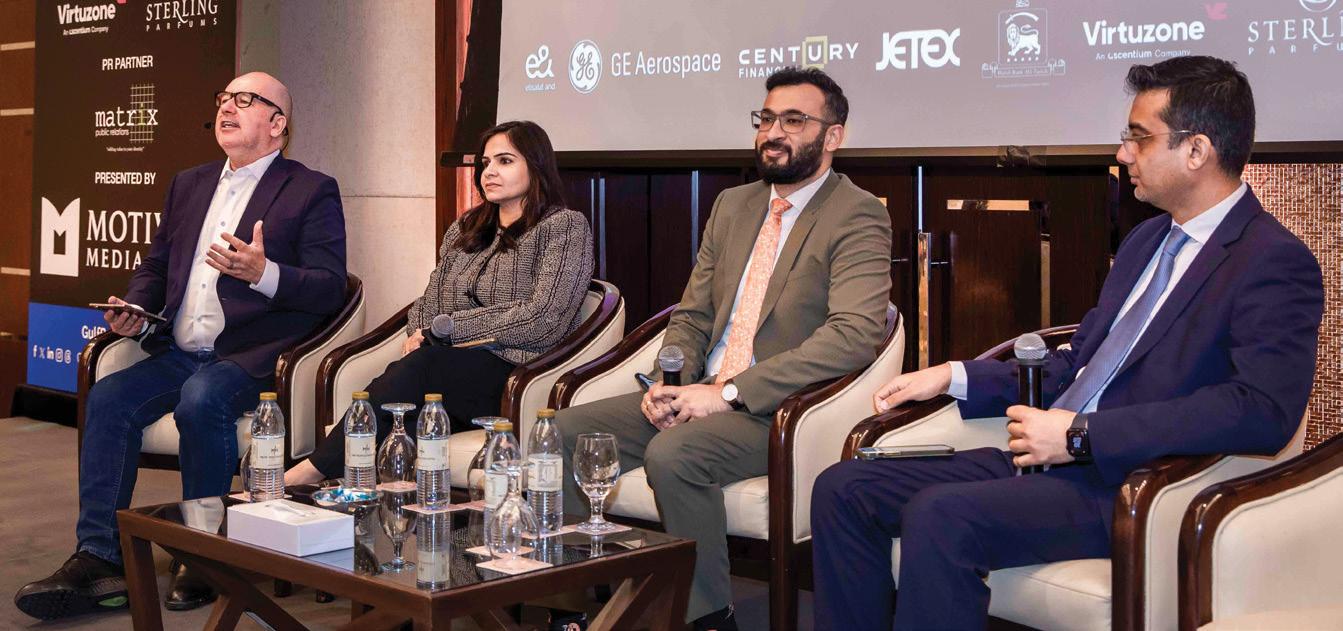
upcoming listings, and the broader macroeconomic landscape. IPO-focused investment funds, including the Abu Dhabi IPO Fund, have made it easier for retail investors to access diverse listings while mitigating the risks of individual stock picks.
03 Generational wealth transfer and investment strategies
The largest wealth shift in history is reshaping financial priorities. Digital-native heirs are focusing more on succession planning, wealth tech, and institutional-grade family governance frameworks.
THE TRUTH ABOUT BUSINESS EXITS
Panelists also unpacked the myths around business exits. Contrary to the common narrative, exits are not about ‘free money’. Instead, they require strategic evolution and alignment between founders and investors.
“Investors don’t just hand over capital and walk away,” said George Hojeige, CEO of Virtugroup. “They’re involved, they want to know how the money’s being used, and what the future holds. Free money doesn’t exist.”
He emphasised the risks of cultural misalignment, referencing Microsoft’s
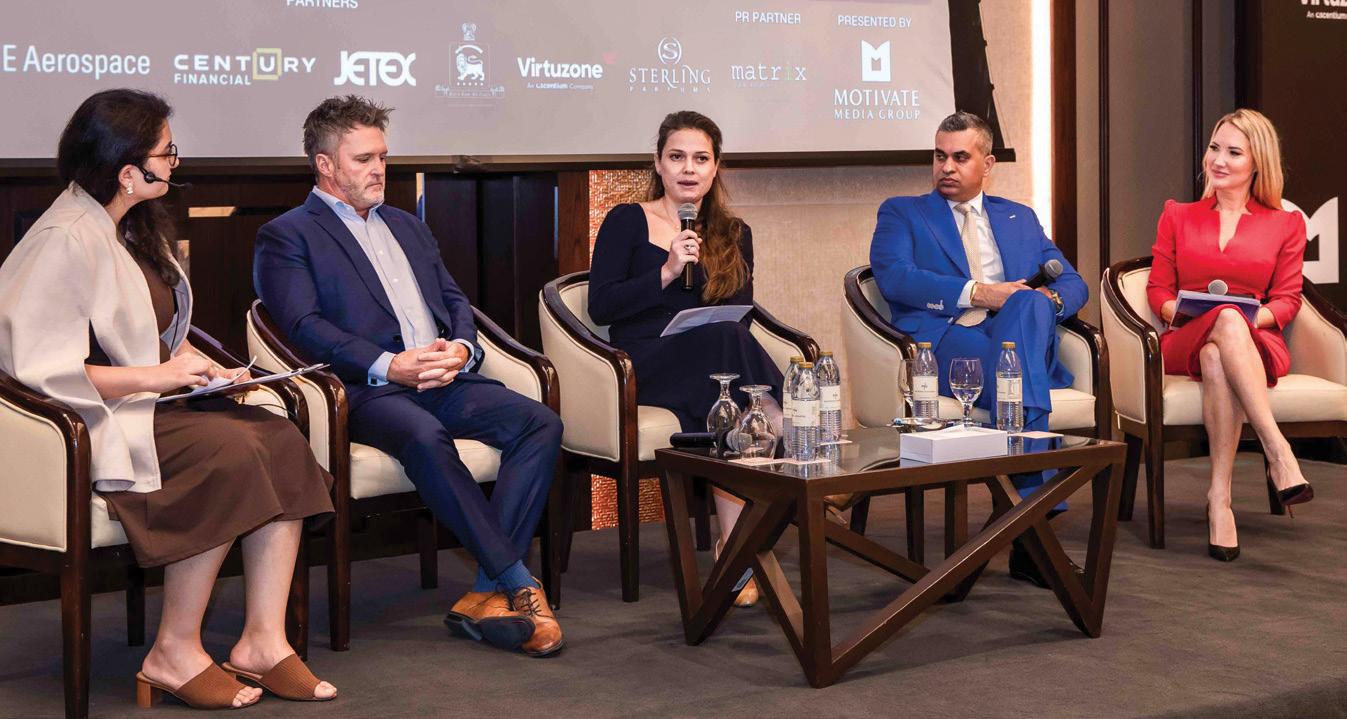
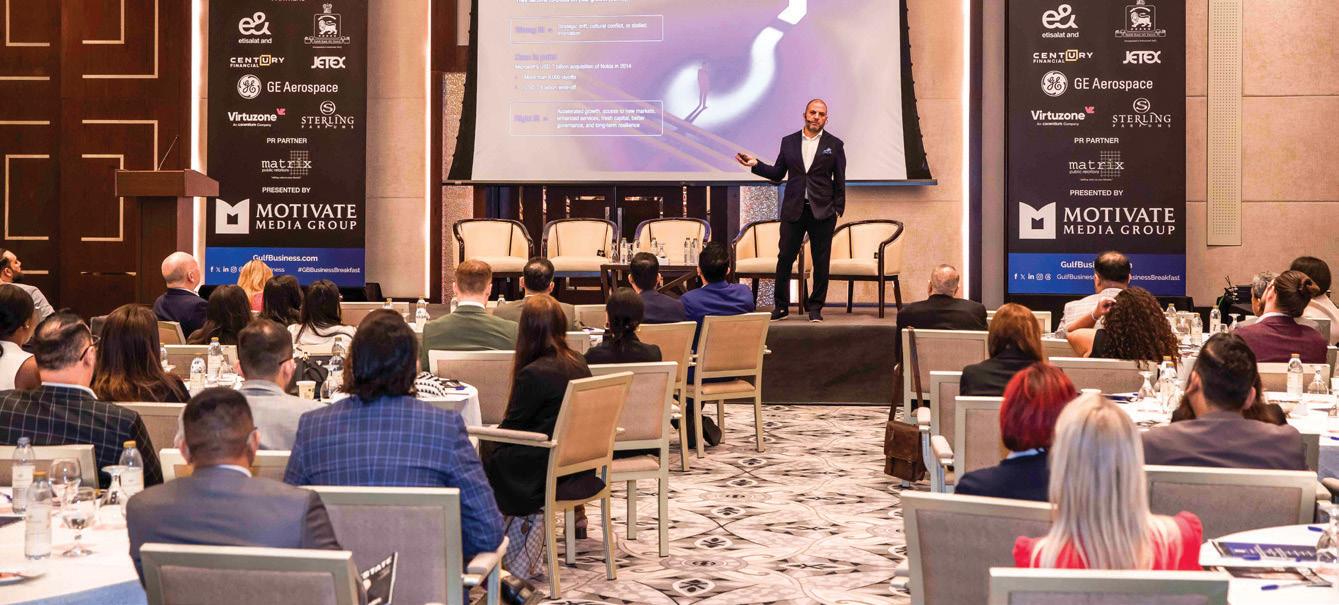
failed 2014 acquisition of Nokia. “Despite being industry giants, cultural and operational clashes led to mass layoffs and a failed integration.”
His advice to founders: an exit should be treated as a transformation, not just a transaction. “Choosing the right partner is crucial. Without shared values and goals, no amount of funding can fix the problems that follow.”
As countries compete to attract high-networth individuals and businesses, the UAE has established itself as a top contender, particularly through policies like the Golden Visa and streamlined business processes. However, the country must remain adaptive as other jurisdictions enhance their appeal.
Dubai is rapidly emerging as a key destination for family offices and wealth management services. Vishwajit Patil, senior executive officer of Nuvama Private DIFC, noted that Dubai’s efficient systems, favorable regulatory framework, and connectivity make it a prime hub for
high-net-worth families. Nuvama Private expanded to Dubai in August 2024, underscoring the region’s strategic importance. Patil highlighted five pillars clients prioritise when relocating:
Geopolitical stability
Healthcare and education infrastructure
Cost of living and lifestyle
Strategic location and global connectivity
Ease of business setup and residency
“In all these areas, Dubai excels,” said Patil, pointing to the UAE’s ability to deliver fast, high-quality services.
The UAE’s IPO market is entering a new phase with increasing participation from both institutional and retail investors. Yogesh Khairajani global market strategist at Century Financial highlighted the role of IPO-focused investment funds, particularly as IPOs often become oversubscribed.
“These funds provide investors with diversified exposure to high-potential IPOs,” said Khairajani. “The Abu Dhabi IPO Fund, for example, enables broad participation and reduces reliance on choosing a single stock.”
Such developments are expanding the investment landscape and reinforcing the UAE’s role as a financial innovation hub.
Yasmine Omari, head of wealth planning at the Bank of Singapore, spoke on the shift in how families manage and deploy capital amid the ongoing wealth transfer.
“What we’re witnessing is more than generational change — it’s a transformation in investment mindset and structure,” she said. Families are increasingly diversifying across asset classes and adopting institutional approaches. Many are establishing in-house investment teams or familyowned funds, complete with governance structures and professional managers.
“This marks a departure from the traditional model of reinvesting operating profits,” said Omari. “Instead, families are using their businesses as platforms for broader investment activity, often creating spin-offs in technology or finance.”
She emphasised the growing importance of governance, especially with multiple generations now involved in decisionmaking. “There’s a greater need for clear communication, structured processes, and consensus-building,” Omari noted.
The Gulf Business event reaffirmed the UAE’s leadership in fostering economic innovation, strategic investment planning, and cross-border financial mobility. From IPO market expansion to family office evolution and Golden Visa-driven growth, the UAE continues to shape itself as a global epicenter for long-term capital, innovation, and generational wealth stewardship.
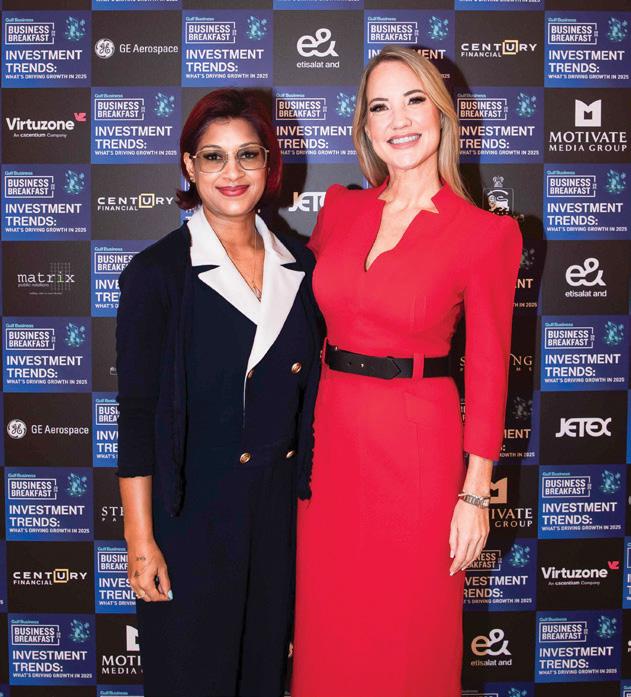





















STERLING PERFUMES’ VISION IS TO BE RECOGNISED WORLDWIDE NOT SOLELY AS A PERFUME COMPANY, BUT AS A LIFESTYLE CURATOR THAT EMPOWERS INDIVIDUALS TO EXPRESS THEMSELVES MORE VIBRANTLY, SAYS CHAIRMAN AND CEO DR ALI ASGAR FAKHRUDDIN
WORDS NEESHA SALIAN
Step into the sleek, fragrance-dotted offices of Sterling Perfumes in Dubai, and you’re immediately hit with the unmistakable notes of tradition, innovation and grand ambition. At the heart of it all is Dr Ali
Asgar Fakhruddin, who has turned a family-run fragrance operation into a global brand.
As chairman and CEO, Dr Fakhruddin isn’t merely following trends; he believes in meticulously setting them – in exquisitely designed glass bottles, in lingering scent trails, and in immersive experiences that resonate deeply with consumers long after the first spritz.
“If your ambition isn’t audacious, you’re playing it too safe,” he shares – a statement delivered with the quiet, assured confidence of someone who has guided a UAE-born beauty and lifestyle brand into a powerhouse with presence in over 132 countries – and whose sights are still set on expanding those horizons even further.
“My father, Fakhruddin Ebrahimiji, came to the UAE with just five rupees in his pocket,” Dr Fakhruddin shares, his voice carrying a soft conviction that distills decades of persistence and purpose. “That legacy drives every decision we make.”
This foundational philosophy instilled by his father – that “success should create value across the board – for our suppliers, employees, partners, and consumers” – remains the guiding star.
“That’s what my father believed. That’s how I lead,” he affirms, clarifying how this core principle has been instrumental in transforming the business – as part of the larger Sterling Group – into a regional powerhouse.
What began with a modest daily production of just 250 units has since scaled dramatically to over 250,000 units daily
Dr Fakhruddin embarked on his business journey at just 17. As the youngest member of the Fakhruddin family, he rapidly immersed himself in the intricacies of operations, learning the business from its very foundations. “From the very beginning, I wanted to build a brand the world could respect, but that never forgot where it came from,” he says, articulating his early ambition.
What began with a modest daily production of just 250 units has since scaled dramatically to over 250,000 units daily, a testament to the company’s manufacturing capabilities and strategic growth. This growth mirrors the global demand for fragrances.
Dr Fakhruddin also keenly observes the evolving consumer relationship with fragrance. “Fragrance is no longer a silent luxury,” he states. “It’s a mood, a memory, an identity. People want to belong to something.” This profound understanding has been a driving force behind Sterling’s sustained success.
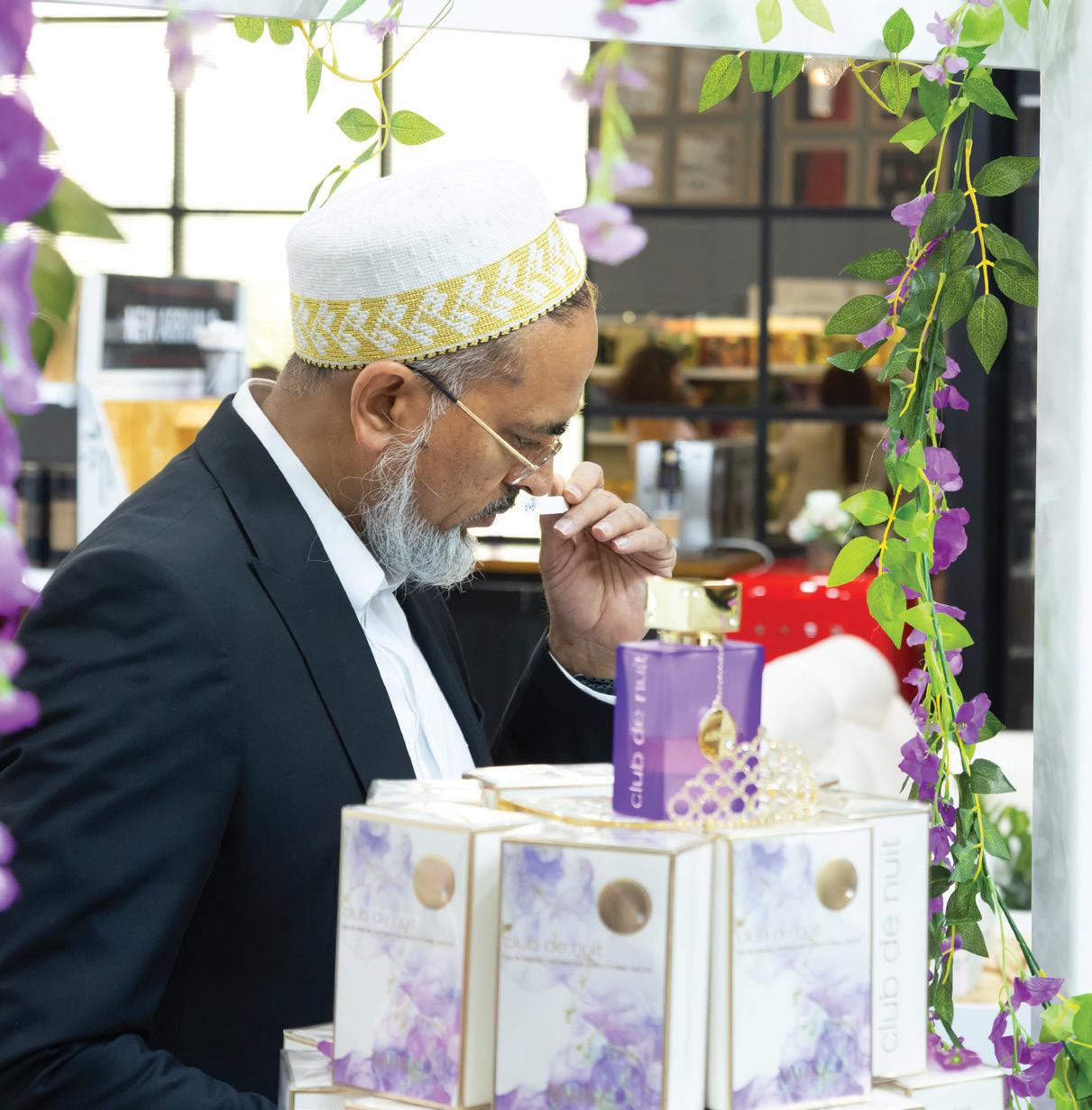
The company’s product portfolio has meticulously evolved to mirror this philosophy: ARMAF embodies bold, expressive confidence; Hamidi pays homage to rich Middle Eastern perfumery; Cosmo offers accessible, trend-forward personal care essentials; and Armaf Beauté brings inclusive, high-performance colour cosmetics to the forefront.
“Each product is designed to reflect identity, celebrate individuality, and provide aspirational quality without the luxury price tag,” he explains, highlighting Sterling’s commitment to quality and accessibility.
Recent launches, such as Odyssey Dubai Chocolat and Eter Desert Breeze, serve as prime examples of how Sterling transforms scent into compelling narratives of the past meeting the present and preparing for the future.
Dr Fakhruddin says, “We’ve always believed that innovation and heritage can coexist. One doesn’t cancel the other. Our job is to honour the past while creating the future of fragrance,” he asserts, outlining the dual pillars of Sterling’s approach.
This progressive ethos has positioned Sterling as a compelling case study in intelligent, sustainable growth. The company makes significant investments in consumer insights,
AT STERLING, OUR DNA IS DEFINED BY TIMELESS VALUES: QUALITY, TRUST, CREATIVITY, AND EMOTIONAL STORYTELLING. THESE REMAIN CONSISTENT ACROSS EVERY TOUCHPOINT, BUT WE ALSO UNDERSTAND THAT CULTURE IS NOT MONOLITHIC.”
comprehensive digital transformation, and the creation of immersive brand experiences that resonate deeply with modern audiences. “Dubai Chocolat, for example, didn’t just launch as a perfume,” he reiterates, “It became a moment. A story told in scent, design, emotion. That’s what people remember.”
Sterling’s retail strategy is equally innovative, featuring multi-sensory pop-ups and product drops meticulously supported by story-rich campaigns specifically designed to spark connection, particularly across social platforms. Influencerhosted masterclasses, virtual try-ons, and behind-the-scenes content are now considered as vital to the brand’s engagement as the fragrance itself.
Dr Fakhruddin emphasises the strategic imperative behind every launch: “Everything we launch has to deliver an impact – emotionally and commercially. If it doesn’t feel right to the consumer, we go back to the drawing board.” This commitment to consumer resonance ensures that every product serves a purpose beyond mere scent.
Sterling’s marketing strategy is a direct reflection of its core values: storytelling, transparency, and authenticity. Collaborations with regional influencers are meticulously built on fostering long-term relationships, moving beyond mere one-off campaigns. “Creators are co-authors of our story,” Dr Fakhruddin states. “They bring our brands to life in ways that feel real.” This collaborative approach ensures that the brand narrative is not just delivered but co-created with voices that resonate authentically with diverse audiences.
“Our strategy is rooted in building real relationships; longterm partnerships with creators who align with our values and bring our stories to life with authenticity,” Dr Fakhruddin asserts.
The company has proactively supported creators globally, assisting them in expanding their platforms while integrating them into significant brand launches, ranging from live events to virtual rollouts.
Through these initiatives, Sterling has successfully cultivated a vibrant and engaged community that bridges Eastern and Western cultural sensibilities. “This cross-cultural ecosystem
has become one of Sterling’s most powerful brand assets,” Dr Fakhruddin adds.
“People today don’t just want to buy. They want to connect. Our brands are built to start conversations,” he adds, highlighting Sterling’s commitment to fostering community and engagement through its products.
Sterling also operates on a global scale while meticulously maintaining profound cultural relevance alongside a consistent brand identity.
“At Sterling, our DNA is defined by timeless values: quality, trust, creativity, and emotional storytelling. These remain consistent across every touchpoint,” Dr Fakhruddin explains. “But we also understand that culture is not monolithic. What resonates in Riyadh may not connect in Paris or Los Angeles. That’s why we lead with global consistency and local resonance.”
This strategic balance involves empowering regional teams and distributor networks to meticulously tailor messaging, spotlight varying fragrance notes, and adapt campaign narratives to suit their specific markets. “This global-local balance helps us remain deeply rooted in our origins while celebrating the diverse sensibilities of our audiences,” he notes.
The company employs a multi-layered approach to integrate regional trends into its global product roadmap. “But we also listen on a deeper level: what are people longing for? What emotional gaps can fragrance fill in a specific culture?” Dr Fakhruddin states, emphasising the qualitative aspect of their research.
Regions like Saudi Arabia continue to serve as a significant and rich source of inspiration, particularly with their deep-rooted traditions and highly distinctive scent rituals. Markets such as India offer a compelling and vibrant fusion of wellness concepts, profound cultural heritage, and modern, expressive forms of self-expression.
“Fragrance is no longer a silent luxury. It’s a mood, a memory, an identity.”
Meanwhile, the US and Latin American markets provide crucial insights into lifestyle-driven marketing strategies and pioneering innovations in digital-first discovery methods. When a regional trend demonstrates clear alignment with Sterling’s core values and exhibits a strong potential for broader, global appeal, the company strategically and carefully cultivates it into its mainstream offerings, says the chairman.
OUR JUNIOR TEAM MEMBERS OFTEN LEAD DIGITAL IDEAS. EVERYONE HAS A VOICE, FOSTERING AN ENVIRONMENT WHERE FRESH PERSPECTIVES ARE NOT JUST WELCOMED BUT ACTIVELY SOUGHT.”
With contemporary retail fundamentally transcending its traditional function as a mere transactional space, evolving dynamically into a vibrant platform for active engagement and deeply immersive experiences. Sterling is at the forefront of this evolution, meticulously reinventing fragrance retail by seamlessly blending compelling physical storytelling with cutting-edge digital innovation.
“Retail today is not just a space for transactions. It is a platform for engagement and immersion,” Dr Fakhruddin explains, articulating this transformative vision. From its renowned ‘Perfume Wall’ installations – which it unveiled to celebrate its 25th anniversary two years ago – to its multi-sensory pop-ups, the overarching objective is to meticulously transform every retail encounter into a truly unforgettable experience.
Travel retail has also emerged as a particularly successful and strategic channel for Sterling, offering exclusive campaigns and limited-edition product formats meticulously curated to cater to the discerning tastes and unique needs of global travellers.
Sterling is also strategically investing in advanced, technologyenabled retail environments, meticulously designed to empower consumers to interactively explore collections, seamlessly access digital content via scanning, and personalise their fragrance discovery journey. experience.
The focus on digital transformation has also complemented the company’s operations. For Dr Fakhruddin, “Digital agility isn’t about tools; it’s a mindset.” He details how his teams are meticulously structured into agile, cross-functional pods, designed to accelerate product development and optimise marketing efforts. Powered by advanced SAP systems and sophisticated analytics, the company possesses the capability to adapt swiftly to evolving market trends and nuances in consumer behavior in real-time.
A cornerstone of this agile approach is the decentralised, people-first culture. “Our junior team members often lead digital ideas. Everyone has a voice,” he explains, fostering an environment where fresh perspectives are not just welcomed but actively sought. This empowers the company to innovate with remarkable speed and a distinct soul, where formal titles are less significant than individual initiative, and leadership
is fundamentally about nurturing talent rather than merely directing tasks.
“We’re not a top-down company,” he states emphatically. “We share failures. We celebrate wins together. That’s how you build long-term loyalty.” This transparent and collaborative culture builds robust internal bonds and encourages continuous improvement.
When it comes to sustainability – a key consideration for the fragrance and beauty industry, it transcends a mere marketing theme for Sterling, the chairman says.
“For us, sustainability is not a marketing theme, and we actively want to avoid green washing. It’s a responsibility embedded in how we create,” Dr Fakhruddin states, articulating the core principle. The strategic advantage of in-house manufacturing provides the company direct and comprehensive control over every aspect of product development, from the initial meticulous sourcing of ingredients to the final packaging decisions. Sterling maintains exclusive partnerships with long-term, meticulously vetted suppliers who unequivocally prioritise ethical sourcing, comprehensive ingredient traceability, and rigorous environmental responsibility. The company is progressively incorporating clean formulations and strategically introducing refillable, eco-conscious packaging solutions across its major product lines. As Sterling strategically expands its presence into wellness and beauty categories, its robust sustainability framework adapts accordingly, ensuring consistent responsible practices across new ventures. Every product is consciously designed with responsibility in mind, without compromising performance or the desired sensory delight.
“Our ambition is to build products that last – in impact, purpose, and trust,” Dr Fakhruddin articulates, outlining a vision of enduring value.

ON LEGACY AND PURPOSE: “My father came to the Arab world with just five rupees in his pocket. That legacy drives every decision we make.”
ON HIS LEADERSHIP STYLE: “My leadership style is deeply influenced by my father’s ethos: leadership is not about power or control; it’s about empowerment, trust, and growing people. I lead with transparency, empathy, and a deep sense of responsibility toward our teams.”
ON INNOVATION: “We’ve always believed that innovation and heritage can coexist. One doesn’t cancel the other.”
ON SCALING GLOBALLY: “From the beginning, I wanted to build a brand the world could respect — but that never forgot where it came from.”
ON PRODUCT DEVELOPMENT: “Each product must deliver an emotional connection. If it doesn’t, it doesn’t ship.”
ON CULTURE: “Our culture is built around freedom to work, decisionmaking at all levels, and the belief that innovation thrives where people feel seen, valued, and trusted. Digital agility isn’t about tools; it’s a mindset. Our junior team members often lead digital ideas. Everyone has a voice.”
ON SUCCESS: “Success should create value across the board — for our suppliers, employees, partners, and consumers.”
ON SUSTAINABILITY: “We don’t greenwash. We build to last — in impact and in trust.”
ON PURPOSE-DRIVEN BRANDING: “People today don’t just want to buy. They want to connect.”
ON GENERATIONAL THINKING: “We see sustainability not as an obligation, but as a responsibility to future generations.”
ON GLOBAL IMPACT: “When I see someone using one of our products in another country — someone I’ve never met — I feel a quiet pride. That’s impact.”
Sterling is not merely expanding its geographical footprint; it is strategically redefining its very categories. Through Armaf Beauté, the group has successfully launched a range of high-performance, inclusive cosmetics, directly responding to market demands for diverse and clean beauty solutions. Concurrently, Cosmo, another key brand, effectively competes with global giants by offering clean, affordable personal care essentials, demonstrating Sterling’s ability to deliver value across different market segments.
“We’re building a full-sensory lifestyle brand,” Dr Fakhruddin confirms, outlining an ambitious diversification strategy. This Pics:
includes extending the brand’s presence into home ambiance with sophisticated room sprays, evocative incense, and elegant aromatic diffusers, alongside body mists and a growing array of cosmetics. “Fragrance isn’t just something you wear. It’s how you live,” he states, capturing the essence of this holistic vision. This strategic diversification is not opportunistic. Rather, each new product must pass a critical test: does it deliver an emotional connection to the consumer? “If it doesn’t,” he asserts with unwavering resolve, “it doesn’t ship.”
The company is also actively exploring strategic partnerships with various lifestyle and fashion brands, aiming to further extend its market reach and enhance its brand presence across complementary sectors. “This is just the beginning. We want Sterling to be creating experiences that are personal, purposeful, and immersive,” Dr Fakhruddin concludes, encapsulating the future trajectory.
For the leader, the definition of success for Sterling over the next five years is measured fundamentally by its relevance and resonance within the global market. “Success, for us, is measured in relevance and resonance,” he states, emphasising the qualitative aspects of their future achievements.
The goal is for Sterling to be recognised worldwide not solely as a perfume manufacturing company, but as a lifestyle curator that empowers individuals to express themselves more vibrantly, live more beautifully, and engage with their surroundings more mindfully. This vision entails Sterling products seamlessly integrating into daily rituals, whether found in a dressing room in Paris, a living room in Riyadh, or a handbag in Mumbai.
Achieving this ambitious goal necessitates thoughtful and purposeful market expansion, strategic entry into new geographies, and a continuous commitment to leadership in quality, innovation, and inclusivity.
On a deeply personal level, Dr Fakhruddin hopes to establish a lasting legacy that unequivocally proves how a dream, originating from a humble five rupees, can evolve into a world-class enterprise – provided one leads with genuine sincerity, empowers their teams, and remains steadfastly rooted in a core purpose.
“Sterling will always be a tribute to that belief,” he affirms, encapsulating the profound essence of the brand’s remarkable and ongoing journey.

Integrated

Outstanding
Strategic







IN THIS REPORT, WE PROFILE 30 INFLUENTIAL CEOS FROM THE MENA REGION. EACH HEADS A COMPANY WITH A MULTINATIONAL FOOTPRINT AND MARKET LEADERSHIP. FROM ENERGY TO FINANCE, HOSPITALITY TO TECH, THESE CEOS ARE HELPING SHAPE THE FUTURE OF THE REGION

Disclaimer: This list was independently curated by the Gulf Business editorial team and is presented in alphabetical order. Given the scale of the region, a second instalment will follow in a future edition

CHAIRMAN AND CHIEF EXECUTIVE | EMIRATES GROUP
SHEIKH AHMED BIN SAEED AL MAKTOUM HAS SHAPED DUBAI’S GLOBAL AVIATION DOMINANCE, LEADING EMIRATES TO RECORD-BREAKING SUCCESS AND SCALE
For nearly four decades, Sheikh Ahmed bin Saeed Al Maktoum has been at the helm of one of the most remarkable success stories in global aviation. At the helm of the Emirates Airline and Group since its inception in 1985, Sheikh Ahmed has shaped Emirates into the world’s most profitable airline and a flagship of Dubai Inc’s rise as a global hub for trade, tourism, and finance.
In FY 2024–25, under his leadership, the Emirates Group recorded its bestever financial results — a pre-tax profit of Dhs22.7bn, revenue of Dhs145.4bn, and record cash reserves of Dhs53.4b. Emirates alone carried nearly 54 million
passengers, launched a $5bn retrofit programme, and prepared for delivery of new Airbus A350s and Boeing 777 freighters. The group declared a dividend of Dhs6bn to its owner, the Investment Corporation of Dubai (ICD) — a testament to the strategic value it continues to generate.
Sheikh Ahmed’s aviation career began as president of the Dubai Department of Civil Aviation, the same year Emirates was launched with just two leased aircraft. Today, Emirates operates over 260 aircraft, serves over 100 destinations. The transformation of Dubai International Airport into the world’s fourth busiest, the creation of Dubai World Central (DWC), and the rise of flydubai — all bear his imprint.
His influence extends well beyond aviation. Sheikh Ahmed chairs Dubai Airports, Dubai Holding, Emirates NBD, flydubai, and the Dubai Civil Aviation Authority. He also plays a pivotal role in shaping Dubai’s fiscal and investment strategies and serves as a global ambassador for Dubai’s economic ambitions.
A graduate of the University of Denver, Sheikh Ahmed has been recognised by institutions such as the Royal Aeronautical Society and serves as a patron of several charitable causes. Despite overseeing a vast portfolio of entities, his leadership is anchored in clear principles: long-term value creation, customer-centricity, talent investment, and unwavering resilience through global headwinds.
As the Emirates Group gears up for a future shaped by new technologies, infrastructure, and expansion, Sheikh Ahmed remains one of the Gulf’s most iconic and enduring chief executives — a symbol of Dubai’s bold vision and its global aviation leadership.
FROM DUBAI TO CAIRO, AHMED GALAL ISMAIL IS CHARTING A LEGACY OF GROWTH, AI AND MEGA INVESTMENT AT MAJID AL FUTTAIM
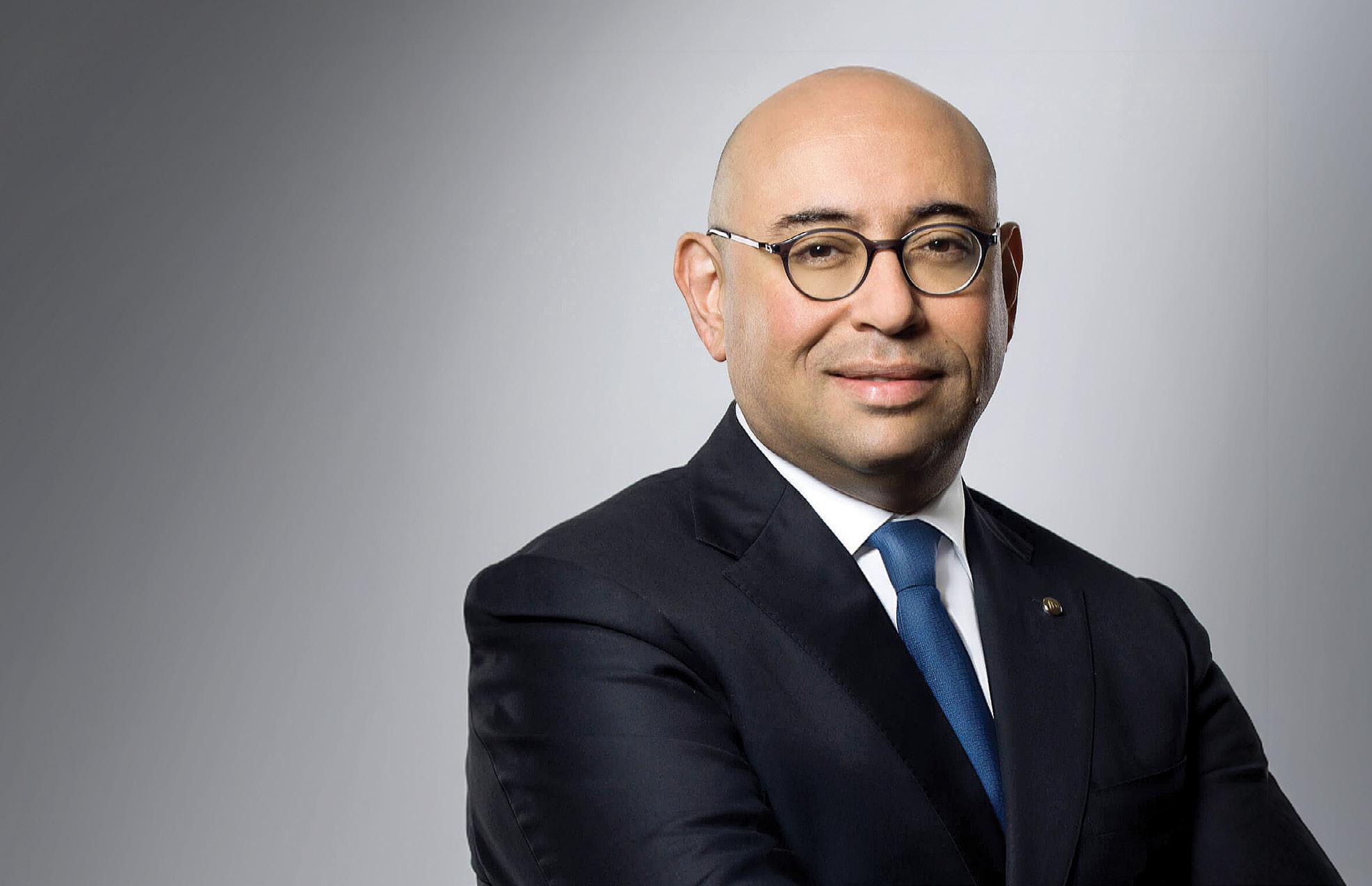
Ahmed Galal Ismail leads one of the Middle East’s most influential companies as CEO of Majid Al Futtaim Holding. With assets exceeding $19bn and a workforce of 43,000 across the Middle East, Africa and Asia, the group has become a dominant force in shopping malls, retail and leisure.
Ismail’s nearly two-decade tenure at Majid Al Futtaim has seen him rise through senior leadership roles, including CEO of Majid Al Futtaim Properties and Majid Al Futtaim Ventures, overseeing major segments from malls to cinemas, leisure, consumer finance and lifestyle brands. Before joining in 2007 as VP of Strategy, he held positions at Procter & Gamble in Egypt and Germany, followed by Booz Allen Hamilton, where he advised companies across retail, media and transportation.
Under his leadership, Majid Al Futtaim is executing a Dhs5bn transformation of its flagship Mall of the Emirates. The ambitious ‘Mall of New Possibilities’ project will add 20,000 sqm of new retail space, introduce 100
new stores, and launch four entertainment offerings by late 2026. More than Dhs1.1bn has already been allocated to key upgrades.
Beyond the UAE, Ismail is steering Majid Al Futtaim’s strategic expansion in Egypt. In April 2025, the company inaugurated Junction, its first business park in the country. Located next to the Mall of Egypt in West Cairo, Junction represents a EGP15bn investment, spanning 129,000 sqm with 13 office buildings, retail, dining and LEED-certified sustainable infrastructure. The project is expected to generate over 8,000 direct and indirect jobs.
Ismail also oversees the group’s push into AI-powered retail media through Precision Media, which now operates 212 digital screens across 25 Carrefour hypermarkets, offering dynamic, sensor-based advertising solutions in partnership with Publicis Media Middle East.
Ismail holds an MBA with distinction from London Business School and a bachelor’s degree in computer science from the American University in Cairo. He serves on several boards, including the Arab Investment Bank, and is a member of the World Economic Forum’s International Business Council.
BEYOND THE UAE, AHMED GALAL ISMAIL is steering Majid Al Futtaim’s strategic expansion in Egypt. In April, the company inaugurated Junction, its first business park in the country. Located next to the Mall of Egypt in West Cairo, Junction represents a EGP15bn investment, spanning 129,000 sqm with 13 office buildings, retail, dining and LEED-certified sustainable infrastructure.
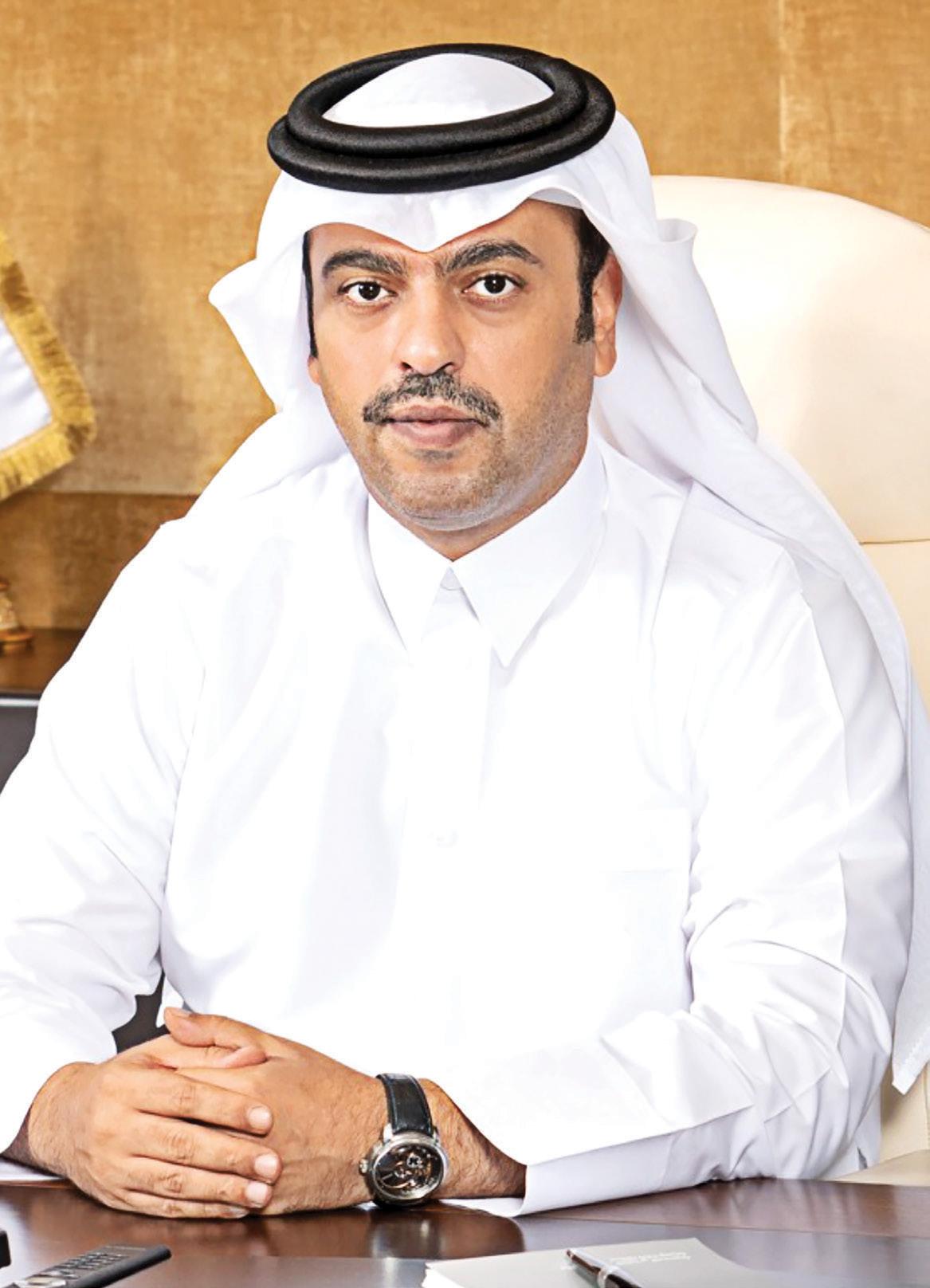
Under the leadership of Abdulla Mubarak Nasser Al Khalifa, QNB Group has embraced technology and sustainability, enhancing operational efficiency and competitiveness, while playing a crucial role in diversifying the regional economy. These strategic advancements have ensured the bank remains at the forefront of the financial services industry.
QNB was named Qatar’s ‘Best Private Bank’ and Qatar’s ‘Best for UHNW (ultra high net worth) in the 2025 Euromoney Private Banking Awards, further strengthening its leadership in the private banking sector. These prestigious accolades underscore QNB’s unwavering commitment to delivering world-class
private banking solutions tailored to the evolving needs of its high-net-worth clients. The awards also reflect the strength of QNB’s wealth management offerings, its comprehensive advisory services, and the deep expertise of its relationship managers.
Steadily steering toward becoming one of the largest financial institutions in the Middle East and Africa (MEA) region, QNB Group announced its results for the three months ended March 31, under the guidance of Al Khalifa. Net profit for the period reached QAR4.3bn ($1.2bn), a 3 per cent increase compared to the same period last year.
Net profit before the impact of Pillar Two Taxes reached QAR4.6bn, reflecting an 11 per cent increase from March 2024. Operating income rose by 6 per cent to QAR11bn, demonstrating the group’s consistent ability to generate diversified revenue growth.
As of March 31, total assets stood at QAR1,324bn, up 7 per cent from the previous year, primarily driven by a 9 per cent increase in loans and advances to QAR947bn.
Customer deposits rose 6 per cent year-on-year to QAR930bn, supported by the group’s successful deposit diversification strategy.
QNB group’s efficiency ratio (cost to income) remained strong at 22.7 per cent, among the best in the MEA region for large financial institutions.
Under Al Khalifa’s leadership, QNB group’s sustainable finance portfolio has grown to over $9bn, encompassing green, social, and sustainability-linked transactions that deliver meaningful environmental and societal benefits.
The group has issued $1.1bn in sustainable bonds, and earlier this year, QNB played a leading role as key coordinator in Qatar’s first sovereign $2.5bn green bond issuance. Within its own operations, the bank has achieved an impressive 48 per cent reduction in greenhouse gas emissions since 2017.
QNB GROUP’S EFFICIENCY RATIO (COST TO INCOME)
REMAINED STRONG AT 22.7 PER CENT, AMONG THE BEST IN THE MEA REGION FOR LARGE FINANCIAL INSTITUTIONS.
JETEX FOUNDER AND CEO
ADEL MARDINI IS REDEFINING LUXURY TRAVEL WHILE PIONEERING INNOVATION AND ENVIRONMENTAL RESPONSIBILITY IN GLOBAL AVIATION
Adel Mardini, founder and CEO of Jetex, has redefined luxury travel and private aviation since launching the company in 2005. Based in Dubai, Jetex began as a bold vision — to transform the experience of private aviation through exceptional service, innovative design, and seamless logistics. Today, that vision has become a global reality, with Jetex operating a vast network of private terminals and ground handling stations across more than 25 countries.
Jetex serves an elite clientele that includes heads of state, celebrities, and global business leaders. But what truly sets the company apart is the leadership of Adel Mardini — a dynamic entrepreneur whose hands-on approach and forward-thinking strategies have positioned Jetex as a global benchmark in the industry.
Adel Mardini is widely recognised for his entrepreneurial insight and his commitment to excellence. Under his leadership, Jetex has become synonymous with precision, personalisation, and next-level hospitality. He continues to expand the brand’s global footprint, focusing on innovation in terminal architecture, guest experiences, and digital integration.
In addition to his role at Jetex, Mardini actively contributes to the broader aviation community. He serves on the Board of the Middle East Business Aviation Association (MEBAA), helping shape aviation policy and regulation across the region. He is also a member of the World Economic Forum and the Young Presidents’ Organisation, where he champions innovation and sustainable practices within the business aviation

sector. Adel Mardini is not only a business leader but also a passionate advocate for sustainability. He led the industry’s first collaboration between a general aviation company and an electric aircraft manufacturer, opening new avenues for cleaner, more environmentally friendly short-haul travel.
Jetex operates with a deep awareness of its environmental responsibilities. The company is committed to reducing its ecological footprint and integrates sustainability into every aspect of its operations. From energy-efficient terminal design to promoting sustainable fuel alternatives and reducing emissions, Jetex pursues a comprehensive environmental strategy aimed at shaping a greener future for aviation.
As air transport continues to be a global catalyst for economic growth, Jetex acknowledges the environmental impact of the industry and strives to mitigate it through intelligent operations, employee engagement, and innovative technologies.
With a steadfast commitment to excellence and a visionary approach to the future, Adel Mardini is not just navigating the skies — he’s helping reshape the landscape of private aviation for generations to come.
JETEX OPERATES with a deep awareness of its environmental responsibilities. The company is committed to reducing its ecological footprint and integrates sustainability into every aspect of its operations.
ALEX REINHARDT’S ULTIMA CHAIN IS REDEFINING BLOCKCHAIN WITH ECO-FRIENDLY SPLITTING TECHNOLOGY, DELIVERING SPEED, SCALABILITY AND SUSTAINABILITY FOR THE DIGITAL ECONOMY
Dubai-based Alex Reinhardt is well-known businessman, venture capitalist, economist, and blockchain expert. Reinhardt is considered among the top 10 most influential figures in the global crypto industry. Reinhardt is a soughtafter speaker at premier blockchain events, including Consensus Hong Kong, Blockchain Life, and Paris Blockchain Week among others. Over the past few years, he has inspired nearly half a million people through more than 100 coaching seminars, sharing insights on leadership, innovation, and entrepreneurship.
Raised in Germany, Reinhardt graduated from Humboldt University in Berlin with a degree in economics. Even during his university years, he immersed himself in the startup ecosystem, helping promising innovators secure funding.
Over a decade, he launched hundreds of startups, raising more than EUR500m in capital. Since 2011, his focus has shifted to blockchain technology, captivated by its transparency and potential to transform global systems.
In 2025, Reinhardt launched Ultima Chain, a cutting-edge Layer-1 blockchain
OVER THE PAST FEW YEARS, ALEX REINHARDT HAS INSPIRED NEARLY HALF A MILLION PEOPLE THROUGH MORE THAN 100 COACHING SEMINARS, SHARING INSIGHTS ON LEADERSHIP AND ENTREPRENEURSHIP.

that introduces a groundbreaking innovation: splitting technology. This novel mechanism redefines decentralised networks by replacing resource-intensive mining with an eco-efficient, user-driven reward model, offering a sustainable alternative to proof-of-work while preserving full decentralisation. Splitting technology reduces the environmental footprint of blockchain and enables seamless horizontal scaling, ensuring the network remains adaptive and future-proof. Paired with a delegated proof-of-stake consensus and three-second block times, Ultima Chain achieves over 2,000 transactions per second, setting new industry benchmarks for speed and scalability.
The Ultima Chain ecosystem is uniquely comprehensive, featuring the DeFI-U liquidity platform, Ultima Wallet, UMarkt marketplace, blockchainbased games, virtual and physical crypto cards, and services in development, such as a travel platform and blockchain resources marketplace. This robust infrastructure makes Ultima Chain an ideal foundation for decentralised applications, wallets, marketplaces, and the broader digital economy.
Reinhardt’s deep understanding of blockchain’s environmental impact drives Ultima Chain’s commitment to sustainability. By prioritising ecofriendly technology, the platform supports the crypto market’s growth while ensuring stable, scalable decentralised networks.
Beyond his business achievements, Reinhardt is a dedicated mentor and author. As the founder of the Alex Reinhardt Academy, he equips entrepreneurs with tools for leadership, discipline, and long-term success. His bestselling book, You’re Number One: How to Become a Leader in 30 Days and Remain One, has inspired countless individuals to transform their lives.
FROM DUBAI TO 132 COUNTRIES, DR ALI ASGAR FAKHRUDDIN LEADS STERLING GROUP WITH INNOVATION, AMBITION, AND A LEGACY-DRIVEN GLOBAL VISION
Dr Ali Asgar Fakhruddin is a visionary leader who has played a transformative role in turning a UAE-born company into one of the region’s most successful global beauty and fragrance powerhouses. As the youngest member of the Fakhruddin family, he began his business journey at just 17 — quickly immersing himself in the family’s operations and laying the groundwork for what would become a global empire.
With over 35 years of industry experience, Dr Fakhruddin has built and led some of the Middle East’s most recognisable fragrance and beauty brands, including ARMAF, Hamidi, Risala, Cosmo Cosmetics, and Armaf Beauté. Today, Sterling’s portfolio reaches consumers across more than 132 countries — carrying the signature of innovation, modernity, and quality rooted in its origins.
At the heart of this success lies Dr Fakhruddin’s ability to anticipate trends and lead with purpose. His vision has propelled the group’s expansion into new markets, while ensuring each brand remains authentic, accessible, and globally relevant. From prestige perfumery to everyday essentials, his brands reflect a deep understanding of diverse consumer needs.
One of his driving ambitions is to see at least one Sterling product in every household around the world — a goal that continues to inspire the group’s innovation and global expansion.
In 2023, Sterling Group marked a major milestone: 25 years of growth, celebrated by unveiling the ‘World’s Largest Perfume Wall’, a symbol of the company’s scale and ambition. In 2024, Dr Fakhruddin earned a professional doctorate in International

CHAIRMAN AND CEO | STERLING PERFUMES
Business from European International University – Paris, recognising his global leadership in beauty.
While the scale is global, the vision remains rooted in homegrown values. Inspired by the legacy of his late father, Fakhruddin Ebrahimiji — founder of Fakhruddin Holdings — Dr Fakhruddin continues to champion innovation, family entrepreneurship, and regional pride. Alongside his brothers, he has built a business empire that blends heritage with a bold, forward-looking strategy.
Today, as Sterling Perfumes expands its global footprint, Dr Fakhruddin stands at the forefront of regional excellence, redefining what it means to build beauty brands from the UAE, for the world.
TODAY, STERLING’S PORTFOLIO reaches consumers across more than 132 countries— carrying the signature of innovation, modernity, and quality rooted in its origins.
ALOKI BATRA’S LEADERSHIP HAS POSITIONED FIVE HOSPITALITY AND THE PACHA GROUP AS A GLOBAL LUXURY LIFESTYLE, HOSPITALITY AND ENTERTAINMENT BRAND

Aloki Batra is redefining luxury hospitality through innovation, immersive entertainment, and bold vision. Since 2017, Batra’s leadership has transformed FIVE into a global lifestyle brand, with a portfolio that spans FIVE Palm Jumeirah, FIVE Jumeirah Village, and FIVE LUXE in Dubai; FIVE Zurich in Switzerland; and Destino Five Ibiza, Pacha Hotel, and Pacha Ibiza in Spain. The group’s footprint also includes Fly FIVE, FIVE Mode, The Pacha Collection, Toy Room, and WooMoon (globally).
Under Batra, FIVE has seen remarkable commercial success. FY2024 results included Dhs2.2bn in revenue, with hospitality revenue growing 13 times and earnings before interest, taxes, depreciation, and amortisation (EBITDA) reaching Dhs766m. Results for Q1 2025 further underscore this momentum, with 40 per cent overall revenue growth and 41 per cent EBITDA growth, totalling Dhs496m in revenue and Dhs176m total EBITDA. Hospitality contributed Dhs322m (a growth of over 24 per cent) with Dhs112m EBITDA, while real estate delivered Dhs174m in revenue and Dhs74m EBITDA.
Batra led the EUR303m acquisition of The Pacha Group and the launch of FIVE LUXE, reinforcing FIVE’s standing as a disruptive, world-class brand. He is also the driving force behind homegrown, award-winning venues like The Penthouse Dubai (DJ Mag’s #1 Nightclub in the Middle East 2023–2025), Cinque (MICHELIN Guide Dubai 2024–2025, Gault&Millau 2023–2025), and Ronin (“Opening of the Year” and featured in MICHELIN Guide Dubai 2025, Gault&Millau 2025).
Elevating Dubai’s entertainment landscape, Batra created Pacha ICONS at Playa Pacha, FIVE LUXE — a music series hosting global heavyweights such as Rampa, Black Coffee, Solomun, and more. Exported to Ibiza at Destino Five Ibiza, Pacha ICONS promises an unmissable season headlined by Marco Carola, reinforcing FIVE’s international cultural impact.
Digital innovation is central to Batra’s strategy. FIVE’s digital presence now reaches over 1.3 million followers, outperforming peers with 410% more online searches than other UAE luxury hotel brands. Batra spearheaded FIVE’s TikTok presence, reaching over six million viewers and more than seven million video views. He also introduced the FIVE Owners App, revolutionising investor engagement with real-time insights and bookings.
“If you’ve ever visited FIVE, you’ll know that the ‘Vibe at FIVE’ is not just a concept — but a 360-degree, immersive reality for every guest who walks through our doors,” says Batra.
FROM
RECORD-BREAKING financials
to culture-shifting experiences, Aloki Batra continues to elevate FIVE into a disruptive global brand where lifestyle,
entertainment, and luxury seamlessly converge.
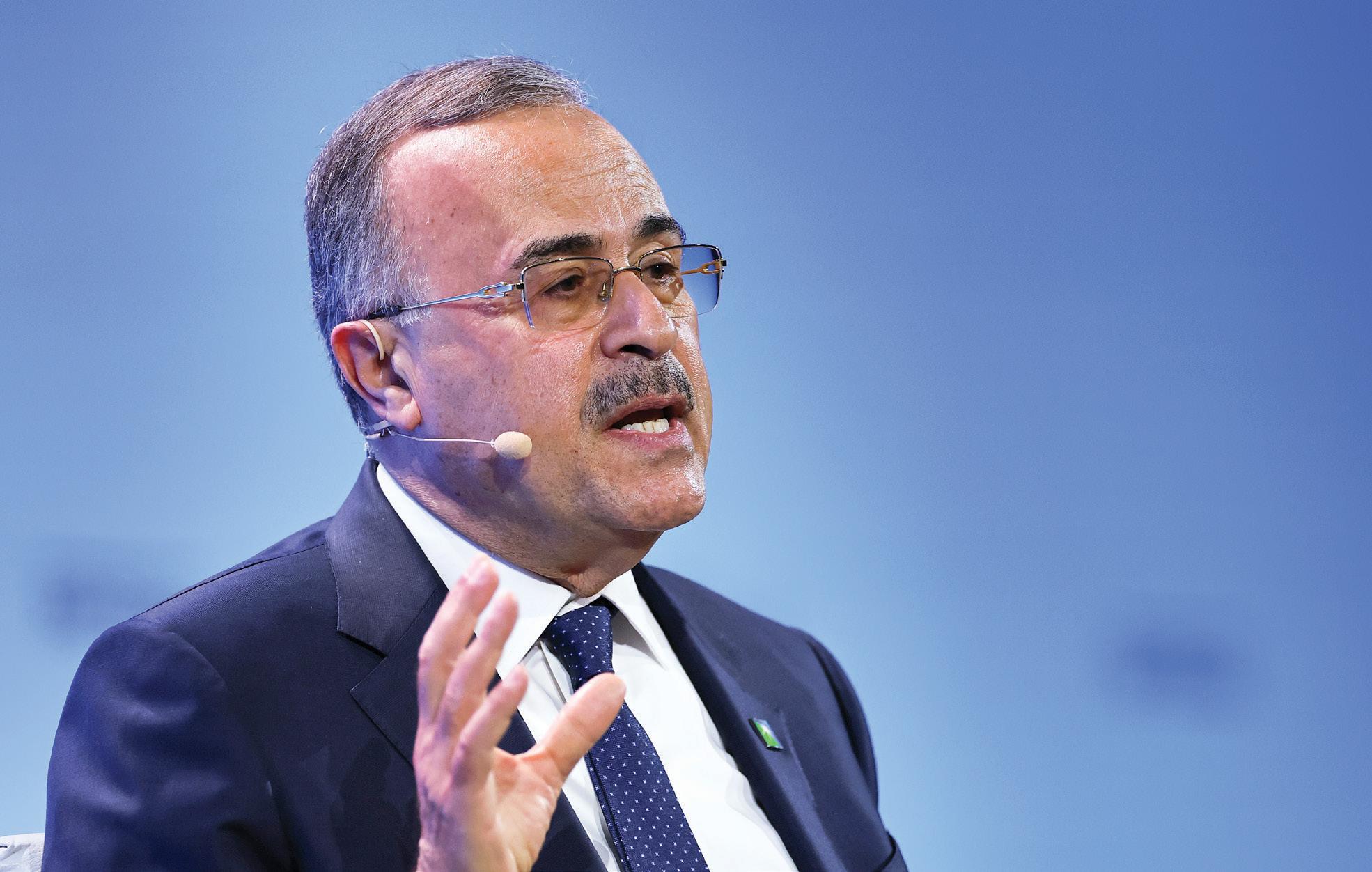
Amin Nasser leads Aramco, the world’s largest integrated energy and chemicals company, and the single biggest supplier of crude oil to global markets. With nearly 40 years at the Saudi Arabian giant, Nasser has steered the company through a major transformation, expanding beyond its upstream dominance into downstream, chemicals, and cutting-edge clean energy technologies.
As senior vice president of Upstream before becoming CEO, Nasser oversaw Aramco’s largest capital investment programme in its integrated oil and gas portfolio. Today, under his leadership, Aramco continues to strengthen its global position with major investments and joint ventures both inside Saudi Arabia and in international markets, while maintaining one of the strongest balance sheets in the global energy sector.
Earlier this year, Aramco successfully raised $5bn through a three-tranche bond issuance that attracted strong institutional demand. The offering included $1.5bn in 2030 notes at 4.75 per cent, $1.25bn in 2035 notes at 5.375 per cent,
AMIN
ARAMCO’S
and $2.25bn in 2055 notes at 6.375 per cent, with pricing reflecting Aramco’s robust long-term credit profile.
Nasser is also spearheading Aramco’s push into renewables and cleaner energy solutions. In a world-first, Aramco recently commissioned a megawatt-scale IronVanadium (Fe/V) flow battery system at its Wa’ad Al-Shamal gas operations in western Saudi Arabia. The breakthrough renewable energy storage solution — jointly developed with Rongke Power — offers flexible, cost-effective power for remote industrial applications. The project supports Aramco’s net-zero ambition for its wholly-owned operated assets by 2050.
Beyond corporate strategy, Nasser champions youth development through initiatives like Aramco’s Young Leader’s Advisory Board, and supports Saudi SMEs via localised supply chain programmes. His international influence extends across the World Economic Forum’s International Business Council, MIT Presidential CEO Advisory Board, JP Morgan International Council, and BlackRock’s Board of Directors.
Nasser holds a bachelor’s degree in petroleum engineering from King Fahd University of Petroleum and Minerals. During his career, he has earned several top global recognitions, including the Society of Petroleum Engineers’ Lifetime Achievement Award, the ICIS Kavaler Award, and Energy Intelligence’s Energy Executive of the Year.
EARLIER THIS YEAR, Aramco successfully raised $5bn through a three-tranche bond issuance that attracted strong institutional demand. The offering included $1.5bn in 2030 notes at 4.75 per cent, $1.25bn in 2035 notes at 5.375 per cent, and $2.25bn in 2055 notes at 6.375 per cent.
FROM A RIYADH STARTUP TO A MENAT FINTECH LEADER, LIKECARD THRIVES ON DISCIPLINED GROWTH, REGIONAL REACH, AND RISING GLOBAL AMBITION
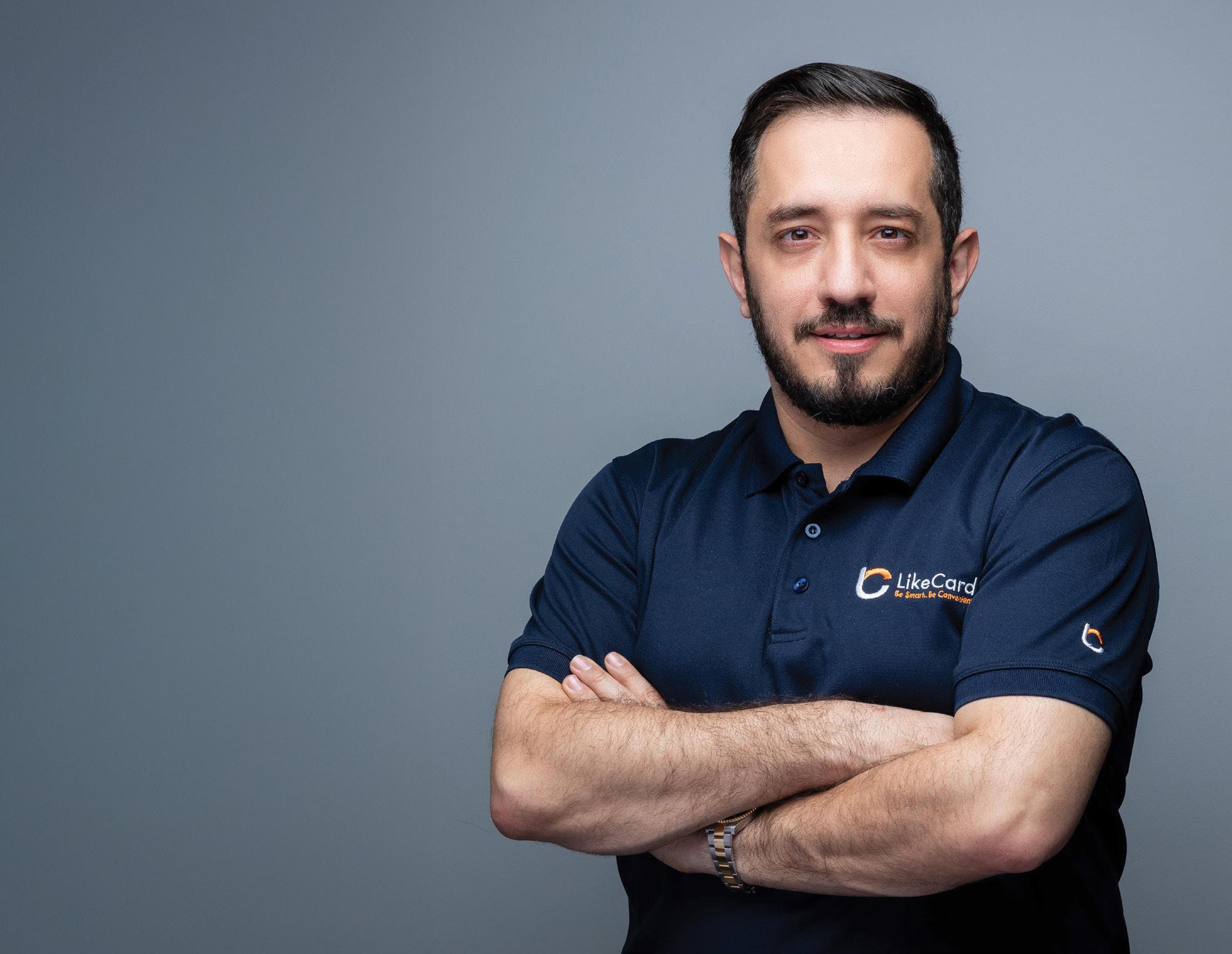
Launched in 2015 with only a handful of riyals in Riyadh, LikeCard set out to bridge the gap between consumers and paid digital services. Today, it stands as the region’s largest prepaid- and digital-voucher platform, processing more than 13 million transactions a year and serving over five million users. Headquartered in Dubai — with offices in Saudi Arabia, Oman, Bahrain, Jordan, Egypt, Turkey, and Kuwait — the company averages 80,000 purchase orders daily and partners with over 400 regional and international brands.
Guiding this ascent is Ammar Alsoos, LikeCard’s co-founder and CEO, who has steered the company from a self-funded start-up to a dominant digital-commerce force — without a single round of venture capital. Relying almost exclusively on local talent, he credits a loyal
team — many of whom have been on the journey for the full 10 years —for “building something truly great for the region”.
The company’s commitment underpins a disciplined strategy of strong cash-flow management, laser-sharp product-market fit, and carefully paced expansion. LikeCard recorded about 20 per cent revenue growth in 2024 and is on track for 25 per cent in 2025, proof of a resilient model and growing consumer loyalty. A pivotal milestone came in 2025 with the launch in Turkey — its first non-Arab market —showcasing the platform’s adaptability and global potential.
By marrying a home-grown workforce with cross-border ambition, Alsoos keeps LikeCard at the forefront of regional fintech and positions it for its next chapter of innovation and growth.
HEADQUARTERED IN DUBAI — with offices in Saudi Arabia, Oman, Bahrain, Jordan, Egypt, Turkey, and Kuwait — LikeCard averages 80,000 purchase orders daily and partners with over 400 regional and international brands.
FROM AI-READY DATA CENTRES TO SUBSEA CABLES, OOREDOO IS EYEING THE FUTURE OF CONNECTIVITY WITH AZIZ ALUTHMAN FAKHROO AT THE HELM
Aziz Aluthman Fakhroo has led Qatari-headquartered Ooredoo Group as group CEO since November 2020, steering one of the Middle East’s most geographically diverse telecom and digital infrastructure players. Ooredoo operates across Qatar, Kuwait, Oman, Iraq, Algeria, Tunisia, Palestine, the Maldives and Indonesia, serving 147.4 million customers including its joint venture Indosat Ooredoo Hutchison. His leadership builds on extensive experience in sovereign wealth, finance and global M&A. Prior to his appointment, he served as Deputy Undersecretary for Budget, Treasury and Financial Affairs at Qatar’s Ministry of Finance, and previously co-headed mergers and acquisitions at Qatar Investment Authority.
Under Fakhroo’s stewardship, Ooredoo has delivered consistent financial performance while accelerating its pivot into next-generation infrastructure. In Q1 2025, Ooredoo posted a net profit of QAR 960m, up 5 per cent year-on-year, with revenues holding steady at QAR 5.8bn and EBITDA at QAR 2.5bn, maintaining a 43 per cent EBITDA margin. Kuwait, Algeria and Iraq contributed notably to growth.
A key milestone under his leadership this year has been the launch of Syntys, a fully independent, carrierneutral data centre company spun off from Ooredoo after two years of strategic planning. Backed by $1bn
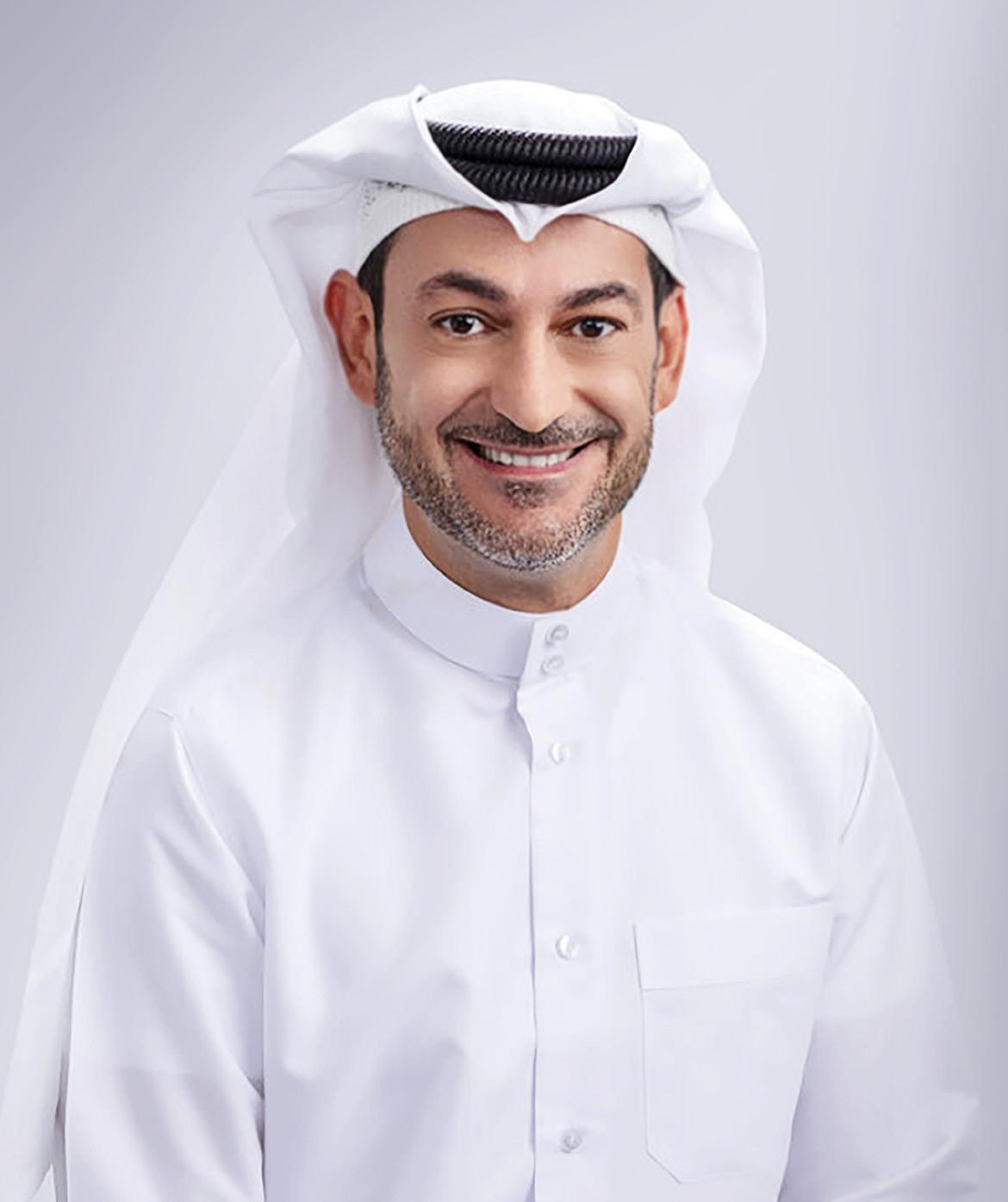
in investment and QR2bn in financing, Syntys now controls 60 per cent of installed capacity regionally and is targeting 120MW. With US enterprise information management services firm Iron Mountain as a strategic investor, Syntys aims to serve hyperscalers and enterprises amid booming demand for AI and cloud infrastructure.
Beyond data centres, Ooredoo is building the Gulf’s largest subsea cable system linking Qatar, Kuwait, Oman, Saudi Arabia, UAE, Bahrain and Iraq. The Fibre in the Gulf project will boost Asia-Europe data traffic as Ooredoo deepens its role in global connectivity.
Fakhroo also plays an active role across Qatar’s broader economic and cultural sectors. He sits on the boards of Accor SA, Katara Hospitality, Qatar Museums and Indosat. He holds a bachelor’s degree in business administration from ESLSCA University.
IN Q1 2025, Ooredoo posted a net profit of QAR 960m, up 5 per cent year-on-year, with revenues holding steady at QAR 5.8bn and EBITDA at QAR 2.5bn, maintaining a 43 per cent EBITDA margin. Kuwait, Algeria and Iraq contributed notably to growth.
UNDER BADR MOHAMMED AL-MEER, QATAR AIRWAYS GROUP HAS DELIVERED ITS STRONGEST RESULTS SO FAR
Badr Mohammed Al-Meer took the helm of Qatar Airways Group as group CEO in November 2023, assuming leadership of one of the world’s most awarded and financially successful airline groups.
His appointment reflects both Qatar’s long-term leadership planning and AlMeer’s track record delivering complex, multi-billion-dollar aviation, infrastructure, and real estate projects over more than two decades.

Before his elevation to group CEO, Al-Meer served as chief operating officer of Hamad International Airport (HIA) from 2014, overseeing the successful expansion of the airport to a capacity of 65 million passengers annually. He also led critical divisions under Qatar Airways Group, including MATAR, Qatar Duty Free, Qatar Aviation Services, Qatar Aircraft Catering Company, Dhiafatina, and real estate operations. Under his leadership, HIA was repeatedly named the world’s best airport, including during the FIFA World Cup 2022 and the Covid-19 period.
FOR THE 2024-25 FISCAL YEAR, GROUP PROFITS SURGED 28 PER CENT TO QAR 7.85BN ($2.15BN). THE CARGO DIVISION, RECOGNISED AS THE WORLD’S LEADING AIR FREIGHT CARRIER, POSTED A 17 PER CENT RISE IN REVENUE, SUPPORTED BY DIGITALISATION AND DATA- DRIVEN OPTIMISATION.
In his first full financial year as group CEO, Al-Meer has delivered Qatar Airways Group’s strongest results in its history. For the 2024/25 fiscal year, group profits surged 28 per cent to QAR 7.85bn ($2.15bn). The cargo division, recognised as the world’s leading air freight carrier, posted a 17 per cent rise in revenue, supported by digitalisation and data-driven optimisation. Qatar Airways continues to operate with a global workforce exceeding 55,000.
Al-Meer has introduced the airline’s renewed ‘Qatar Airways 2.0’ strategy, emphasising innovation, partnerships, and operational agility. Key milestones include securing a 25 per cent stake in Virgin Australia, acquiring 25 per cent of South Africa’s Airlink, and expanding its aircraft orders to sustain one of the world’s youngest fleets. Qatar Airways has also become the first global airline to equip its Boeing 777 fleet with Starlink super-fast WiFi, integrating live sports streaming in partnership with IMG’s Sport 24.
Earlier this year, Qatar Airways retained its Skytrax ‘World’s Best Airline’ title for a record ninth time, along with awards for ‘World’s Best Business Class’, ‘Best Airline in the Middle East’, and ‘Best Business Class Airline Lounge’.
A civil engineer by training, Al-Meer holds engineering degrees from the American University of Beirut and the University of Colorado.
DRIVING SIGNIFICANT TRANSFORMATION, EASA AL GURG HAS INSTILLED A BOLD VISION AND AN INNOVATIVE, FORWARD-THINKING APPROACH INTO THE COMPANY
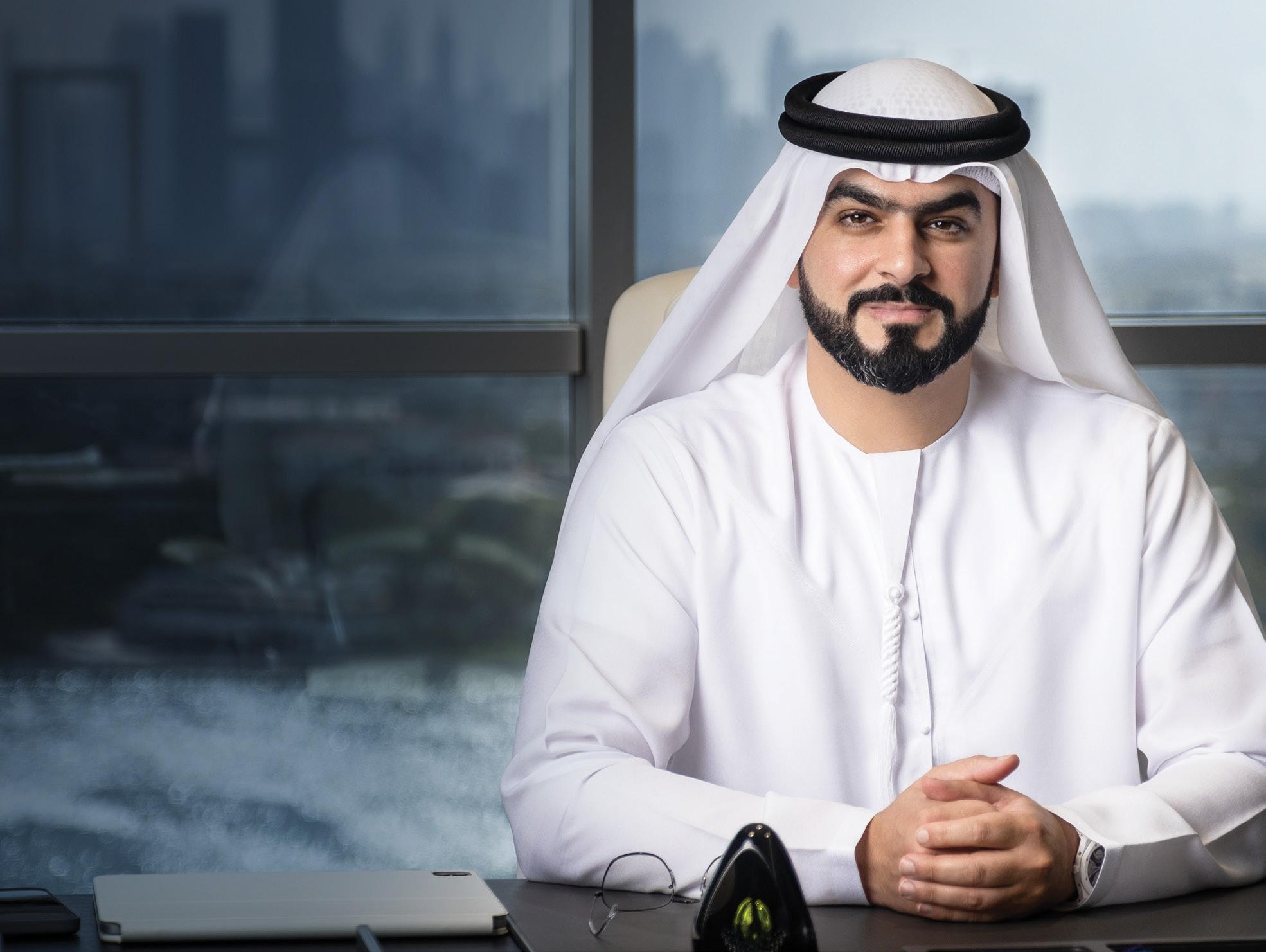
Easa Al Gurg is a respected figure in the UAE’s business landscape, widely recognised for his dynamic leadership as the group CEO of Easa Saleh Al Gurg Group (ESAG). Assuming this pivotal role in May 2021, Al Gurg has been instrumental in steering one of the region’s oldest and most respected family businesses towards continued growth and modernisation, building upon a legacy established by his grandfather, the late Easa Saleh Al Gurg.
Al Gurg’s vision for ESAG prioritises expansion into new business sectors and markets, fostering innovation in customer engagement, promoting employee ownership, and enhancing market adaptability. This forward-thinking approach reflects a deep understanding of evolving global business dynamics and a commitment to sustaining ESAG’s relevance and competitiveness.
His journey within ESAG began in August 2010 as the general manager of Scientechnic, the group’s flagship engineering entity. This foundational experience provided him with comprehensive insight into the conglomerate’s diverse operations, from which he ascended to lead the entire group. This hands-on approach and understanding of various business components underscore his leadership philosophy, which advocates for continuous learning and adaptation.
Al Gurg extends his influence across the UAE’s economic landscape, holding board positions with the Dubai Chamber of Commerce and the National Bank of Fujairah (NBF). He also contributes to philanthropy as a board member of the Al Gurg Charity Foundation. Key to his leadership is empowering future leaders and fostering employee ownership within ESAG for enduring success.
EASA AL GURG EXTENDS his influence across the UAE’s economic landscape, holding board positions with the Dubai Chamber of Commerce and the National Bank of Fujairah (NBF). He also contributes to philanthropy as a board member of the Al Gurg Charity Foundation.
Elda Choucair stands out as a trailblazer in the MENA media industry. Appointed CEO of Omnicom Media Group (OMG) in 2021, she is the first — and so far, only — woman to lead a major media agency group in the region. With nearly two decades at OMG, Elda has risen through the ranks with a career marked by resilience, foresight, and transformation.
Choucair’s journey began at OMD UAE as group account director and evolved through a series of leadership roles, including GM, MD, and CEO at PHD MENA, before stepping into the group COO position in 2019.
Under her leadership, OMG has sharpened its edge in technology, data, and analytics, gearing up its agencies to meet future demands. In just four years, Choucair has overseen the regional rollout of transformative offerings such as TRKKN (Google marketing consultancy), Flywheel (a leading digital commerce platform), and CREO (a data-driven influencer marketing solution).
Her efforts continue to expand the group’s capabilities, ensuring clients can navigate the complexities of an evolving marketing landscape.
Beyond business transformation, Choucair is a strong advocate for youth empowerment and inclusivity. She spearheaded OMG’s apprenticeship programmes in Dubai and Saudi Arabia, helping nurture the next generation of talent in the region. Her leadership has translated into consistent new business
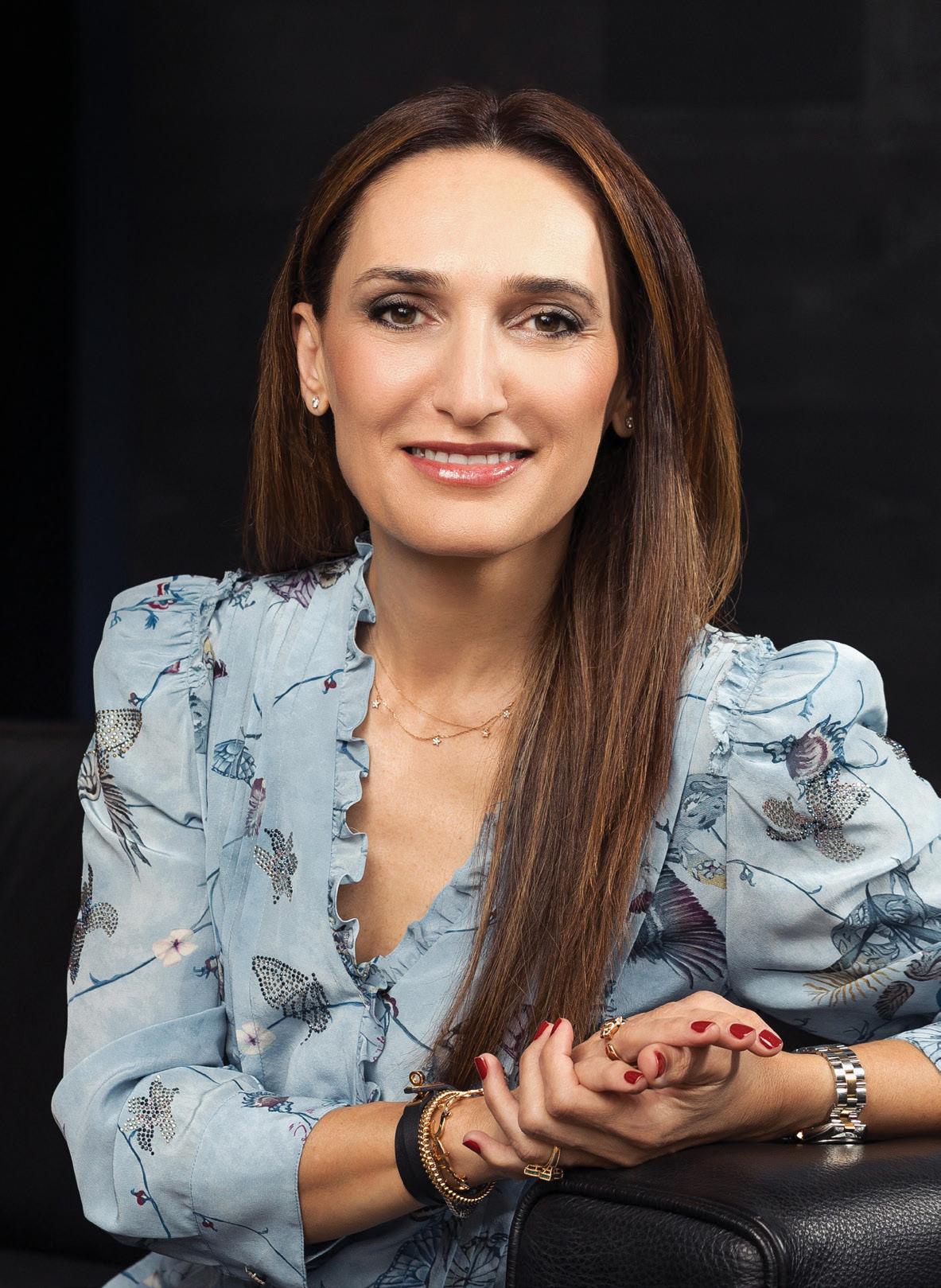
wins and industry accolades for the group. Personally, Choucair’s influence is widely recognised. She has been featured in many top CEO lists, including Campaign Middle East Power List among others. A respected industry voice, she serves on numerous boards including IAB MENA, the Unstereotype Alliance, the Middle East Inclusion & Diversity Council, and Endeavor. She also holds the vice chair position at the Advertisers’ Business Group.
Choucair’s leadership style mirrors her passion for mountaineering — disciplined, ambitious, and purpose-driven. Whether she’s guiding teams through organisational change or scaling actual peaks in OMG’s charity expeditions, she continues to lead by example, inspiring those around her to reach their goals.
UNDER ELDA CHOUCAIR’S leadership, OMG has sharpened its edge in technology, data, and analytics, gearing up its agencies to meet future demands.
ELENA SORLINI IS STEERING THE COMPANY INTO A NEW ERA OF GLOBAL AVIATION GROWTH, INFRASTRUCTURE EXPANSION, AND PASSENGER-FOCUSED INNOVATION
Elena Sorlini had been officially appointed as the managing director and CEO of Abu Dhabi Airports in February 2024, following her interim leadership of the organisation since June 2023. The appointment marked a new chapter for the company, which operates all five of the emirate’s commercial airports. With more than two decades of international experience in the aviation industry, Sorlini has held senior executive roles across Europe and the Middle East. Her previous positions include vice president at Macquarie Airports, where she managed assets in Rome and Copenhagen, as well as director of strategy at Copenhagen
ELENA SORLINI’S APPOINTMENT FOLLOWS A PERIOD OF STRONG PERFORMANCE BY ABU DHABI AIRPORTS. IN 2024, THE COMPANY REPORTED 29.4 MILLION PASSENGERS ACROSS ITS AIRPORTS—A 28.1 PER CENT INCREASE COMPARED TO 22.9 MILLION IN 2023. THIS GROWTH WAS SUPPORTED BY AN EXPANDED AIRLINE NETWORK, ENHANCED AIRPORT INFRASTRUCTURE, AND STRATEGIC PARTNERSHIPS.
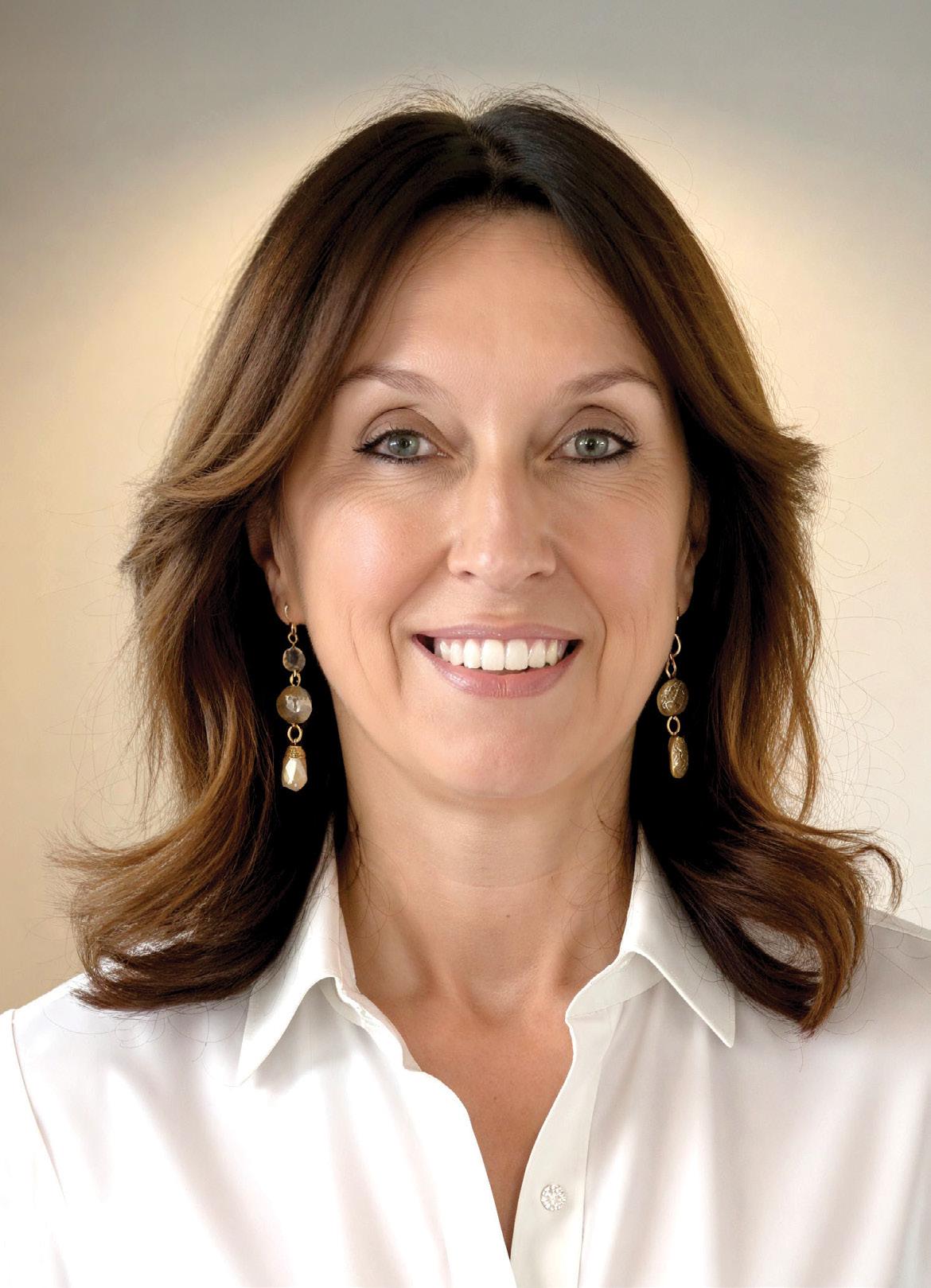
Airports and vice president of Strategic Planning at Oman Aviation Group. She also served as executive director of Transport & Logistics at ADQ.
In addition to her leadership at Abu Dhabi Airports, Sorlini serves on the boards of Etihad Airways, Abu Dhabi Aviation, and ADQ Aviation and Aerospace Services.
Her appointment follows a period of strong performance by Abu Dhabi Airports. In 2024, the company reported 29.4 million passengers across its airports — a 28.1 per cent increase compared to 22.9 million in 2023. This growth was supported by an expanded airline network, enhanced airport infrastructure, and strategic partnerships aimed at elevating the passenger experience.
A major milestone under her tenure was the successful launch of Terminal A at Abu Dhabi International Airport. The new terminal, one of the largest in the world, has the capacity to handle up to 45 million passengers annually and accommodate 79 aircraft at once, reinforcing the emirate’s status as a key global aviation hub.
Zayed International Airport was a key driver of this growth, expanding its network to over 125 destinations and adding 29 new routes in 2024. Eight new airlines, including British Airways, Air France, Flynas, and Hainan Airlines, began operations at AUH. Aircraft movements across all five airports also rose by 10 per cent, from 226,362 in 2023 to 249,747 in 2024.
VIRTUGROUP HAS GROWN INTO ONE OF THE UAE’S MOST DYNAMIC CORPORATE SERVICES PROVIDERS, NOW BACKED BY SINGAPORE’S ASCENTIUM AND SUPPORTING OVER 80,000 BUSINESSES
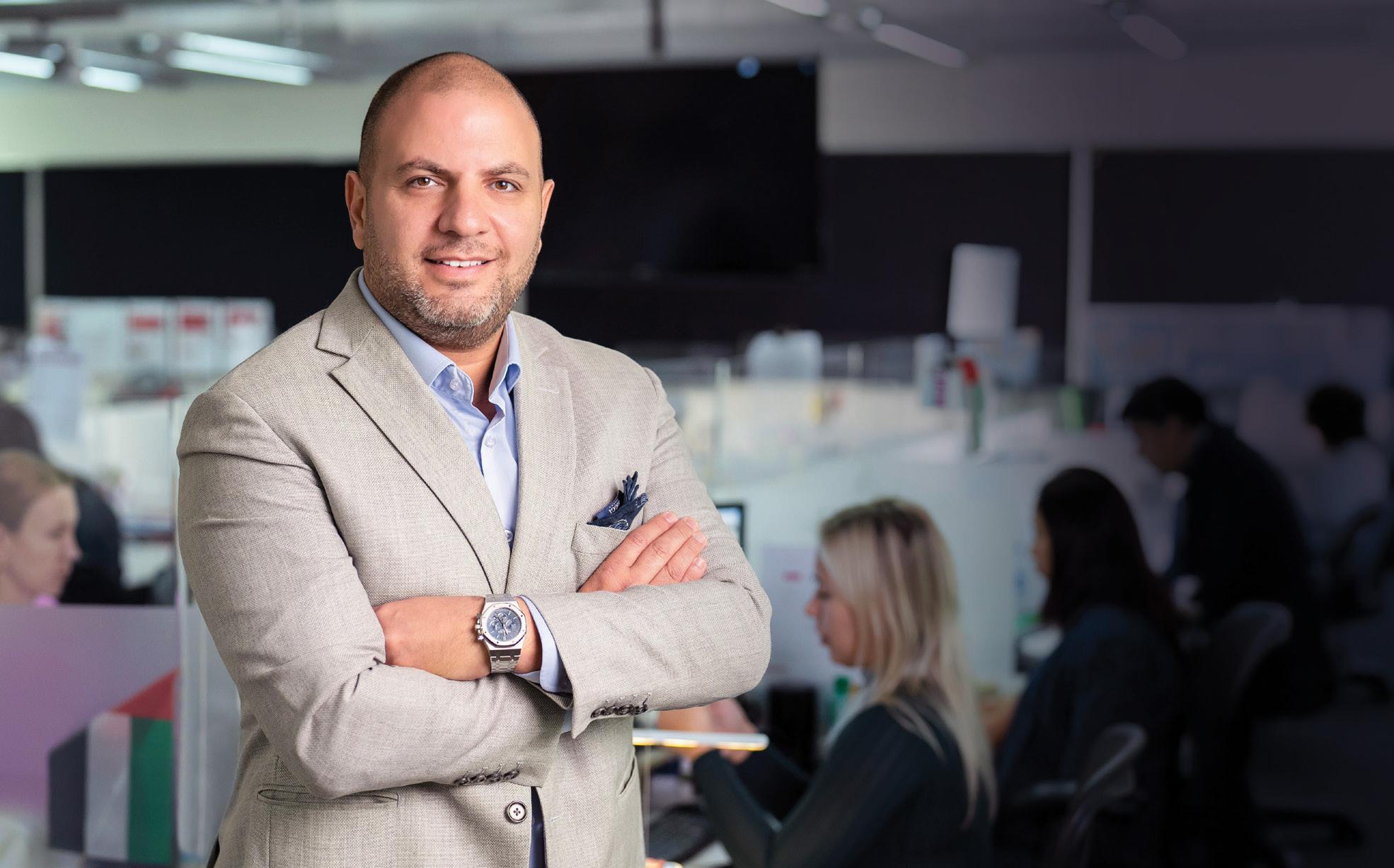
George Hojeige is the group CEO of Virtugroup, which was acquired by Singaporebased Ascentium Group earlier this year.
The company includes leading UAE-based brands such as Virtuzone, Next Generation Equity, Express PRO, Taxready.ae, and MAKTABI.
Together, these entities focus on a broad suite of services across business setup, corporate advisory, accounting, taxation, and citizenship-by-investment space; thereby positioning Virtugroup as one of the most comprehensive service providers in the region’s SME ecosystem.
Hojeige leads the group’s overall strategy and operations, with a focus on driving regional expansion, boosting digitisation, increasing customer lifetime value, and enhancing the client experience. He is also responsible for maintaining the group’s status as the region’s fastest-growing business setup and corporate services provider, and one of the pioneers in integrating citizenship solutions into business services.
His career began in Canada as a process optimisation engineer in the
telecoms industry, before he moved into sales leadership at Savaria Corporation, a global manufacturer of accessibility equipment.
In 2004, he relocated to the Gulf to lead his family’s electromechanical contracting business, contributing to major developments including Burj Khalifa, Dubai Airport, and Ferrari World Abu Dhabi.
He later joined ITP Media Group, where he led commercial teams across key business and lifestyle publications, building strong relationships with global business leaders and deepening his understanding of the region’s corporate landscape.
Born in Beirut and raised in Canada following his family’s emigration in the 1980s, Hojeige is fluent in Arabic, English, French and Spanish. He holds a bachelor’s degree in industrial engineering from École Polytechnique de Montréal, a graduate diploma in international business from McGill University, and executive certificates from Harvard Business School and The Wharton School.
Under his leadership, Virtugroup has helped set up and scale over 80,000 SMEs in the UAE. Embracing a tech-centric strategy, Virtuzone has pioneered AI-assisted tools such as ChatVZ, the world’s first business setup AI chatbot, and TaxGPT, the first AI-powered UAE corporate tax assistant.
He has additionally established an in-house AI and tech committee tasked with implementing cutting-edge technologies in artificial intelligence, blockchain, process automation and digital transformation.
GEORGE HOJEIGE LEADS the group’s overall strategy and operations, with a focus on driving regional expansion, boosting digitisation, increasing customer lifetime value, and enhancing the client experience.
AS THE UAE’S MOST PROMINENT FEMALE BANKING LEADER, HANA AL ROSTAMANI IS NAVIGATING FIRST ABU DHABI BANK THROUGH DIGITAL TRANSFORMATION, SUSTAINABILITY AND STRONG EARNINGS

Since becoming FAB’s first female CEO in January 2021, Al Rostamani has led the bank through strategic transformation, digital acceleration, and record-breaking growth.
In Q1 2025, FAB reported standout financials: operating income reached Dhs8.81bnn (up 11 per cent YoY), profit before tax climbed to Dhs6.13bn (up 22 per cent YoY), and net profit grew 23 per cent to Dhs5.13bn.
The bank’s total assets crossed Dhs1.3tn for the first time, supported by strong non-interest income, resilient fee-based businesses, and expanding international operations.
This followed FAB’s FY2024 results, which saw net profit grow to Dhs17.1bn and total revenue reach Dhs31.6bn — driven by robust performance across
core and global markets. Under Al Rostamani’s leadership, FAB continues to evolve as a forward-looking institution, balancing shareholder value with ESG goals, and navigating macroeconomic challenges such as the implementation of the UAE’s new corporate tax. She is widely credited for reinforcing a digitalfirst, customer-centric culture at FAB, particularly during her previous role as deputy GCEO and head of Personal Banking. With more than 25 years in financial services, her experience spans leadership roles at Citibank, First Gulf Bank, and the AW Rostamani Group. Al Rostamani holds a master’s degree in information management and a bachelor’s degree in business administration from George Washington University.
Beyond banking, Al Rostamani is a strong advocate for sustainability, innovation, and inclusion. She is a board member of the Arab Monetary Fund’s Buna payment platform, IMD and the Institute of International Finance (IIF). She also serves as the chair of the Principals Group of the Net-Zero Banking Alliance.
Al Rostamani’s rise marks a significant milestone for women in finance in the Middle East. She remains committed to transforming FAB into a globally competitive, digitally advanced, and socially responsible bank — anchored in the UAE but built for the world.
UNDER HANA AL ROSTAMANI’S LEADERSHIP, FAB CONTINUES TO EVOLVE AS A FORWARDLOOKING INSTITUTION, BALANCING SHAREHOLDER VALUE WITH ESG GOALS, AND NAVIGATING MACROECONOMIC CHALLENGES SUCH AS THE IMPLEMENTATION OF THE
UAE’ S NEW CORPORATE TAX. SHE IS WIDELY CREDITED FOR REINFORCING A DIGITAL-FIRST, CUSTOMER-CENTRIC CULTURE AT FAB, PARTICULARLY DURING HER PREVIOUS ROLE AS DEPUTY GCEO AND HEAD OF PERSONAL BANKING.
HATEM DOWIDAR HAS LED E&’S AMBITIOUS EVOLUTION FROM A TRADITIONAL TELECOM OPERATOR TO THE MIDDLE EAST AND AFRICA’S MOST VALUABLE TECHNOLOGY BRAND
Hatem Dowidar joined e& in September 2015, initially serving as group COO. He was appointed CEO - International in March 2016, and in May 2020, he became the group’s CEO.
Ever since he took the company’s helm, Dowidar was the architect for the group’s transformation from a traditional telco to a technology group. He has spearheaded several groundbreaking strategic programmes that propelled the company’s business growth to new heights across the 38 markets where it now operates. As the company transformed into a global technology group in February 2022, and despite the ever-changing business landscape, his astute brand stewardship has been the foundation for enhancing e&’s brand equity, enhancing employee experience, and adding value to stakeholders.
Today, e& is the ‘Fastest Growing Technology Brand’ and the most valuable brand portfolio in the Middle East and Africa (Brand Finance Global 500 report), standing tall in global rankings. Dowidar also has been recognised by Brand Finance as the number one ranked telecom leader globally on the Brand Guardianship Index 2024. e& also attained the highest position in Brand Finance’s inaugural Employer Brand Report 2024, with its UAE entity ranking as the ‘Top Global Telecoms Employer’. A highly skilled strategist and visionary, Dowidar has been instrumental in ushering in a new phase of strategic partnerships and key collaborations with global industry leaders that will digitally empower societies.
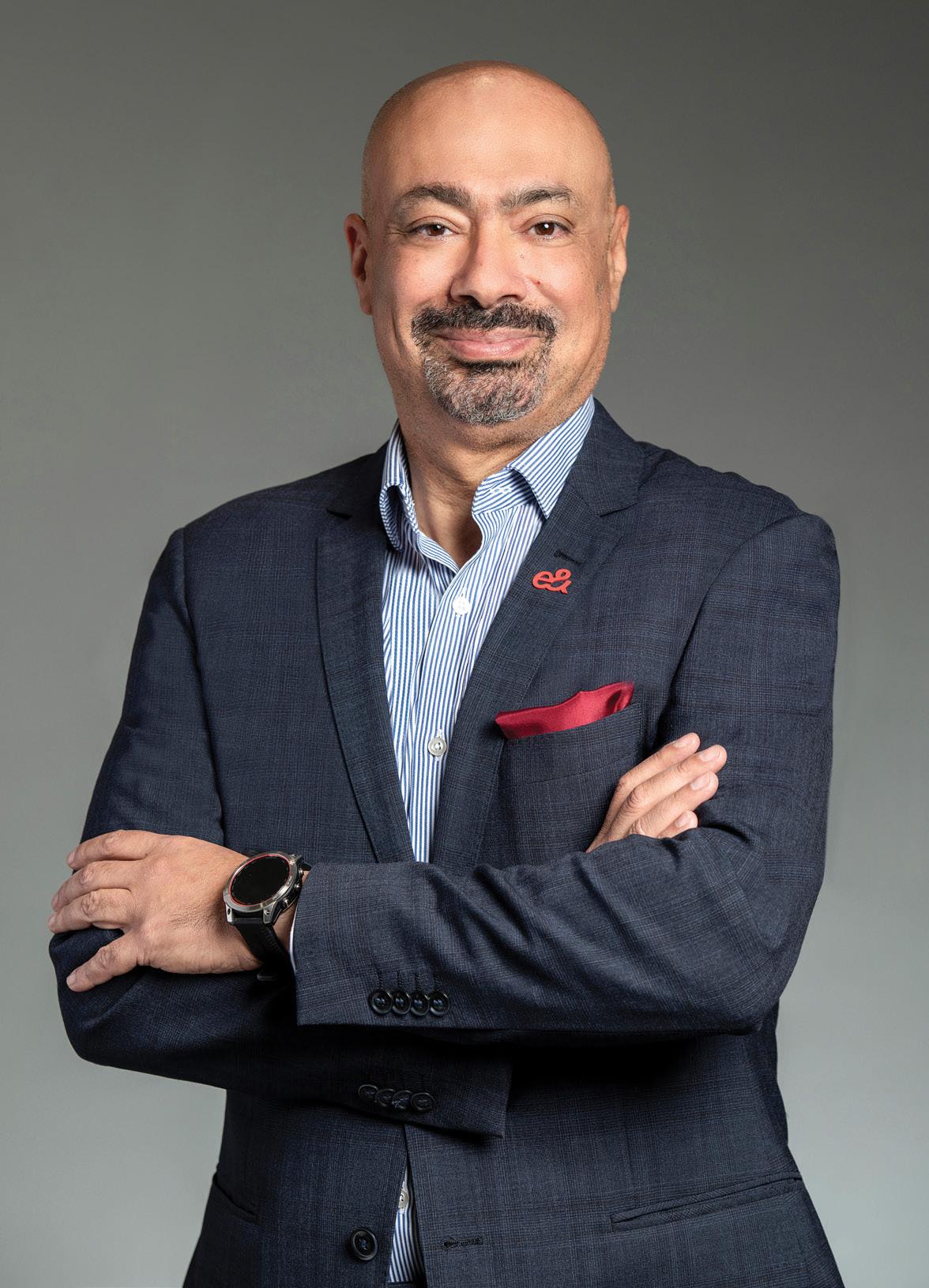
GROUP CEO | e&
Prior to joining the group, Dowidar was the group chief of staff for Vodafone Group based in London. He brings more than 30 years of experience in multinational companies and more than 25 years of these within the telecommunications industry across various leadership positions.
He is currently a board member of Vodafone Group, Etihad Etisalat Company (Mobily), Maroc Telecom, and Etisalat Misr (Etisalat Egypt).
On a global industry level, Dowidar is a member of the GSMA and the United Nations Internet Governance Forum (IGF) leadership panel.
Previously, Dowidar served as a board member for Hutch Lanka, Etisalat Nigeria, Attijariwafa Bank Egypt, Barclays Bank Egypt and Vodacom Africa, Vodafone Egypt and Malta, and ElSweedy Electrometers.
HATEM DOWIDAR HAS SPEARHEADED strategic programmes that propelled the company’s business growth to new heights across the 38 markets where it now operates.
WITH FOUR DECADES AT NBK, ISAM AL SAGER IS SHAPING THE BANK’S CROSS-BORDER AMBITIONS AND GREEN FINANCE STRATEGY
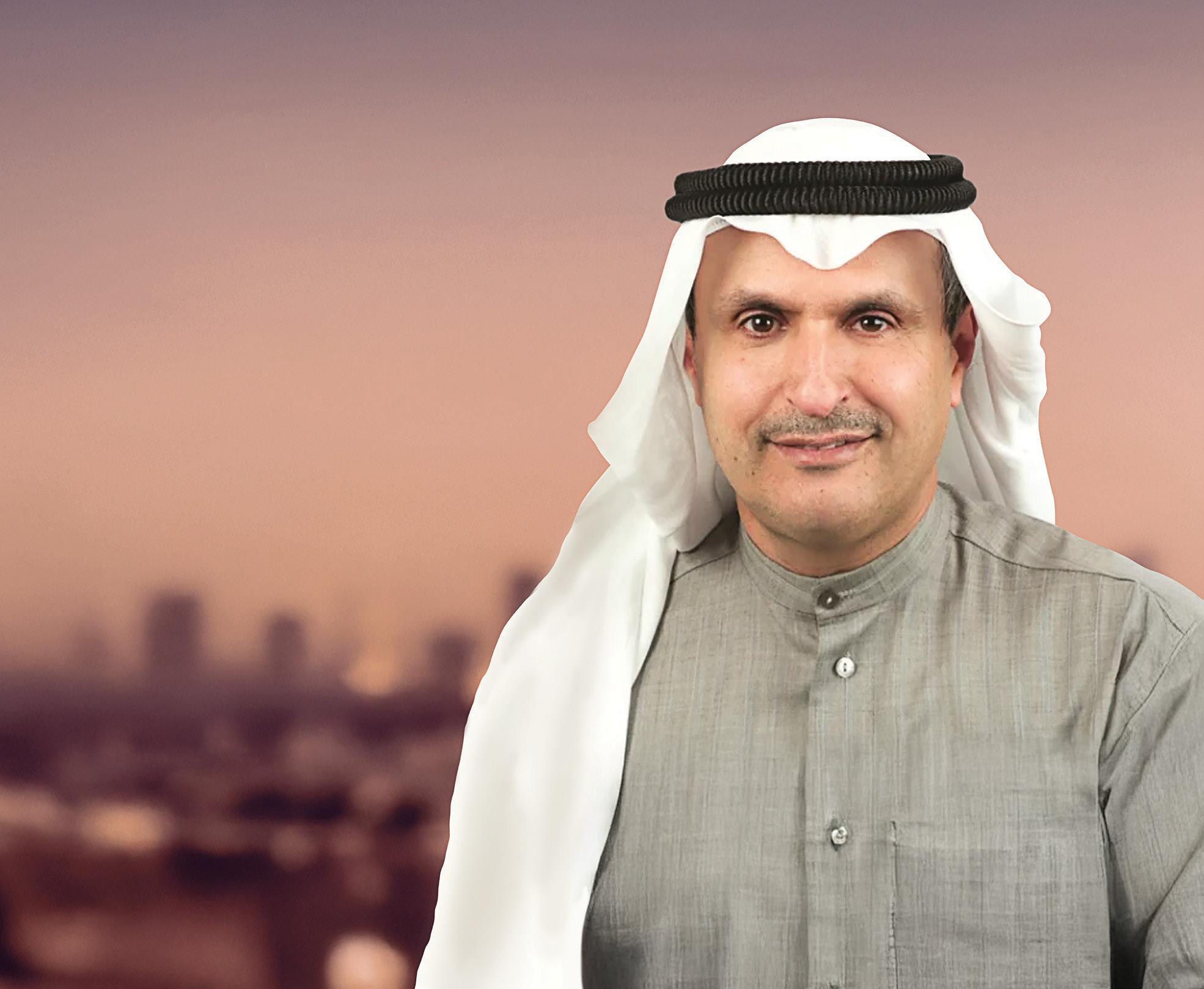
Alifelong NBK veteran, Issam Jassim AlSager rose from joining the bank in 1978 to group CEO in 2014 and executive vice chairman in 2022 during a 45-year tenure.
Under his leadership, NBK operates a banking network of 72 domestic and 54 foreign branches, over 8,000 employees, and $122bn in assets, delivering KWD500m net profit in full-year 2023. In mid-2024, NBK issued its inaugural $500m green bond under his stewardship.
In Q1 2025, NBK reported net operating income of KWD310.7m (a rise of 0.6 per cent YoY) and net profit of KWD134.1m ($435m), reflecting an 8.5 per cent YoY decline — partly due to new domestic minimum tax implementation. With AlSager focused on maintaining the bank’s resilience: NBK
continues to seize opportunities across international banking and its Islamic banking arm, Boubyan Bank.
AlSager maintains board chairmanships at NBK Egypt and Watani Investment Company.
AlSager blends deep institutional knowledge, strategic market expansion, sustainability innovation, and disciplined financial management, ensuring NBK is poised to navigate evolving economic tides and regional transformation.
AlSager holds a bachelor of science degree in business administration from California State Polytechnic University.
UNDER ISSAM JASSIM ALSAGER, NBK operates a banking network of 72 domestic and 54 foreign branches, over 8,000 employees, and $122bn in assets, delivering KWD500m net profit in full-year 2023. In mid-2024, NBK issued its inaugural $500m green bond under his stewardship.
John Pagano, CEO of Red Sea Global (RSG), is steering Saudi Arabia’s premier regenerative tourism developer toward a new era of sustainability and innovation.
RSG, a vertically integrated real estate company, is responsible for major developments along Saudi Arabia’s Red Sea coast, including flagship destinations The Red Sea and AMAALA.
Pagano brings over 35 years of global experience in the commercial property sector, with a career spanning Europe, North America, and the Caribbean. His expertise covers the entire real estate value chain: master planning, project structuring, financing, construction, and asset management.
Before taking the helm at RSG, Pagano led Old Fort Capital Investments, a firm providing strategic advice to landowners, investors, and developers on large-scale real estate projects. He previously spent more than two decades at London’s Canary Wharf, holding several senior executive roles. He also served as president of Baha Mar Development Company in the Bahamas, where he oversaw the $3.6bn development featuring four hotels, a convention center, and a championship golf course.
Pagano holds a bachelor of applied science in mechanical engineering from the University of Toronto.
Under his leadership, RSG has launched several groundbreaking initiatives. In February, the company announced a pioneering agreement to introduce sustainable aviation fuel (SAF) to Saudi Arabia for the first time. The deal, in partnership with daa International and fuel supplier APSCO, allows airlines operating at Red Sea International Airport (RSI) to refuel

using a blend of 35 per cent SAF and 65 per cent conventional Jet A1 fuel — reducing carbon emissions from participating aircraft by up to 35 per cent.
SAF and Lower-Carbon Aviation Fuel (LCAF) are at the forefront of international efforts to decarbonise aviation, supported by ICAO and IATA guidelines.
RSG, a company owned by the Public Investment Fund (PIF), is a cornerstone of Saudi Arabia’s economic diversification efforts. Through its growing portfolio of destinations and subsidiaries, the company champions responsible development that uplifts communities, drives economic growth, and protects the environment.
In April 2025, RSG unveiled its latest project: Laheq Island, a new residential island community at The Red Sea. Scheduled to open in 2028, Laheq marks the first expansion beyond Phase One of the destination, which welcomed its first guests in 2023 and now features five operational hotels and a fully functional airport.
Laheq represents RSG’s first residential-focused development at The Red Sea, combining private property ownership with luxury hospitality to bring island living to Saudi Arabia for the first time.
UNDER JOHN PAGANO, RSG has launched several groundbreaking initiatives. In February, the company announced a pioneering agreement to introduce sustainable aviation fuel (SAF) to Saudi Arabia for the first time.
FROM SOVEREIGN INVESTMENT TO SPORTS AND SCIENCE, KHALDOON AL MUBARAK’S ASTUTE LEADERSHIP IS RESHAPING INDUSTRIES AND SECTORS THROUGH MUBADALA
Khaldoon Al Mubarak, managing director and group CEO of Mubadala Investment Company, stands as one of the Middle East’s most prominent and globally engaged business leaders. He is also an influential UAE government policymaker and an accomplished international envoy.
Al Mubarak has played a central role in shaping Abu Dhabi’s economic and technological future. He has served on the Abu Dhabi Executive Council since 2006 and is a member of the Abu Dhabi Supreme Council for Financial and Economic Affairs.
In 2024 alone, he became a founding member of the Artificial Intelligence and Advanced Technology Council (AIATC), was appointed Vice Chair of the Mohammed bin Zayed Water Initiative, and continued to serve on the Abu Dhabi Advanced Technology Research Council. He also co-founded the US-UAE Business Council and the UAE-France Strategic Dialogue, and co-chairs the Abu Dhabi-Singapore Joint Forum.
Under Al Mubarak’s visionary leadership, Mubadala has evolved into a $302bn sovereign investment powerhouse, renowned for its innovative and disruptive investment strategy. Since the company’s inception in 2002, he has steered its growth — organically and through strategic acquisitions and mergers — delivering consistent, sustainable financial returns to its sole shareholder, the Government of Abu Dhabi.
Thanks to his strategic direction, Mubadala has built a global investment portfolio that spans over 50 countries across six international offices and focuses on industries shaping both national and global progress.
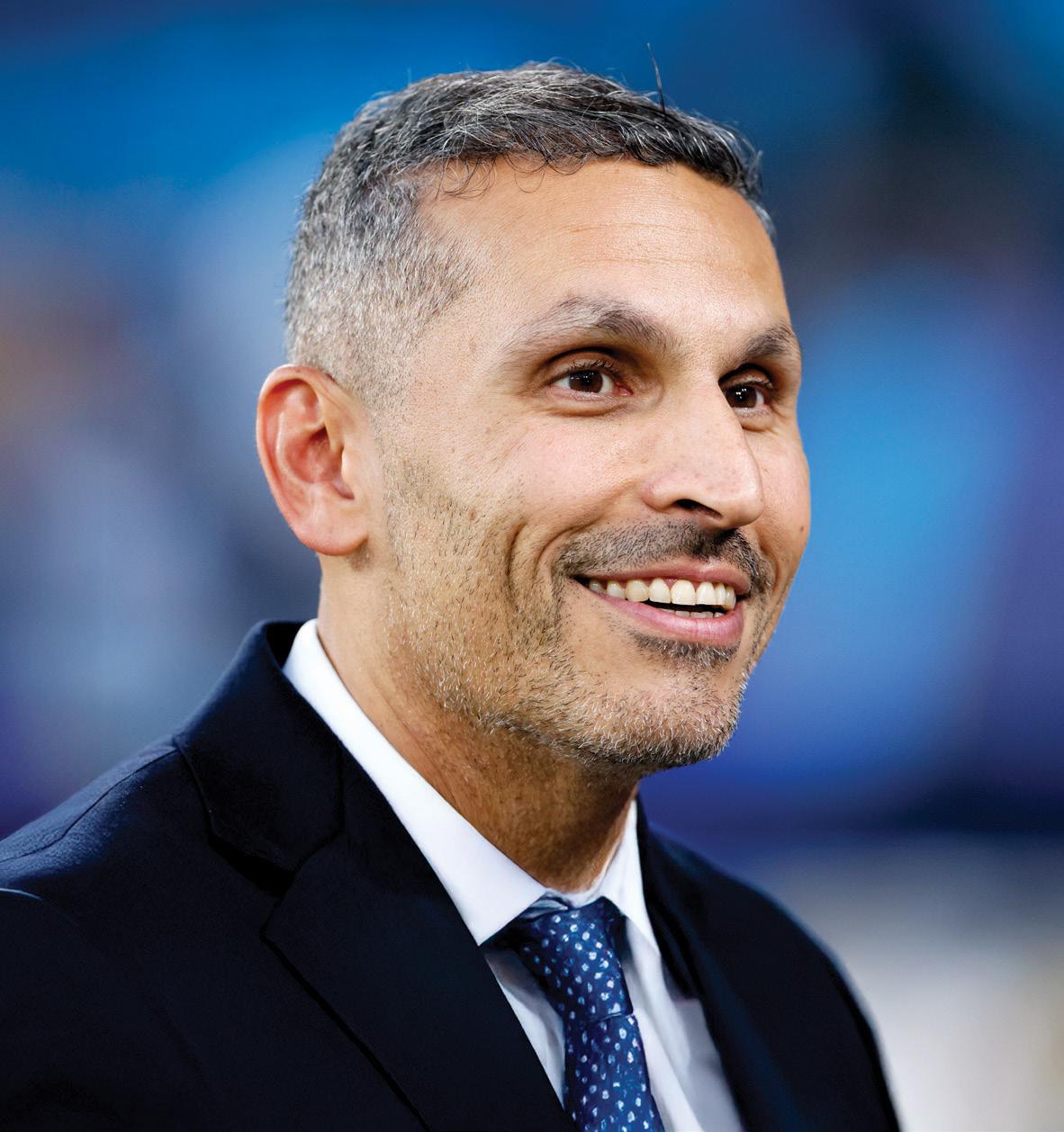
In 2024, under his leadership, Mubadala’s assets under management reached Dhs1.21tn ($330bn). The company deployed Dhs119bn — a 33.7 per cent yearon-year increase —while delivering top-quartile performance over both five- and 10-year periods.
Al Mubarak has prioritised long-term, high-conviction investments in areas such as clean energy, healthcare and life sciences, advanced manufacturing, and semiconductors. Flagship institutions like Masdar, M42, EGA, and GlobalFoundries exemplify this forward-thinking approach to value creation — aligned with national priorities and executed through strategic global partnerships.
Khaldoon was instrumental in establishing New York University Abu Dhabi and serves on the New York University Board of Trustees.
Since 2008, he has been the chairman of Manchester City Football Club, the most successful Premier League club of the past decade. The club is currently ranked as the top football club globally by revenue and is valued as the world’s premier football brand.
Khaldoon is also the chairman of City Football Group, established in 2013 as an investor and operator of international football-related businesses. The group now includes 13 clubs within its global network and is valued at over $6bn.
UNDER KHALDOON AL MUBARAK’s LEADERSHIP, Mubadala has evolved into a $302bn sovereign investment powerhouse, renowned for its innovative and disruptive investment strategy.
CAPTAIN MOHAMED JUMA AL SHAMISI’S LEADERSHIP HAS POSITIONED AD PORTS GROUP AT THE HEART OF ABU DHABI’S ECONOMIC DIVERSIFICATION AND THE UAE’S RISE AS A GLOBAL TRADE HUB
Captain Mohamed Juma Al Shamisi is a prominent figure in the Middle East’s maritime and logistics sectors, widely celebrated for his transformative leadership as the group chief executive officer and managing director of AD Ports Group. Having joined the organisation in 2008 and assuming his current top role. Shamisi has been the driving force behind AD Ports Group’s remarkable evolution from a project-focused entity to a vertically integrated, global trade facilitator. His leadership is characterised by an entrepreneurial spirit and a profound understanding of the industry, gained from almost two decades of maritime experience. Under his stewardship, AD Ports Group has not only expanded significantly but has also played a crucial role in diversifying Abu Dhabi’s economy, contributing substantially to its non-oil GDP. He continuously champions the acceleration of the UAE leadership’s vision for a diversified, knowledge-based, sustainable, and innovation-focused economy.
Shamisi has overseen pivotal developments, most notably the completion and commissioning of the first phase of Khalifa Port and its adjacent Khalifa Industrial Zone Abu Dhabi (KIZAD). His strategic direction has led AD Ports Group to global recognition, evidenced by over 40 prestigious local and international

awards, including multiple accolades for excellence in government performance according to a news report.
Al Shamisi also holds influential board positions, including chairman of Aramex and the Abu Dhabi National Exhibitions Company (ADNEC), as well as chairman of the Arab Sea Port Federation and vice chairman of the UAE Sailing and Rowing Federation. His academic background, including an MBA and an advanced diploma of applied science from the University of Tasmania, Australia, underpins his strategic acumen. His unwavering commitment to innovation and global connectivity firmly cements his status as a truly transformative leader in the region.
MOHAMED JUMA AL SHAMISI’S LEADERSHIP is characterised by an entrepreneurial spirit and a profound understanding of the industry, gained from almost two decades of maritime experience. Under his stewardship, AD Ports Group has not only expanded significantly but has also played a crucial role in diversifying Abu Dhabi’s economy, contributing substantially to its non-oil GDP.
UNDER OLAYAN ALWETAID’S LEADERSHIP, STC HAS STRENGTHENED ITS REGIONAL DOMINANCE AND ACHIEVED GLOBAL BRAND RECOGNITION
Olayan Alwetaid has served as CEO of Saudi Telecom Group (stc) since March 2021. stc is the leading mobile operator in the Middle East region. Prior to his current role, Olayan was the senior vice president of the Consumer Business Unit, where he led a commercial turnaround programme focused on preserving mobile leadership, strengthening the residential fiber business, expanding digital and non-core services, and enhancing customer experience.
Alwetaid pioneered the B2C concept, delivering an end-to-end value proposition for consumers that integrated mobile and fixed connectivity, smartphones and devices, digital media, financial services, and direct carrier billing for a range of leading platforms.
Under Alwetaid’s leadership, stc reported strong financial results for the first quarter of 2025. Revenues reached SAR19.2bn, a 1.60 per cent increase compared to the same quarter last year. Gross profit rose by 5.01 per cent to SAR 9,098m, while operating profit reached
IN Q1 2025, STC’S EBITDA TOTALLED SAR6.12BN, REFLECTING A 5.25 PER CENT INCREASE. NET PROFIT GREW BY 11.05 PER CENT TO SAR3.6BN.

reflecting a 5.25 per cent increase. Net profit grew by 11.05 per cent to SAR3.6bn. The company declared a dividend of SAR 0.55 per share for the first quarter, in line with the dividend distribution policy approved by the general assembly.
Also under the GCEO’s guidance, stc group achieved several strategic milestones early in 2025, reinforcing its leadership in the telecommunications and IT sector. One standout achievement was the successful localisation of eSIM software in collaboration with Thales, making stc the first telecom operator globally to obtain SAS-UP licence certification from the GSMA.
Alwetaid noted that this milestone reflects the group’s commitment to supporting local content in the ICT sector by localising business operations and transferring technical expertise to Saudi Arabia.
As a leading digital enabler, stc was recognised among the top 10 most valuable telecom brands globally, according to the 2024 Brand Finance Report. This recognition aligns with stc’s ambition to lead on a global scale. For the fifth consecutive year, the group retained its title as the most valuable telecom brand in the Middle East, underscoring its sustained commitment to innovation and industry leadership.
The report places stc as the nineth most valuable telecom brand in the world and the strongest brand in the Middle East and Africa. stc also ranked third among the most valuable brands in the Middle East and second in Saudi Arabia. These distinctions highlight the group’s strategic progress and expanding influence in both regional and global markets.
G42’S PENG XIAO IS SHAPING THE FUTURE OF AI THROUGH BOLD INFRASTRUCTURE PROJECTS
Peng Xiao is a global technology and business leader with a track record of building breakthrough products, driving customer success, and delivering strong commercial outcomes.
As group CEO of G42, Peng is responsible for shaping the group’s business and product strategies, while overseeing its portfolio of operating companies across a wide range of industry verticals.
He is a board member of MBZUAI, the world’s first research-based graduate AI university, located in Abu Dhabi. Prior to G42, Peng served as senior executive vice president, CTO, and CIO at MicroStrategy, where he spent over a decade in the enterprise software industry, collaborating with leading global technology companies.
Peng is also a council member of the Abu Dhabi Artificial Intelligence and Advanced Technology Council (AIATC), which is focused on developing and implementing strategies,
UNDER PENG XIAO’S LEADERSHIP, G42 IS SPEARHEADING SEVERAL TRANSFORMATIVE PROJECTS. NOTABLY, THE COMPANY IS BUILDING STARGATE UAE, A 1GW AI SUPERCOMPUTING CLUSTER, IN COLLABORATION WITH OPENAI AND ORACLE.
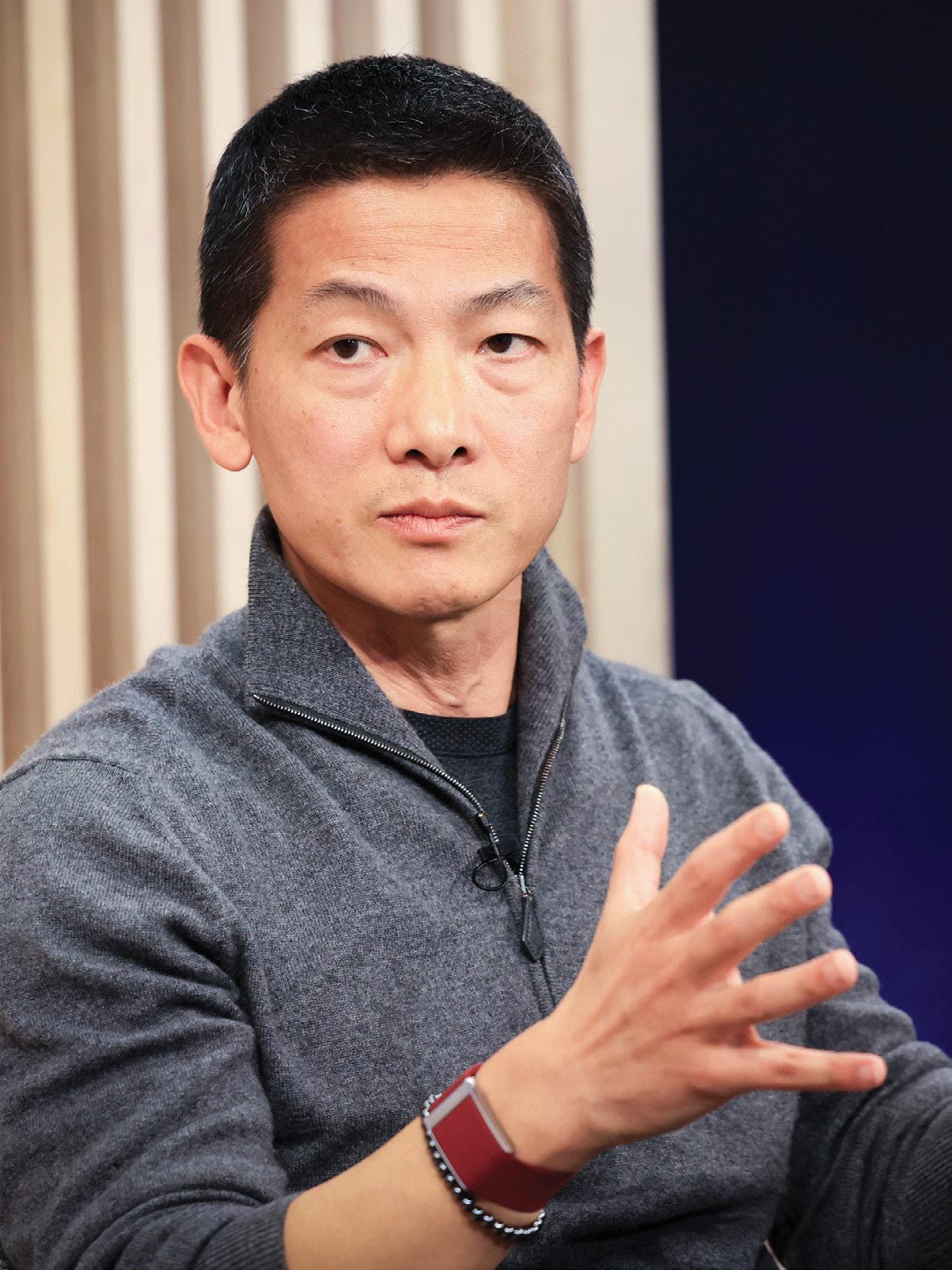
research initiatives, infrastructure development, and investment programmes to strengthen Abu Dhabi’s global AI leadership. In this role, he works closely with both local and international partners to position the emirate as a top-tier AI hub. Under Xiao’s leadership, G42 is spearheading several transformative initiatives. Notably, the company is building Stargate UAE, a 1 gigawatt AI supercomputing cluster, in collaboration with OpenAI and Oracle. This state-ofthe-art facility will also feature contributions from Cisco — providing zero-trust security and AI-ready connectivity — SoftBank Group, and NVIDIA, which will supply its latest Grace Blackwell GB300 systems. The first 200-megawatt cluster is expected to go live in 2026, offering nation-scale compute and ultra-low latency inferencing capabilities.
Stargate UAE lays the groundwork for scalable, trusted AI infrastructure. It is set to accelerate scientific discovery and foster innovation across key sectors such as healthcare, energy, finance, and transportation — supporting economic growth and national development.
In June, G42 further expanded its global footprint with the launch of G42 Europe and UK, a subsidiary headquartered in London. The entity will focus on delivering customised AI solutions to the European and UK private sectors and partnering with governments and industries to support the development of critical AI infrastructure across the region — a strategic move aligned with Xiao’s vision of global AI collaboration.
RAKTDA CEO RAKI PHILLIPS IS REDEFINING TOURISM SUCCESS BREAKING VISITOR RECORDS, ELEVATING SUSTAINABILITY, AND SETTING BOLD GOALS FOR 2030
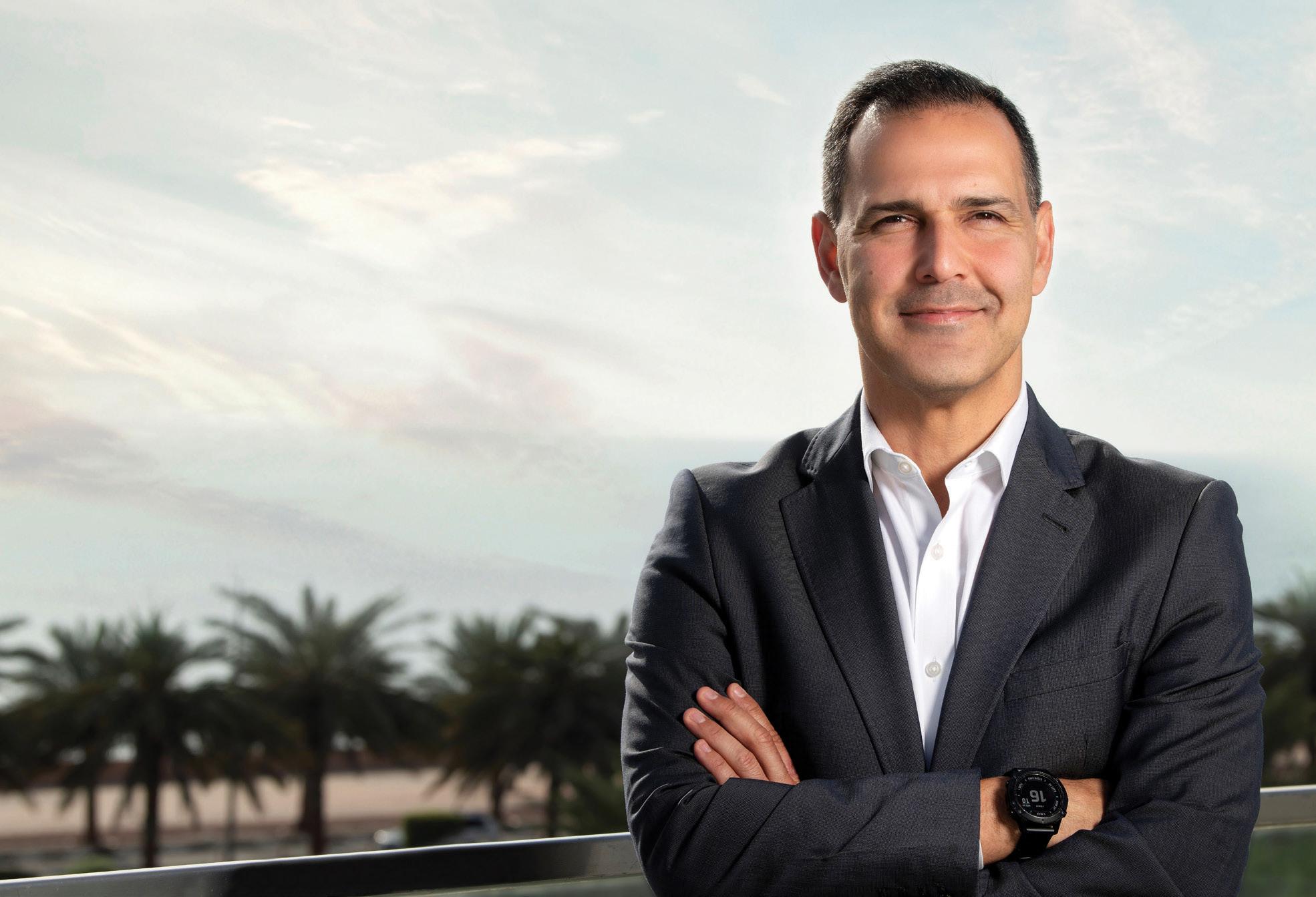
Ras Al Khaimah Tourism Development Authority’s (RAKTDA), Raki Phillips is driving the continued growth of the emirate as a world-class tourism destination. Phillips’ role includes collaborating with key partners, regulating industry standards, expanding tourism infrastructure, and fostering sustainable investment opportunities. Beyond enhancing Ras Al Khaimah’s competitive edge, Phillips is also dedicated to the emirate’s economic and social prosperity — and to improving the quality of life for all its residents.
An award-winning hospitality veteran and serial entrepreneur, Phillips brings over 20 years of global experience with iconic brands such as Ritz-Carlton Hotels, Fairmont Raffles Hotels International (FRHI), and Universal Studios Orlando.
Phillips, an American national with Lebanese and Argentinian heritage, speaks fluent Arabic and has worked in the Middle East since 2005. In his previous role as senior partner and SVP
of Development at International Hospitality Consulting Group (INHOCO), he helped build a hotel project pipeline exceeding $5bn in assets and negotiated high-value deals across more than 25 global markets.
He currently serves on the executive board of RAK Airport and the Pacific Asia Travel Association. Phillips holds a bachelor of science in Business Administration from the University of Central Florida and an MBA in organisational management from the University of Phoenix in Orlando.
Under his leadership, RAKTDA reported its strongest year ever in January, with a record 1.28 million overnight arrivals in 2024 — a milestone reflecting a 12 per cent increase in tourism revenues and a 15 per cent rise in MICE (meetings, incentives, conferences, and exhibitions) visitors.
This success underscores Ras Al Khaimah’s strategic and sustainable tourism vision, which aims to attract over 3.5 million annual visitors by 2030.
Several factors fuelled this remarkable growth in 2024: the opening of new hotels and resorts, a packed calendar of international events, enhanced air connectivity to Ras Al Khaimah International Airport, world-class marketing campaigns, and over 2,200 international activations across 70 cities.
AN AWARD-WINNING hospitality veteran and serial entrepreneur, Raki Phillips brings over 20 years of global experience with iconic brands such as Ritz-Carlton Hotels, Fairmont Raffles Hotels International (FRHI), and Universal Studios Orlando.
SAAD SHERIDA AL KAABI IS STEERING QATARENERGY TO THE FOREFRONT OF THE WORLD’S ENERGY TRANSITION
In November 2018, Saad Sherida Al Kaabi, the Minister of State for Energy Affairs in Qatar, was also appointed deputy chairman of QatarEnergy, in addition to his role as president and CEO of the company.
Previously, he served as the managing director, president, and CEO of QatarEnergy starting in September 2014.
Between 2006 and 2014, Al Kaabi was the director of QatarEnergy’s oil and gas ventures directorate, where he oversaw all of Qatar’s oil and gas field developments as well as the country’s exploration activities.
Named Energy Intelligence’s Energy Executive of the Year for 2022, Al Kaabi has led QatarEnergy into several major strategic partnerships.
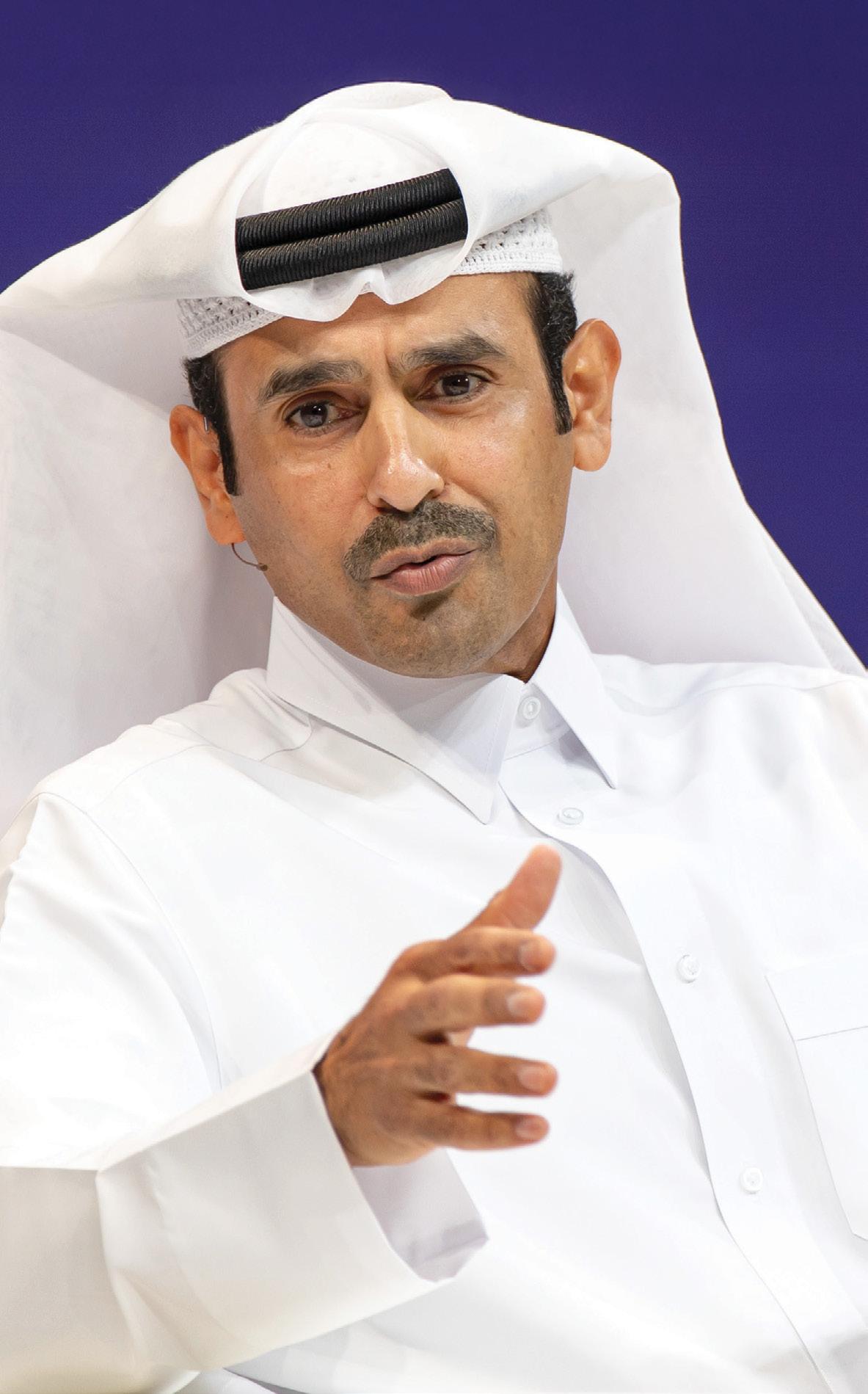
Under his leadership, QatarEnergy entered into a long-term condensate supply agreement with the Singaporebased Shell International Eastern Trading Company (SIETCO), a wholly owned subsidiary of London-listed Shell. The agreement — signed by Al Kaabi and Wael Sawan, CEO of Shell — stipulates the supply of up to 285 million barrels of condensate over its 25-year term, starting from July.
THE AGREEMENT—SIGNED BY SAAD SHERIDA AND WAEL SAWAN, CEO OF SHELL—STIPULATES THE SUPPLY OF UP TO 285 MILLION BARRELS OF CONDENSATE OVER ITS 25-YEAR TERM, STARTING FROM JULY.
Al Kaabi is also widely recognised for his foresight in launching a major expansion of Qatar’s LNG sector, leveraging the country’s low-cost, low-carbon advantages. Today, Qatar is positioned as an indispensable gas supplier for nations seeking supply diversification and energy security.
Under Al Kaabi’s guidance, QatarEnergy is also doubling its production capacity across key segments of the petrochemical industry. It is currently constructing the world’s largest ethane cracker in the US, expected to begin production in the first quarter of 2027. Simultaneously, the company is building the largest ethane cracker in the MENA region in Ras Laffan, also scheduled to start production in early 2027.
DRIVING DUBAI’S CLEAN ENERGY AND DIGITAL TRANSFORMATION, MAKING IT A GLOBAL LEADER IN SUSTAINABLE UTILITY INNOVATION

Saeed Mohammed Al Tayer is widely recognised as an influential figure in the Middle East, particularly for his transformative leadership as the managing director and CEO of DEWA (Dubai Electricity and Water Authority).
With over three decades of experience in vital sectors like energy, water, and infrastructure, Al Tayer has been at the helm of DEWA since 1992, guiding it to global recognition and firmly establishing Dubai as a leading hub for clean energy and sustainable development.
Al Tayer’s vision extends far beyond operational efficiency; he is a fervent advocate for innovation and sustainability. He frequently emphasises that “facing environmental issues is everyone’s responsibility”. This philosophy underpins his leadership, driving DEWA’s commitment to clean energy and digital transformation.
According to DEWA’s publicly released performance data under Al Tayer’s guidance, DEWA has consistently ranked among the world’s best utilities, achieving top positions in numerous key performance indicators,
including the world’s lowest electricity customer minutes lost (CML), averaging just 0.94 minutes per customer. His influence resonates regionally and internationally, stemming from his unwavering commitment to pioneering technologies and strategic foresight.
Al Tayer has spearheaded groundbreaking initiatives that align with ambitious national strategies such as the UAE Net Zero by 2050 Strategy and the Dubai Clean Energy Strategy 2050, aiming for 100 per cent clean energy production capacity by 2050.
A cornerstone of this ambition is the Mohammed bin Rashid Al Maktoum Solar Park, the world’s largest single-site solar park, which he has overseen the development of. He often mentions in media reports that “innovation is more than just a goal for us [DEWA]. It is a key pillar in our journey towards the future and the cornerstone of the development of our services and initiatives.”
This commitment extends to integrating artificial intelligence (AI) across DEWA’s operations, making it the world’s first AI-native utility and pioneering the use of technologies like intelligent gas turbine and plant controllers.
Beyond DEWA, Al Tayer holds significant positions that underscore his impact, including being a member of the Dubai Executive Council and Strategic Affairs Council, and vice chairman of the Dubai supreme council of energy. His leadership style fosters an environment where innovation thrives, providing employees with opportunities to contribute to cutting-edge solutions.
SAEED MOHAMMED AL TAYER has led initiatives that align with ambitious national strategies such as the UAE Net Zero by 2050 Strategy and the Dubai Clean Energy Strategy 2050, aiming for 100 per cent clean energy production capacity by 2050.
SULTAN AHMED BIN SULAYEM HAS GROWN DP WORLD INTO A WORLDLEADING LOGISTICS GIANT
Sultan Ahmed bin Sulayem stands as a towering figure in the Middle East, widely recognised for his unparalleled contributions to global trade and logistics. As the group chairman and CEO of DP World, a position he assumed in 2016, his vision has been instrumental in transforming Dubai into a pivotal nexus for international commerce. His career, spanning over three decades, showcases a remarkable trajectory of leadership across diverse and vital sectors.
Bin Sulayem’s influence extends far beyond the confines of DP World. He is a key architect of Dubai’s economic success, having spearheaded several transformative initiatives. Notably, he was the founding chairman of the Jebel Ali Free Zone (JAFZA) in 1985, overseeing its exponential growth from just a handful of companies to a thriving business park housing thousands. This foresight in creating an enabling environment for businesses cemented his

reputation as a visionary. He also played a crucial role in establishing Nakheel, the property development firm behind iconic Dubai projects such as The Palm islands, and pioneered the Dubai Multi Commodities Centre (DMCC).
SULTAN AHMED BIN SULAYEM WAS THE FOUNDING CHAIRMAN OF JAFZA IN 1985, OVERSEEING ITS EXPONENTIAL GROWTH FROM JUST A HANDFUL OF COMPANIES TO A THRIVING BUSINESS PARK HOUSING THOUSANDS.
Bin Sulayem’s leadership philosophy emphasises the importance of innovation, efficiency, and customer focus. While direct quotes on these specific topics can be general, his actions speak volumes. Under his stewardship, DP World has undergone significant global expansion, notably through the strategic acquisition of the British port operator P&O Group in 2006, which propelled DP World into the ranks of the world’s largest port operators. He constantly drives the company to adapt to evolving global trade dynamics, embracing new technologies and expanding into integrated supply chain solutions.
Beyond his corporate roles, Bin Sulayem holds influential governmental positions, including chairman of the Ports, Customs and Free Zone Corporation and a board member of the Dubai Executive Council. His dedication to the economic development of the UAE and the wider Arab world has earned him numerous accolades, including an honorary doctorate from Middlesex University in Dubai in 2008 and the Lloyd’s List Middle East and Indian Subcontinent Lifetime Achievement Award, according to a WAM report.
Sulayem’s unwavering commitment to fostering growth, innovation, and strategic connectivity has solidified his status as a highly influential leader in the region and on the global stage.
DR SULTAN AL JABER IS AT THE FOREFRONT OF RESHAPING GLOBAL ENERGY AND INDUSTRIAL POLICY FOR A SUSTAINABLE FUTURE
Dr Sultan Al Jaber is the group CEO and MD of the Abu Dhabi National Oil Company (ADNOC), where he has led a sweeping transformation since 2016. Under his direction, ADNOC has strengthened its commercial resilience, opened to global capital markets, completed its first IPO, and attracted strategic investments across its value chain. Central to his leadership is the ADNOC 2030 strategy, which drives a more profitable upstream, more valuable downstream, and sustainable gas operations — all supported by digital innovation, including AI and big data.
Beyond ADNOC, he chairs Masdar, the UAE’s flagship renewable energy company he helped launch in 2006, guiding it from an Abu Dhabi initiative into a global clean energy player with projects in over 40 countries. He heads the board of Emirates Global Aluminium (EGA), one of the world’s largest aluminium producers, supporting industrial exports and value-added manufacturing. He is also the executive chairman of XRG and chairs Emirates Development Bank, which provides financial services for the sustainable economic and social development of the UAE.
As president of COP28 UAE, Dr Al Jaber led the global climate summit held in Dubai in 2023, which concluded with a landmark agreement to transition away from fossil fuels. His dual expertise in energy and climate positioned him uniquely to forge consensus between developed and emerging economies on emissions, climate finance, and adaptation. He has held various advisory roles

GROUP CEO AND MANAGING DIRECTOR ABU DHABI NATIONAL OIL COMPANY (ADNOC)
and board memberships, including the Mohamed bin Zayed University of Artificial Intelligence (MBZUAI), and continues to champion innovation, education, and sustainability.
Dr Al Jaber’s contributions have earned international recognition, including the UN Champion of the Earth Award (2012), CBE from the late Queen Elizabeth II (2013), a lifetime achievement award from India’s Prime Minister Narendra Modi (2019), and Energy Executive of the Year by Energy Intelligence (2021).
Dr Sultan Ahmed Al Jaber is also a member of the UAE Federal Cabinet, Minister of Industry and Advanced Technology (MoIAT), and the UAE’s special envoy for climate. As part of MoIAT, Dr Al Jaber oversees efforts to further expand the industrial development of the UAE, and in particular promote in country value, leveraging technology as a key enabler, as the UAE enters the Fourth Industrial Age. Combining public sector vision and private sector execution, he exemplifies the modern energy leader: focused on commercial growth, climate action, and long-term resilience.
CENTRAL TO DR SULTAN AL JABER’S leadership is the ADNOC 2030 strategy, which drives a more profitable upstream, more valuable downstream, and sustainable gas operations — all supported by digital innovation.

Syed Basar Shueb is widely recognised as a pivotal figure in the dynamic investment landscape of the Middle East, particularly for his transformative leadership as the CEO, managing director, and board member of International Holding Company (IHC). Since assuming this role in July 2019, Shueb has been the driving force behind IHC’s meteoric rise, guiding it from a diversified local company to one of the world’s largest and fastestgrowing investment conglomerates.
Shueb’s vision is rooted in aggressive growth, strategic diversification, and leveraging innovation to create sustainable value. He frequently articulates IHC’s ambition, stating that the company aims to “double assets to $218bn by 2030”. This formidable target underscores his strategic foresight and commitment to global expansion, evaluating numerous acquisitions and planning significant investments in key international markets, including the US and India. His leadership has seen IHC expand its footprint across the Middle East, Europe, and North America, cementing its position as a global player. Before his impactful tenure at IHC, Syed Basar
Shueb cultivated more than two decades of extensive and diversified experience across manufacturing, construction, financial services, and investment sectors. He served as the group CEO of PAL Group of Companies since 2000, where he was instrumental in nurturing emerging businesses to rapid growth. His notable achievements there include establishing one of the UAE’s largest fish and integrated shrimp farms and developing major housing projects, showcasing his acumen across varied industries.
Shueb is known for his decisive and pragmatic leadership, his ability to inspire cohesive business units, and his skill in navigating complex, high-risk scenarios. His strategic approach focuses on enhancing shareholder value through direct ownership, strategic partnerships, and business combinations, aligning closely with the UAE’s broader economic diversification goals. He often highlights that IHC’s investments are not just business-led, they’re centred on impacting the world by creating opportunities.
Beyond his role at IHC, Basar Shueb holds leadership positions on several other high-profile companies, including chairman of Multiply Group and Chimera Investments, and is a board director for Alpha Dhabi Holding. He was also elected to the board of directors of the Abu Dhabi Chamber of Commerce and Industry. His unwavering commitment to robust growth, fostering innovation, and delivering substantial returns for stakeholders has firmly established him as an iconic and highly influential leader shaping the future of investment and economic development in the region.
SYED BASAR SHUEB’S LEADERSHIP has seen IHC expand its footprint across the Middle East, Europe, and North America, cementing its position as a global player.

WITH DECADES OF GLOBAL LEADERSHIP, TONY DOUGLAS IS SHAPING A DIGITALLY DRIVEN AIRLINE CENTRAL TO VISION 2030’S AMBITIONS
Tony Douglas is swiftly emerging as an iconic figure in the Middle East’s aviation sector, largely owing to his pivotal role as the CEO of Riyadh Air. Appointed in late 2022, Douglas is spearheading the establishment of Saudi Arabia’s ambitious new national carrier, set to take its first commercial flight later this year. His leadership is crucial in transforming the kingdom’s aviation landscape and solidifying its position as a global logistics and travel hub, aligning directly with Saudi Vision 2030. Douglas brings with him an impressive pedigree, boasting nearly three decades of international leadership experience across
complex transportation, infrastructure, and defence sectors. Before joining Riyadh Air, he served as the group CEO of Etihad Airways from 2018 to 2022, where he led a significant restructuring and transformation programme. His previous high-profile roles also include CEO of Abu Dhabi Airports Company (overseeing projects like the Midfield Terminal Building) and Abu Dhabi Ports Company, where he delivered the monumental Khalifa Port. In the UK, he held senior positions at BAA (responsible for Heathrow Terminal 5) and as chief operating officer of Laing O’Rourke, demonstrating a remarkable track record of delivering large-scale infrastructure projects.
Under Douglas’s stewardship, Riyadh Air is being built as a digitally native airline with an “obsessive focus on attention to detail and innovation”.
Douglas has articulated a clear vision for the airline, emphasising its role in connecting Saudi Arabia to over 100 destinations globally by 2030. He has stated in a media report:
“The creation of a digitally-led new national airline along with developments to improve our aviation hub will act as a catalyst for many of our Vision 2030 goals.”
His strategic approach not only focuses on elevating the passenger experience to world-class standards but also on ensuring Riyadh Air’s substantial contribution to the kingdom’s non-oil GDP and job creation. Douglas played a key role in the recent deals with Airbus and Rolls-Royce ahead of the airline’s opening later this year.
TONY DOUGLAS’ STRATEGIC APPROACH NOT ONLY FOCUSES ON ELEVATING THE PASSENGER
TO WORLD-CLASS
BUT ALSO ON ENSURING RIYADH AIR’S SUBSTANTIAL CONTRIBUTION TO THE KINGDOM’S NON-OIL GDP AND JOB CREATION.
Pictured: Avli by tashas in DIFC reflects Natasha Sideris’s expanding portfolio and premium positioning in the UAE’s culinary scene
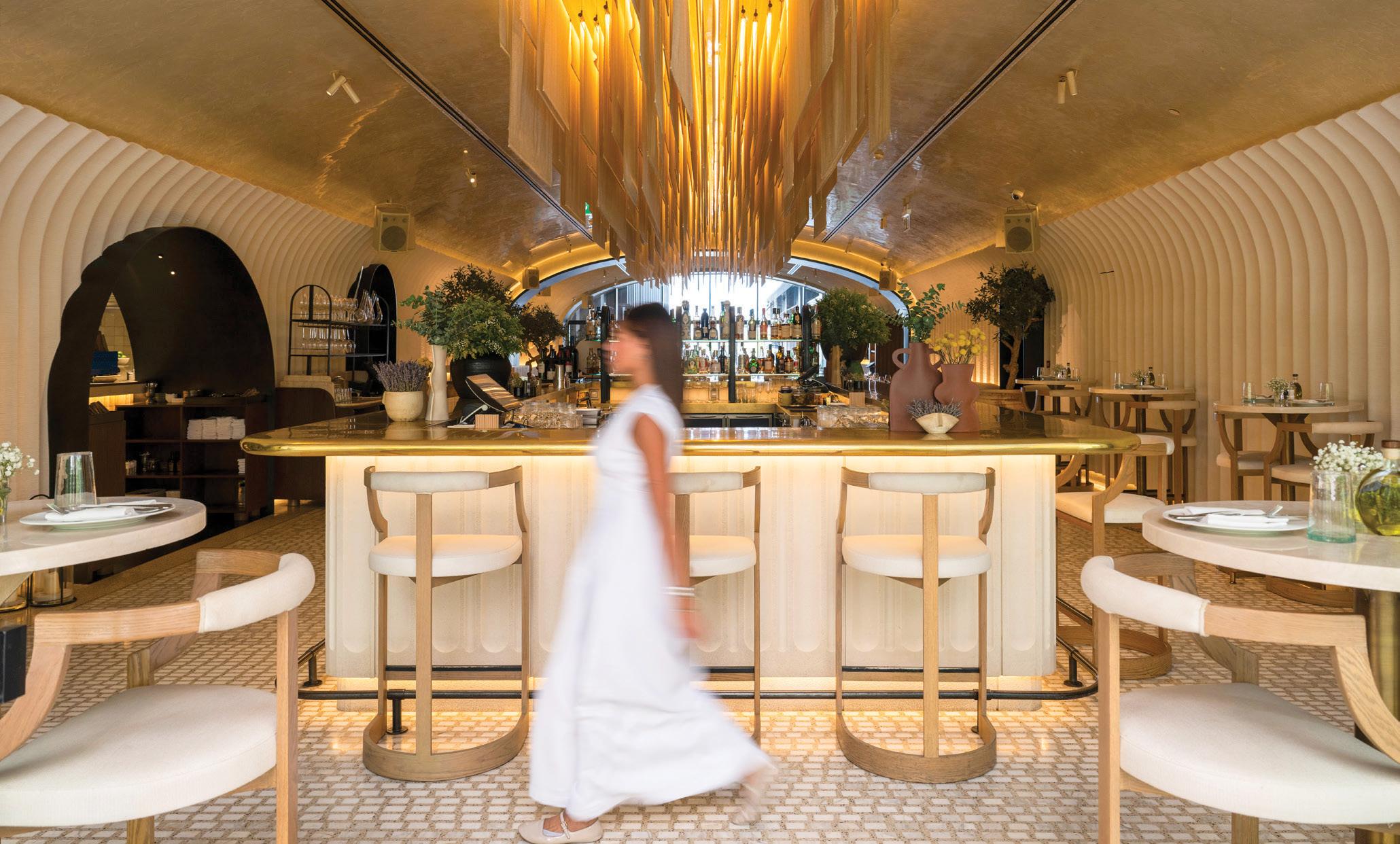
BY GARETH VAN ZYL
When Natasha Sideris opened the first tashas restaurant in Johannesburg’s Atholl Square in 2005, she never imagined it would grow into an international dining empire.
Now based in Dubai, Sideris is leading one of the most ambitious expansions in global hospitality, taking her boutique approach to dining far beyond her native South Africa.
Today, Tashas Group operates 40 restaurants across five countries. Of these, 18 are located in South Africa, 17 in the UAE, 3 in Saudi Arabia, 1 in Bahrain, and 1 in the UK. With 15 additional openings scheduled in the next 18 months, the group is on track for continued expansion across its core markets.
“I always said I would never go into the food business,” Sideris laughs, recalling her childhood. “My father was a restaurateur, and I saw how hard it was. The only day we spent with him was Mondays, when restaurants closed in South Africa. He’d take us to The Doll’s House for steak rolls and milkshakes. But otherwise, he was always working.”
While studying psychology at university, her father convinced her to help out at his busy Fishmonger restaurant in Rivonia, a suburb in northern Johannesburg. “I’d go to lectures during the day, my apron in the boot of the car. Then I’d work from four in the afternoon until one or two in the morning,” she recalls. “I fell in love with the adrenaline and the customer interaction.”
“Working in restaurants combines everything I love: people, interiors, the way spaces make you feel, and of course, food. Growing up in a Greek household, food was always at the centre of everything.”
After years working with her father and running several restaurants, including a successful turnaround of a Nino’s outlet, an opportunity came knocking. A landlord who admired her work offered her a site if she created her own brand. Sideris brainstormed dozens of names before finally agreeing to name it after herself. “The landlord kept saying, ‘Call it tashas.’ I was hesitant, but eventually I said, ‘OK, let’s go for it.’”
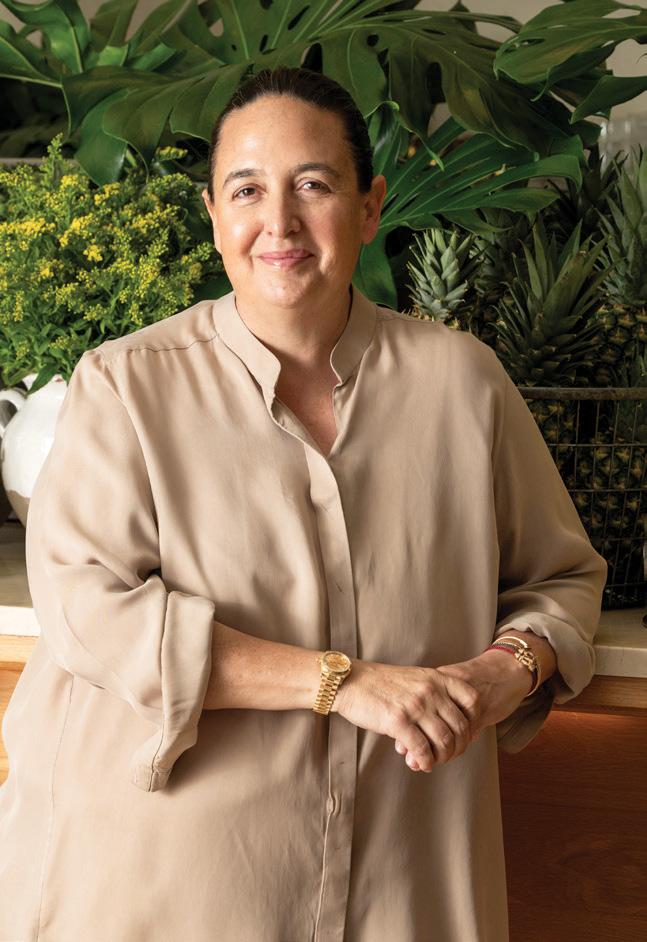
From its very first day, tashas in Johannesburg’s upmarket Atholl Square was packed. That restaurant opening marked the beginning of the tashas journey and, by 2008, just three years later, Sideris sold a majority 51 per cent stake to JSE-listed food group Famous Brands. “It was a good deal at the time,” she explains. “I had two restaurants. They offered corporate governance, admin systems, procurement.”
The partnership proved valuable in the early years, but eventually, Sideris realised she was doing all the heavy lifting. “I was driving everything myself, especially once I moved to Dubai,” she says. Covid19 provided an unexpected opportunity. “It was devastating globally, but for me, it allowed me to renegotiate and buy the
“Every venue we open feels as carefully crafted as the first. We want customers to feel a genuine sense of place and hospitality wherever they visit.”
business back. Now, it’s just myself, my brother Savva Sideris, and a minority partner who own the group.”
In 2014, Sideris made the bold decision to open in Dubai — a move that would fuel international growth. “South Africa was saturated. The UK and US had too many barriers to entry. Dubai made sense: close to South Africa, culturally familiar, with an incredible hospitality scene. Greeks and Arabs share a love for family, food, and generosity.”
That move has proven transformative, given the global expansion her business has experienced.
While many brands lose their identity as they grow, Sideris insists on maintaining what she calls “boutique at scale”. “Every venue we open feels as carefully crafted as the first. We want customers to feel a genuine sense of place and hospitality wherever they visit,” she adds.

That commitment includes maintaining South African staff culture even as the business grows internationally. “When we opened our first store in Galleria Mall here in Dubai, I insisted that 70 per cent of the staff had to be South African. Today, we aim for 25 per cent, but South Africans and Zimbabweans are still a core part of our DNA.”
The next phase of growth will take the group deeper into international markets. Luxury concepts such as Flamingo Room by tashas, Avli by tashas (now open in both Dubai and Bahrain), and Bungalo34 are being positioned for major cities and beach destinations across Europe, the US, and Asia. Meanwhile, the casual dining formats, especially NALA and tashas, are slated for broad expansion via franchising globally.
New concepts launching this year include Arlecchino by tashas, a premium casual Italian offering, and Café Sofi, an ode to Sideris’ late mother, opening in Cape Town.
The group’s expansion strategy balances flagship-owned venues with selective franchising.
Sideris remains intimately involved in interiors, food, drinks and branding. “I’m not involved in admin or training day-today: my teams are excellent at that,” she says. “But I still sign off on every interior design, every dish, every beverage, every piece of marketing. It’s my passion.”
“In the beginning, it was partly about money and partly for the love of it,” she reflects. “Now, it’s about legacy and creating opportunities for our people. We’re building an ESOP (employee share ownership programme) because I want those who have been with us to benefit long-term.”
She sums it up simply: “I want people to say we created something special, that we made a difference in people’s lives.”


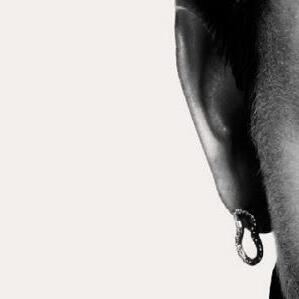






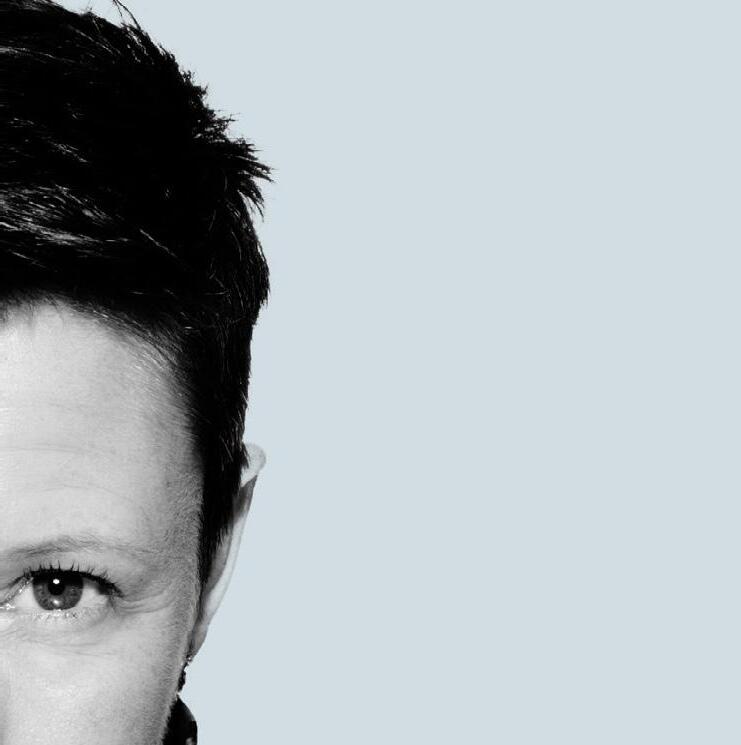































































LAMBORGHINI DEFIES CONVENTION WITH THE REVUELTO — A 1,015HP V12 HYBRID THAT BLENDS BRUTAL PERFORMANCE, THEATRICAL DESIGN, AND SURPRISING REFINEMENT INTO ONE UNFORGETTABLE EXPERIENCE
BY SHIVAUM PUNJABI
In the modern world of downsized engines and electrification, a behemoth with a 6.5-litre naturally aspirated V12 emerges — one that can capture even a two-year-old’s attention and leave a lasting impression for life. Say hello to the Lamborghini Revuelto
Visually, the Revuelto is everything a Lamborghini should be in 2025. It’s unapologetically theatrical — like someone designed a stealth jet with a flair for drama. It carries the Y-shaped DRLs from the Terzo Millennio concept, aggressive aero elements, and an exposed rear that leaves little to the imagination. The Revuelto is where form follows function, with a design

language instantly recognisable as Lamborghini from a mile away.
Its form is layered and highly scientific, ensuring air flows smoothly around the car
while cooling the vital components. The design also provides enough downforce to keep it planted during high-speed driving and tight manoeuvres. In short, it looks like a jet fighter for the road.
Step inside, and the jet-fighter fantasy continues. The new interior ditches the Aventador’s dated ergonomics for three digital screens — a central 8.4-inch touchscreen, a digital driver display, and a passenger display. That last one is clever: if you’re riding shotgun, you’re no longer just a passenger — you’re a co-pilot.
Everything is wrapped in Alcantara, carbon fibre, and leather. The steering wheel, still stalk-free, features mode selectors for
The new dual clutch transmission is fast and always in the correct gear. Gone is the thump and harshness of the previous single clutch transmission

Recharge, Hybrid, and Performance. Want more drama? Hold down the “Corsa” button — everything goes red. Literally.
It’s tech-forward, yes — but still unapologetically Lamborghini. This isn’t a sterile iPad-on-wheels. It’s a cockpit for chaos. Interestingly, the cabin space has expanded. It feels more ergonomic, roomier — and
IN CORSA, IT UNLEASHES FULL RAGE. IT WILL ACCELERATE FROM 0 TO 100 KM/H IN 2.5 SECONDS AND REACH SPEEDS EXCEEDING 350 KM/H
now even includes storage. The Revuelto almost feels like it’s grown up.
If you’ve ever driven a full-fat Lamborghini before, you’re in for a proper surprise. Let’s start with the big headline: the naturally aspirated 6.5-litre V12 remains. No turbos. No dilution. But now it’s paired with three electric motors — two at the front (one for each wheel) and one integrated into the new 8-speed dual-clutch transmission at the rear. The result? A combined output of 1,015hp. Yes, four figures.
Unlike most hybrids tuned for efficiency, this one prioritises performance. The 3.8kWh battery allows a few kilometres of EV driving — perfect for creeping out of your villa at 6am without waking the neighbours.
On the move, the Revuelto is sublime. It cruises comfortably, yet always feels ready to go full beast mode. The new DCT is lightning quick, always in the right gear. Gone is the harshness of the Aventador’s old single-clutch gearbox.
Thanks to torque vectoring and AWD from the front motors, the Revuelto is agile in ways its predecessor never was. It corners flatter and responds sharper. You can feel the weight shift forward as the front motors pull you into the apex, while the V12 screams behind you like a war cry from the past.
In Città (City) mode, it glides silently. In Strada, the V12 hums gently. In Corsa, it unleashes pure rage. It’ll accelerate from 0–100 km/h in 2.5 seconds and top 350 km/h.
The Revuelto is a modern-day beast — powerful, yet remarkably driveable. It delivers the raw thrill of a supercar while letting you revel in all the drama that comes with it.
So, what has Lamborghini done with the Revuelto? It’s kept its soul, while managing to earn some carbon credits.
The Revuelto is cool, capable, and more accessible than any V12 Lambo before it — especially on twisty roads.
Prices start at Dhs2m.


Looking to harness the power of AI, craft compelling brand stories or tap into a powerful network of media agencies?







omg.com/mena
